
















Exploring one man’s legacy, written on the landscape of cherished public parks in New England and beyond.
 By Miles Howard
By Miles Howard
Two food writers combed New England for the best iconic and innovative takes on this classic American-style eatery.
Since 1983, through good times and not-so-good, Red Sox fans have listened to Joe Castiglione call games on their radios. By Bill McKibben
86 /// If a River Remembers


A polluted Androscoggin was once the price to keep Maine mills humming. By Cindy Anderson

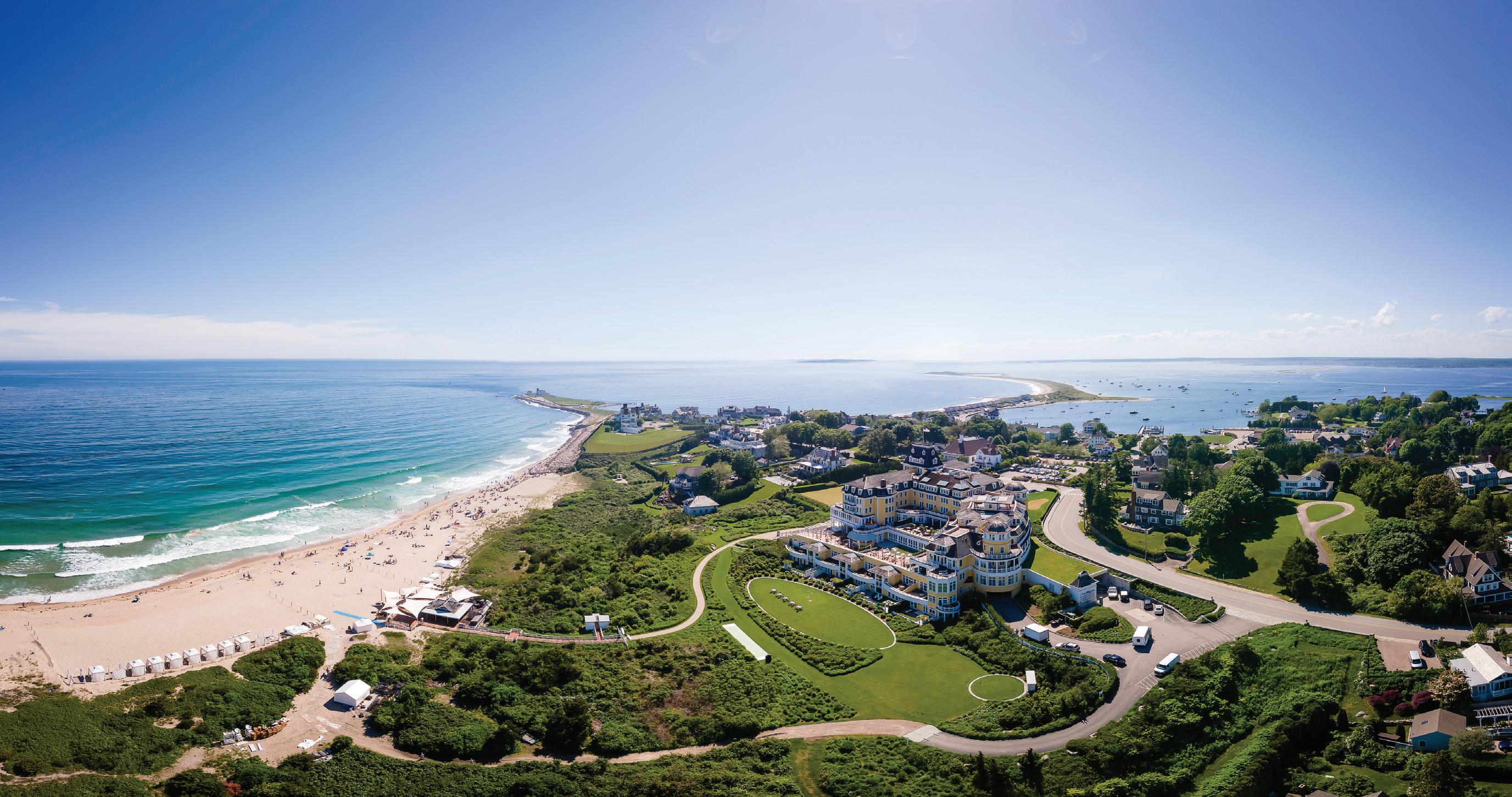
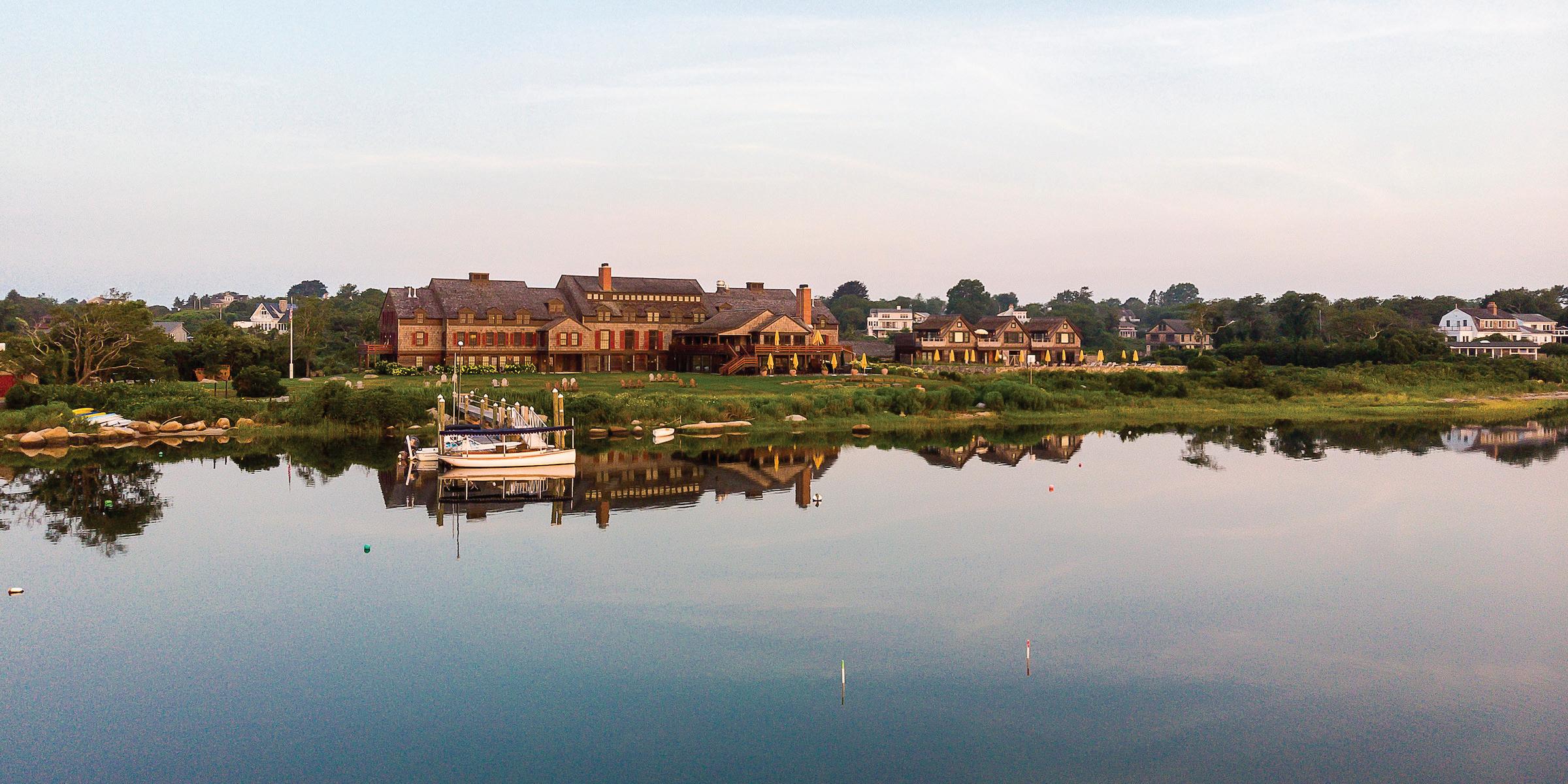
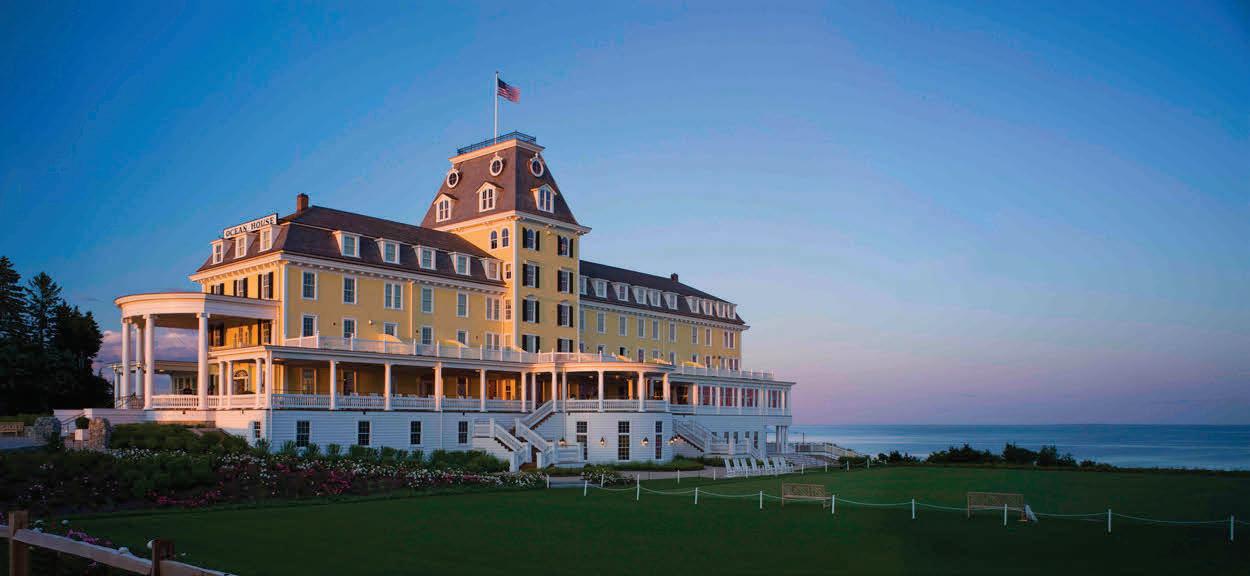
This Old House veteran Bruce Irving takes the measure of one of New England’s architectural calling cards. Plus: How to tell a Federal from a Georgian.
32 /// The Best 5
These historic home inns offer overnights with an aura of lived-in elegance. Compiled by Aimee Tucker
34 /// The Art of Upcycling
Finding value in what others toss away, New England artisans and entrepreneurs are making life a little more beautiful for our planet. By Annie Graves

42 /// House for Sale
Take a peek at the grand Connecticut estate where one of America’s best-loved authors spent his final days. By Joe Bills
///
To celebrate the launch of a brand-new season of Weekends with Yankee, here’s a preview of the food highlights we’ll be serving up on the show. By Amy
Traverso50 /// In Season
Two sweet and savory recipes celebrate a signature spring flavor: maple syrup.
 By Amy Traverso
By Amy Traverso
54 /// Weekend Away
Warm up to shoulder season in Greenwich, Connecticut. By Ian Aldrich
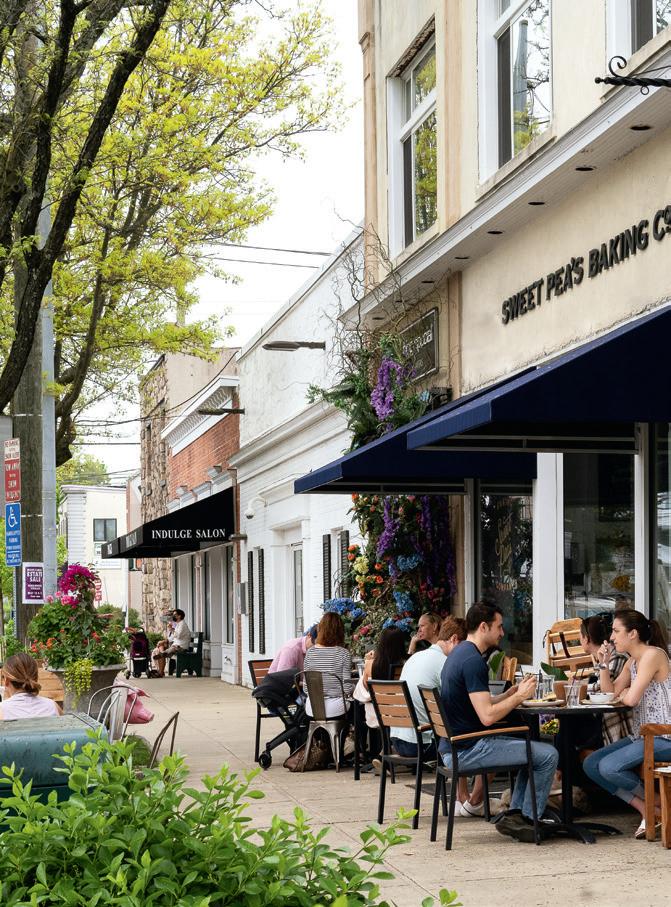
60 /// Be Their Guest
New and updated hotels and inns worth checking into. Compiled by Bill Scheller
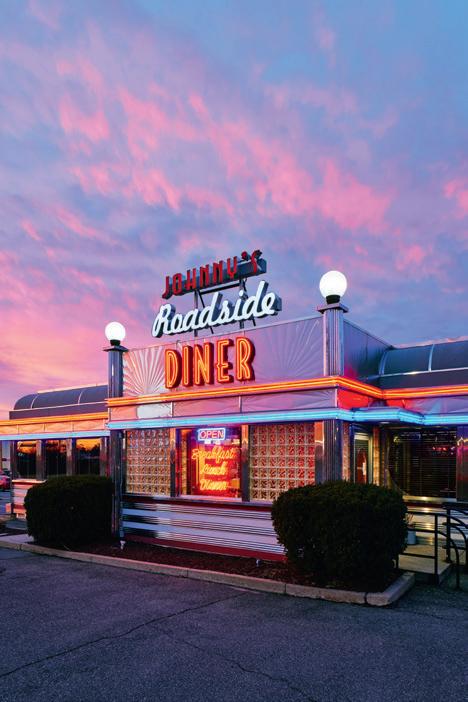
INSIDE YANKEE
Whether old or new, large or small, our homes hold our lives—and hence our stories.
FIRST PERSON
With spring comes a frontrow seat to the woodcock’s annual performance. By Susan Hand Shetterly 18
FIRST LIGHT
Bristol, Rhode Island’s historic Blithewold estate goes sunny-side up for daffodil season. By Mel Allen 120
Ben Hewitt
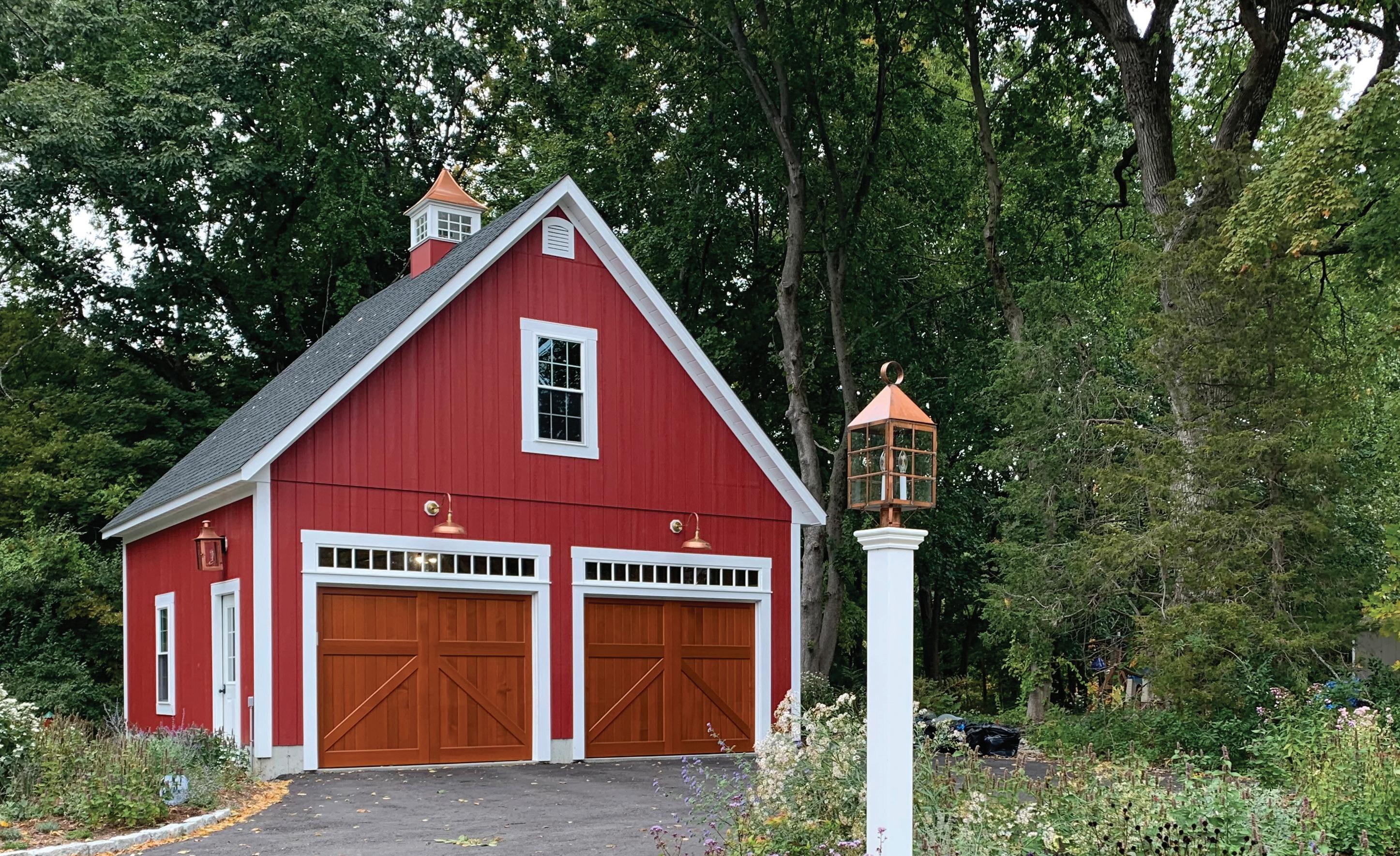



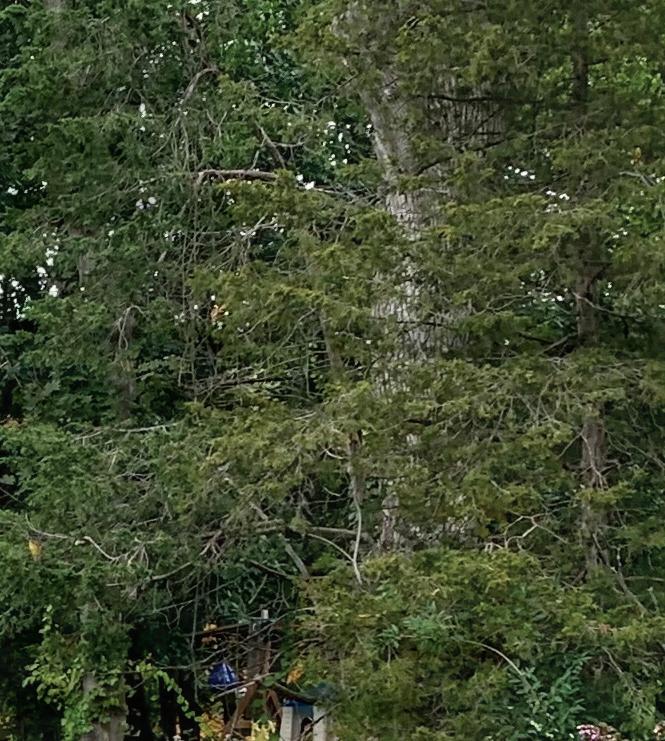
EDITORIAL
Editor Mel Allen
Managing Editor Jenn Johnson
Senior Features Editor Ian Aldrich
Senior Food Editor Amy Traverso
Senior Digital/Home Editor Aimee Tucker
Travel Editor Kim Knox Beckius
Associate Editor Joe Bills
Associate Digital Editor Katherine Keenan
Contributing Editors Sara Anne Donnelly, Annie Graves, Ben Hewitt, Rowan Jacobsen, Nina MacLaughlin, Julia Shipley
ART
Art Director Katharine Van Itallie
Photo Editor Heather Marcus
Contributing Photographers Adam DeTour, Megan Haley, Corey Hendrickson, Michael Piazza, Greta Rybus
PRODUCTION
Director David Ziarnowski
Manager Brian Johnson
Senior Artists Jennifer Freeman, Rachel Kipka
DIGITAL
Vice President Paul Belliveau Jr.
Senior Designer Amy O’Brien
Ecommerce Director Alan Henning
Marketing Specialists Holly Sanderson, Jessica Garcia
Email Marketing Specialist Eric Bailey
YANKEE PUBLISHING INC.

ESTABLISHED 1935 | A N EMPLOYEE-OWNED COMPANY
President Jamie Trowbridge
Vice Presidents Paul Belliveau Jr., Ernesto Burden, Judson D. Hale Jr., Brook Holmberg, Jennie Meister, Sherin Pierce
Editor Emeritus Judson D. Hale Sr.
CORPORATE STAFF
Vice President, Finance & Administration Jennie Meister
Human Resources Manager Beth Parenteau
Accounts Receivable/IT Coordinator Gail Bleakley

Staff Accountant Nancy Pfuntner
Accounting Coordinator Meg Hart-Smith
Executive Assistant Christine Tourgee
Maintenance Supervisor Mike Caron
Facilities Attendant Paul Langille
BOARD OF DIRECTORS
Ralph Carlton, Andrew Clurman, Daniel Hale, Judson D. Hale Jr., Renee Jordan, Joel Toner, Cor Trowbridge, Jamie Trowbridge
FOUNDERS
Robb and Beatrix Sagendorph
Publisher Brook Holmberg
ADVERTISING
Vice President Judson D. Hale Jr.
Media Account Managers Kelly Moores, Dean DeLuca , Steven Hall
Canada Account Manager Cynthia Fleming
Senior Production Coordinator Janet Selle
For advertising rates and information, call 800-736-1100, ext. 204, or email NewEngland.com/adinfo.
MARKETING
ADVERTISING
Director Kate Hathaway Weeks
Senior Manager Valerie Lithgow
Specialist Holly Sloane
PUBLIC RELATIONS
Roslan & Associates Media Relations LLC
NEWSSTAND
Vice President Sherin Pierce
NEWSSTAND CONSULTING
Linda Ruth, PSCS Consulting 603-924-4407
SUBSCRIPTION SERVICES
To subscribe, give a gift, or change your mailing address, or for any other questions, please contact our customer service department:
Yankee Magazine Customer Service
P.O. Box 37900 Boone, IA 50037-0900
Online yankeemag.com/customerservice
Email customerservice@yankeemagazine.com
Toll-free 800-288-4284
Yankee occasionally shares its mailing list with approved advertisers to promote products or services we think our readers will enjoy. If you do not wish to receive these offers, please contact us.
Yankee Publishing Inc., 1121 Main St., P.O. Box 520, Dublin, NH 03444 603-563-8111; editor@yankeepub.com









 Photo: Cody Burnett
Photo: Cody Burnett
<< NEW ENGLAND REUBEN: Upgrade your Saint Patrick’s Day leftovers with tangy homemade dressing, slices of Vermont cheddar, and a quick-pickled sauerkraut made with boiled cabbage. newengland.com/reuben
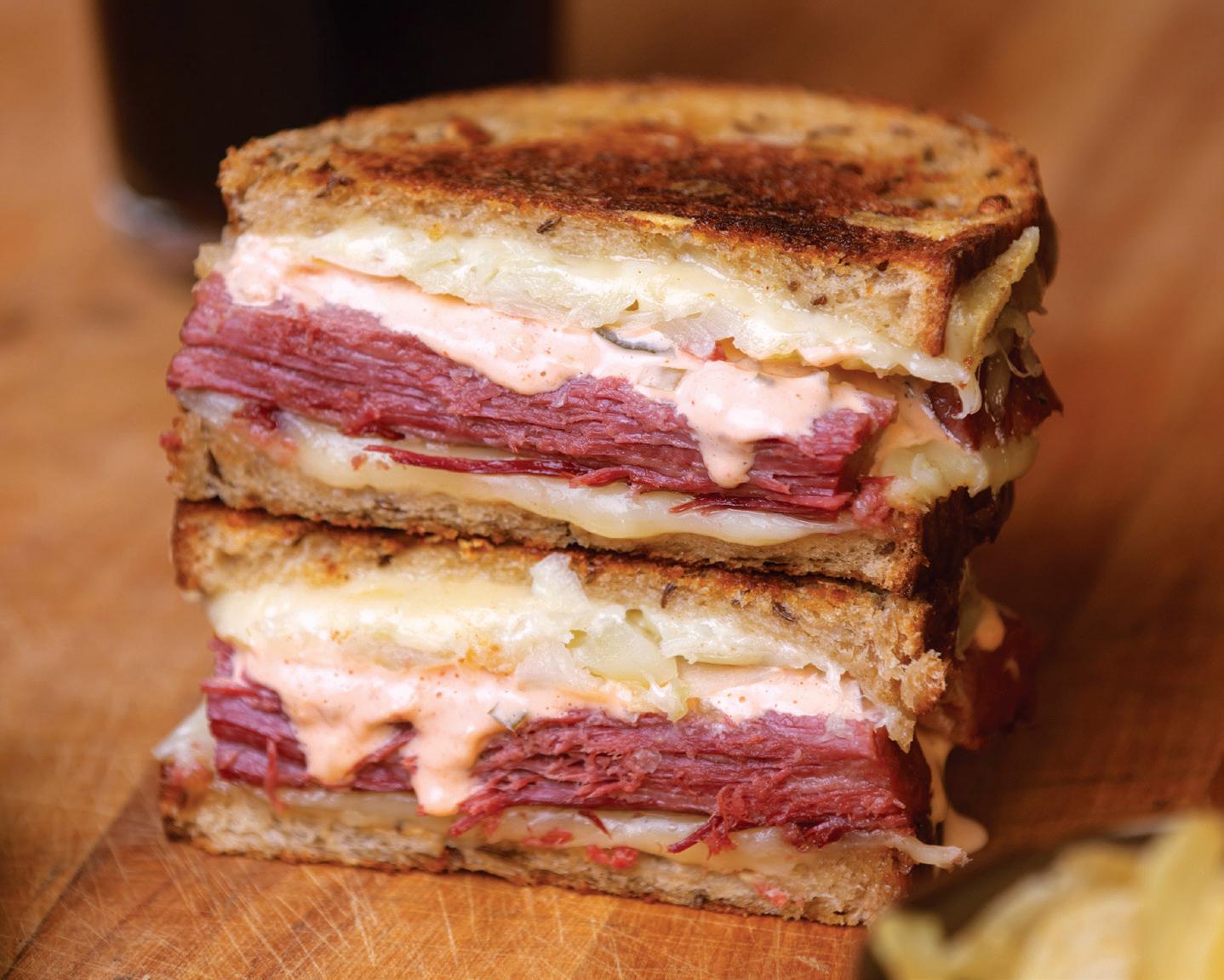
BEST THINGS TO DO IN SPRING IN NEW ENGLAND: When tulips bloom and temperatures rise, New England offers no shortage of ways to celebrate the season. newengland.com/springthings


BACKYARD BEAUTIFUL: Our guide to favorite garden centers across New England, plus tips on how to plant and care for spring garden favorites. newengland.com/gardencare

Follow Lewis and Clark’s epic 19th-century expedition along the Columbia and Snake Rivers aboard the newest riverboats in the region. Enjoy unique shore excursions, scenic landscapes, and talented onboard experts who bring history to life.






Small Ship Cruising Done Perfectly®





few months ago I visited my son who lives across an ocean.
It was winter in New England, but there in Hawaii, palm trees waved in the breeze of 80-degree afternoons, and each day began with a swim in the lagoon near the hotel. We stayed eight days, and after the long nighttime flight back to Boston, then the red-eye drive north, we pulled into our snowdusted driveway, felt the wind-whipped cold as we carried our bags through the doorway, and I said the words that have echoed through centuries of people who have traveled far and returned: “It’s good to be home.”
How to explain this sense of belonging to walls and floors, a roof, a sofa, shelves with books, and beds with blankets as if they were part of us? Everywhere in the world, people understand the feeling of “home.” On our visit, we went to a museum of Hawaiian and Polynesian culture. There were photos and full-size replicas of traditional woven grass houses. One inscription written by the Hawaiian scholar D.K. Waialeale in 1834 carried this timeless emotion: “The house that a man builds for himself, his wife, children, and relatives is his refuge in life, and it has all the things that give him comfort, night and day.”
Our homes, whether we own them or not, whether old or new, large or small, hold our lives and hence our stories. It is where our children played, and where we put them
to bed when play ended; we look into these rooms today and what we see are those who lived here with us. Or still live with us.
That is what Yankee ’s special home issue means to me. These pages take you into the daffodil-filled landscape of the Blithewold estate in Bristol, Rhode Island [“Sunny-Side Up,” p. 18]. The gardens remain the living legacy of a wife and a daughter who created and nurtured them even while mourning a husband and father’s tragic death, reminding us of how stories reach across generations.
In New England’s maritime towns, we marvel at grand homes as imposing as the merchant ships that once created the wealth to build them. “The Truth About Sea Captains’ Houses” [p. 22] sheds light on the mystique of these buildings that today help define our coastal landscape. The Federaland Georgian-style homes favored by the sea captains also launch Yankee ’s series on the classic architecture of New England, from Capes and Colonials to Greek Revivals and Victorians [p. 28].
As you turn these pages and spring draws near, I hope you will feel it is good to have us with you while you settle down in a favorite reading chair in your own home.
Mel Allen editor@yankeepub.com







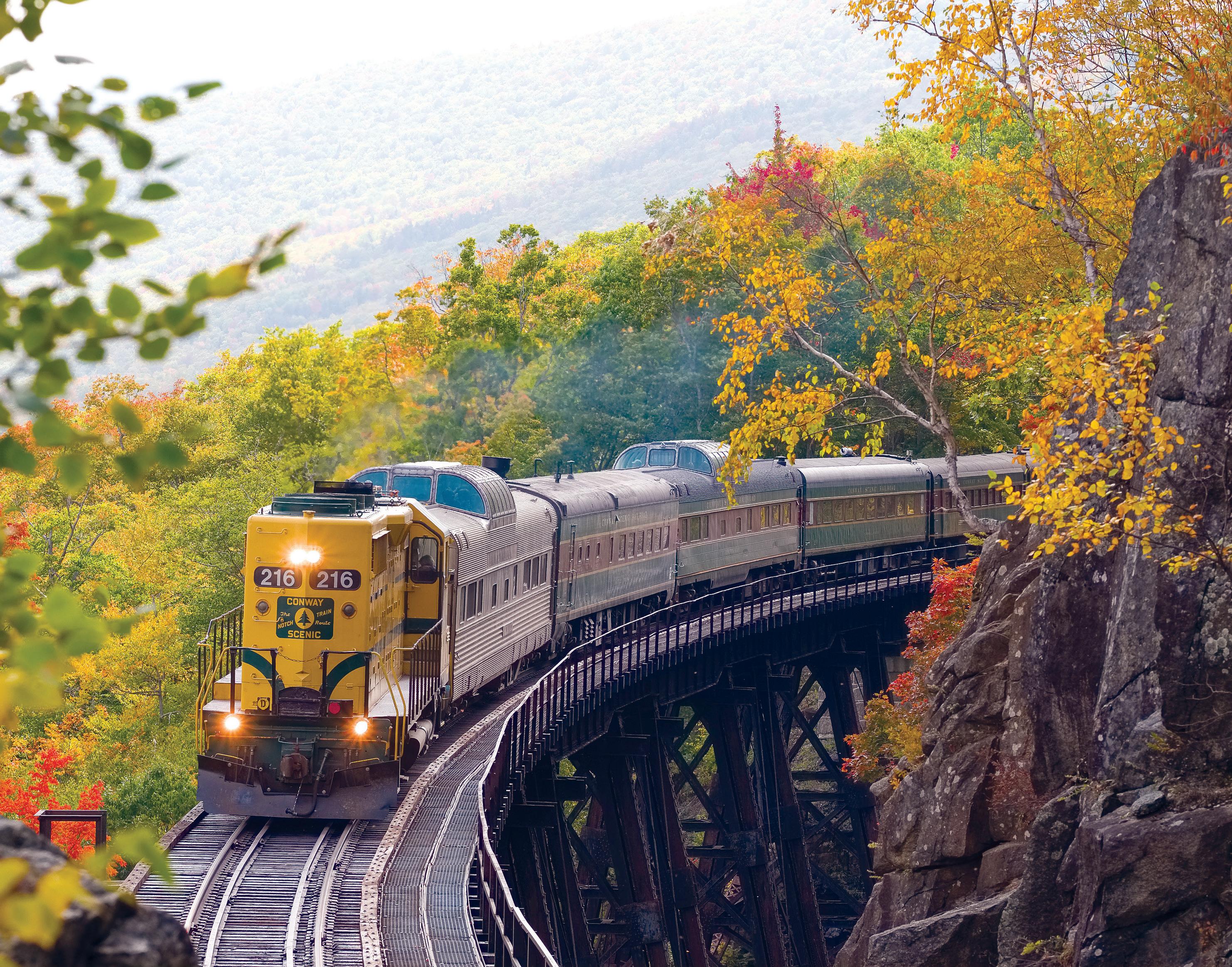




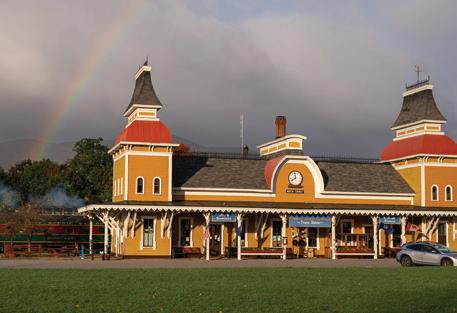



Though known for his passion for the environment, this author and activist reveals another love—baseball—in his profile of Red Sox broadcaster Joe Castiglione [“The Voice of a Nation,” p. 80]. A native of Massachusetts, McKibben now lives in rural Vermont, “where on a summer eve the sound of crickets in the meadow overlaps with the gentle lull of the Red Sox coming through the state’s wonderful independent radio station, WDEV,” he says.


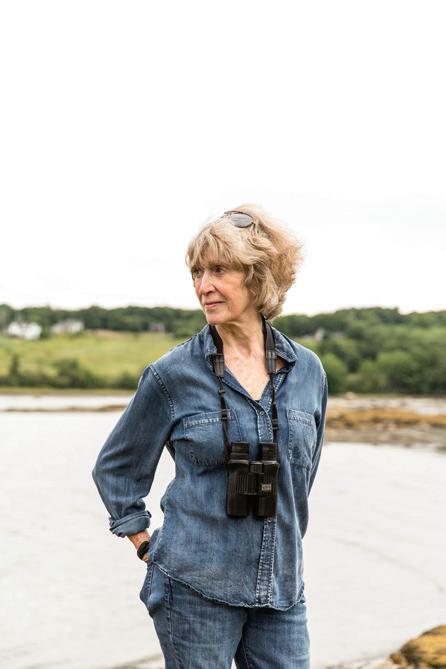

Her essay about woodcocks in springtime [“At Dusk,” p. 14] reflects Shetterly’s abiding interest in how humans treat other species, wild and domestic, and how that can be improved. “I am also reassured by people who take extra time and thought in how they relate to other species, as my friend did in the essay,” she says. “We need to work together to change things.” Her latest book, Notes on the Landscape of Home, was published in 2022.

A Boston-based writer and urban trail designer, Howard says it wasn’t until the pandemic that he discovered his city’s full spectrum of green spaces, many of which were the creation of Frederick Law Olmsted. “I grew fascinated with the impact this one visionary landscape architect had on American cities,” says Howard, who was subsequently inspired to hit the road and explore Olmsted’s works across the Northeast [“Olmsted’s Gifts,” p. 62].
DARCY HAMMER
As a prop stylist and set builder, Hammer has lent her visual flair to commercial campaigns for clients such as Thos. Moser as well as editorial features in Boston Magazine, Northshore Magazine, and, of course, Yankee Tasked with styling photos of New England chefs for “On the Road Again” [p. 46], she says the assignment was “a perfect fit—searching for visual elements to help tell the story of each restaurant was right up my alley!”
ROB LEANNA
Studying architecture at the famed Rhode Island School of Design provided a solid foundation for Leanna’s threedecade-plus career as an illustrator known for distinctive, delicate hand-drawn watercolor perspectives of buildings both old and new. The Rhode Island–based artist brings to life the nuances of Federal and Georgian styles for this issue’s “New England Architecture 101” [p. 28]; you can see more of Leanna’s work at paintedbuildings.com.
CHRISTIAN BLAZA
A Filipino illustrator and educator based in New Jersey, Blaza was already familiar with his subject for “At Dusk” [p. 14], having noticed “the Internet’s fascination with how the woodcock bobs up and down as it walks.” And while the bird was challenging to depict in his illustration style, “I’m very happy with how it turned out!" says Blaza, whose work has been recognized by the Society of Illustrators, American , and Communication Arts, to name a few.
I really enjoyed Bill Donahue’s article about the Big Nansen ski jump [“Catching Air,” January/February]. My gram was born in Berlin, New Hampshire, in 1927, and she always told us about going to watch the ski jumpers every winter. I can picture her standing among the crowd of 25,000 in 1938, watching the Olympic qualifier. My gram passed away in 2021, so it was wonderful to read this story and learn a little bit more about a memory that she always held so dear.
 Sam Dostaler South Windsor, Connecticut
Sam Dostaler South Windsor, Connecticut
The essay “The Boy Who Walked on the Moon” [January/February] was beautifully written, elicited so many emotions, and has stayed with me since I read it yesterday. If only all children could have the experience that Faron had with his teacher, and if only no child could have Faron’s morethan-challenging life. For me, the story was an invitation to pay attention to every interaction with another human being: Make it kind, knowing that those few moments may be the best moments in one’s life, for both the giver and the receiver.
Marilynn Raben Framingham, MassachusettsWe want to hear from you! Write to us at editor@yankeepub.com. Please include your name and hometown, and note that letters may be edited for length and clarity.







By the road where I live, at the bay and in an open field and the woods beyond, April wakes up this land.
Last evening, neighbors and I gathered with camp chairs on a driveway across from the field that borders the saltwater tide and watched the light seep from the sky, and the clouds close in. The dusk grew out from the trees and down from the clouds as we listened to the last sounds of daylight: a robin’s song, a few shouts from the her-
ring gulls heading out to the islands, and a tom turkey’s faraway gobble. Then a span of silence before peepers started up their ringing calls within the alders down the road. But we had come for the woodcocks. We sat, or stood, our ears sorting out the crepuscular noises, waiting for the peculiar sound of the bird, one of spring’s best wake-ups.
The call is a “peent.” If you say it in a low register, while holding your nose, you’re pretty close to how the bird says it. There’s not much about this shore-
bird that is what we think of as shorebird behavior, beginning with that odd voice, and the bird isn’t the flocking sort that gathers with others of its species at the shore in great numbers, and flies away with them in perfect synchrony as if they were one. No. It carries on a solitary life, hidden at the edges of the tree line and within alder patches, hunting worms and beetle larvae and such. It’s the color of old leaves and mud and the shadows thrown by the branches of trees. We know how


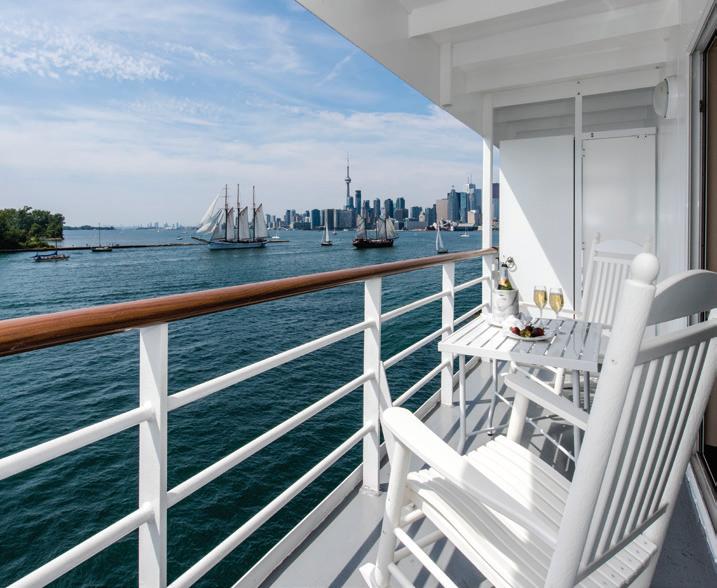











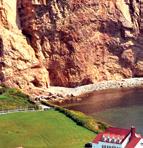



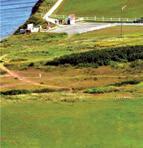
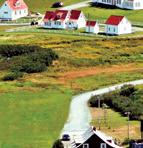
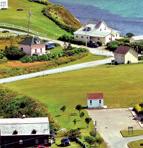
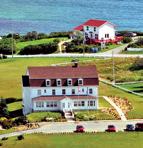
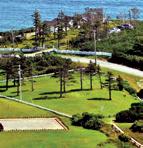























shorebirds run, light-footed, sometimes bobbing up and down charmingly from tail to head. The woodcock, a minister of silly walks, jolts its body forward and back like a rusty porch swing: Forward and back. Take a step. Forward and back. Take another.
Shaped like Nerf footballs, cautious and secretive by nature, woodcocks become dramatic performers during the mating season, when the male throws himself into his complicated flights, and mates with any female who is drawn to the territory he claims. One year, I came alone to this field early in the season and watched two males duke it out, the strangest guttural noises coming from them both as they hurled themselves, horizontally, in each other’s direction but, as far as I could see, never touched.
When the male began his show last night, we, sitting or standing in the driveway, heard the first peent—whispered faintly—at the far end of the field. It grew louder, more authoritative as the bird swung into action.
After a number of preparatory peents, it took off into the diminished light, becoming a round speck spiraling up into the sky, higher and higher, the twitter of the wings sounding like something sweet and electrical, until

the bird reached a pinnacle it alone determined, well beyond where we could see with the clouds closing in and the growing dark. With a rapid chirping, the bird kept its place in the sky as if it were a toehold on a mountaintop, before it slanted sideways at great speed, emitting deeper chirps as it slashed through the air, landing, unbelievably, just where it began, and peented again. For years, ornithologists argued about whether this music came from the wings or the throat. Turns out, it’s both: first the wingtwitter, then the voice-chirp.
Some birders of old insisted that woodcocks carry their young from one place to another between their legs, until it was clear that they don’t. But it’s probably true that when they patter their feet on the ground as they feed,
the soft drumming mimics rain, triggering earthworms to move upward toward the surface. I have occasionally found groups of small, completely round holes in my spring garden beds. They are likely woodcock holes, made by the bird’s strong bills, which are exceptionally long compared to the size of the body. The bill has a sensitive, pliant tip. It opens underground like fingers to close around a worm.
The bird is unusual in so many ways it’s no surprise, I think, to find that its brain has been somewhat rearranged, with the cerebellum at the base of the skull. This adjustment accommodates its large eyes, which are located near the top and toward the rear of its head, as opposed to the sides of the head, like robins’ eyes, or straight ahead, like the eyes of owls and hawks. This placement allows the woodcock to feed with its bill probing the dirt without getting mud in its eyes, as it keeps a lookout for predators.
Woodcocks are losing ground. Their population is dropping due to the shrinking of their required habitat. Every field we keep open gives them a place to peent, and every woodland we protect, with the ragged, camouflaging edges around the field, is good for nesting and raising young woodcocks. How can we not celebrate, and protect, a bird like this?
For those of us who had gathered here last night, it was all about honoring an extraordinary life in springtime, although none of us said a word. We just listened as the bird’s flight began again—and again. At last I picked up my chair and walked back to the car past the head of the bay, where a line of black ducks floated on the water in the channel. They were beautiful to see, ghostly silhouettes, about 30 of them, all facing the same direction, and the water they were in, rising with the tide, was still. In the distance, I heard the woodcock begin once more, and I knew I was lucky to be here, home and safe among the sounds and sights of spring.
With a rapid chirping, the bird kept its place in the sky as if it were a toehold on a mountaintop.




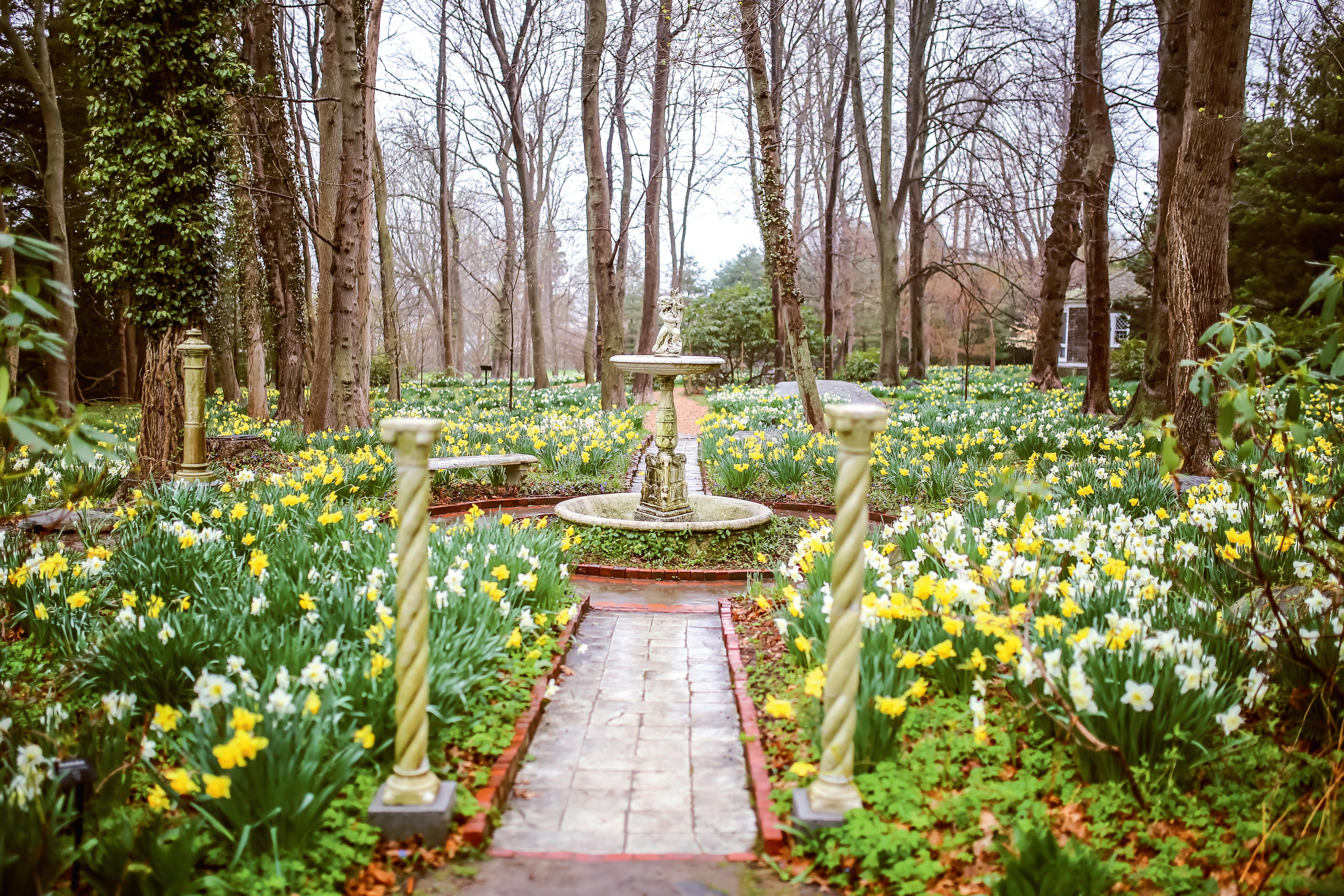
Even when the frost and snow of late winter cling to the ground, the earth beneath our feet begins to warm. Daylight lengthens, and in the first days of April the daffodils awaken. Their bulbs pop open in hues of white and orange and their signature yellow, that startling burst of color that is like the sun reaching out to us from the ground up. We see the daffodils, and we feel lighter. We sense we now walk in springtime. It is why throughout New England there are special celebrations of this flower whose color is as fleeting and fragile as fall foliage. And nowhere does the daffodil beckon us to come see its show more than at Blithewold Mansion, Gardens & Arboretum in Bristol, Rhode Island.
If you’ve been here during Blithewold’s annual Daffodil Days, which stretch throughout April and at times sneak a week or so into May, chances are you’ve come more than once, each time feeling you are seeing the estate and its gardens for the first time. But if you have never been here, this is what you will find:
33 acres with greenery and gardens that flow down from behind an elegant English-style manor to the shore of Narragansett Bay. The Bosquet, a shady grove of trees, throbs with color. Some 50,000 daffodils—in dozens of varieties with names like “Little Gem,” “Ice
While its rich collection of 500-plus species of trees and shrubs delights visitors year-round, in spring Blithewold hosts an exuberant display of more than 50,000 daffodils—notably clustered in the Bosquet, shown here.

Follies,” and “King Alfred”—spread like a blanket across the landscape. There’s a bamboo grove, stone walls, a Japanese rock and water garden, and greenhouses, plus sea breeze and birdsong in the air. You are here now, but also in another century.
When you tour the 45-room mansion, you will learn from docents that this estate’s beauty and feeling of repose was created partly in response to tragedy. Augustus and Bessie Van Wickle bought the property in 1894, naming it Blithewold, Old English for “happy woodland.” Augustus was a sportsman who loved the sea and forest, and only four years after building the mansion he died in a skeet shoot-
ing accident. His wife, Bessie, and later their daughter Marjorie poured their love of place and beauty and horticulture into the grounds. When you walk the pathways of the Great Lawn, edged by stonework created with landscape architect John DeWolf, and see flowers in bloom by the bay, you are seeing what they saw and wanted generations to see after them: their “happy woodland” bursting with color when the breezes of spring beckon new life. blithewold.org
—Mel AllenLaurel Ridge Daffodils: Some 15 acres of daffodils planted here eight decades ago invite you to feel springtime under your feet with each photo you take. Litchfield, CT; see Facebook for bloom updates
Meriden Daffodil Festival: What began in 1978 as a community event to welcome spring has bloomed into a festival in beautiful Hubbard Park with half a million daffodils and festivities. Last weekend in April; Meriden, CT; daffodilfest.com
Nantucket Daffodil Festival: Flower power lights up the island as three million daffodils adorn the landscape, but showstoppers also crop up along cobblestone streets with window displays, events, and gaudy yellow costumes worn by visitors and islanders alike. April 27–30; Nantucket, MA; daffodilfestival.com
Parsons Reserve: Thousands of daffodils planted during World War II bring visitors to this 32-acre nature preserve, whose beauty includes walking trails and benches for restful viewing. Dartmouth, MA; dnrt.org/parsons
New England Botanical Garden at Tower Hill: A spring highlight is the “Field of Daffodils,” where 25,000 daffodils bloom from the third week of April into early May. Boylston, MA; nebg.org
Newport Daffodil Days: Held throughout the month of April, this event celebrates the million-plus bulbs planted by volunteers over the years that flourish throughout downtown, but also along the Cliff Walk and Easton’s Beach. Newport, RI; discovernewport.org
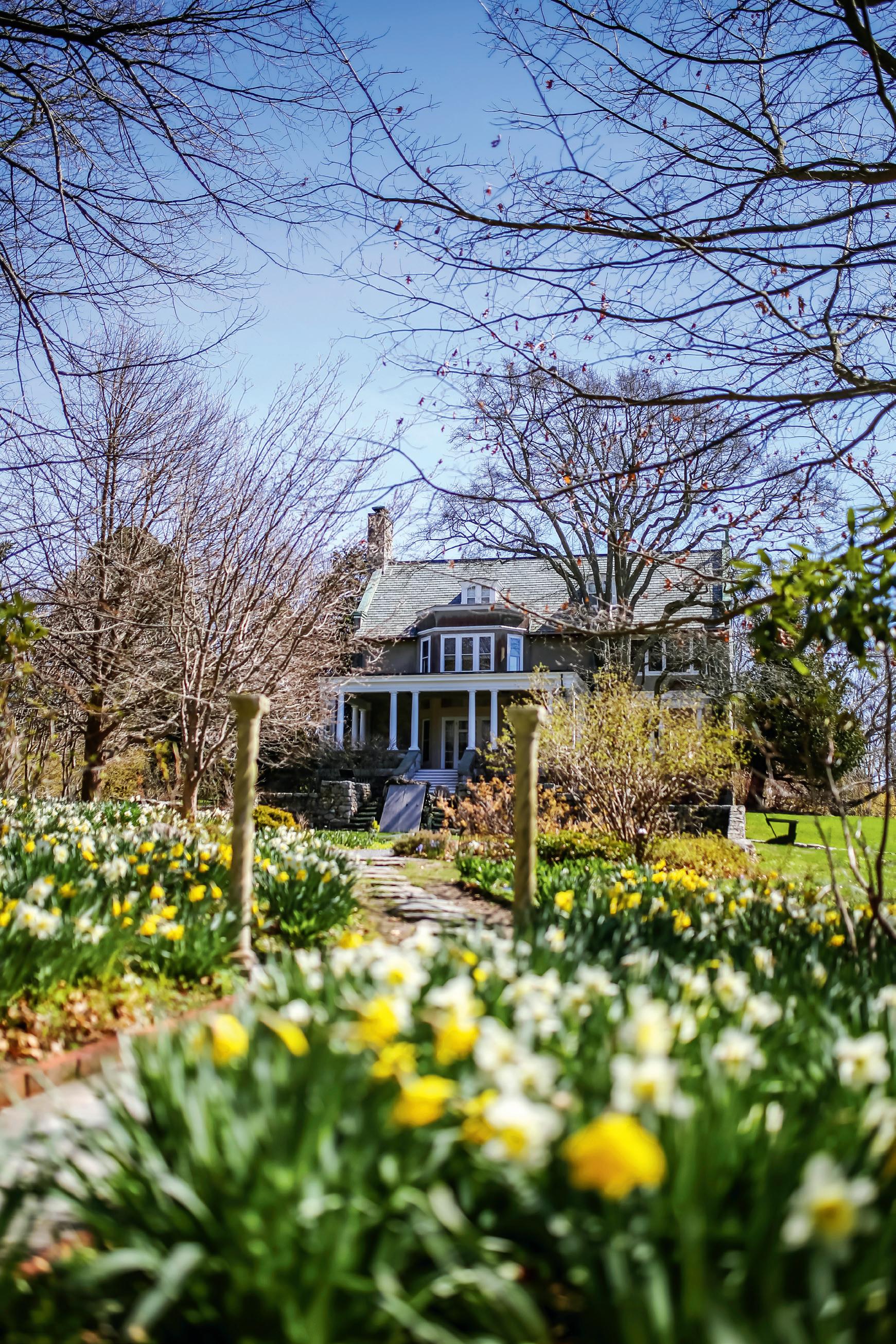
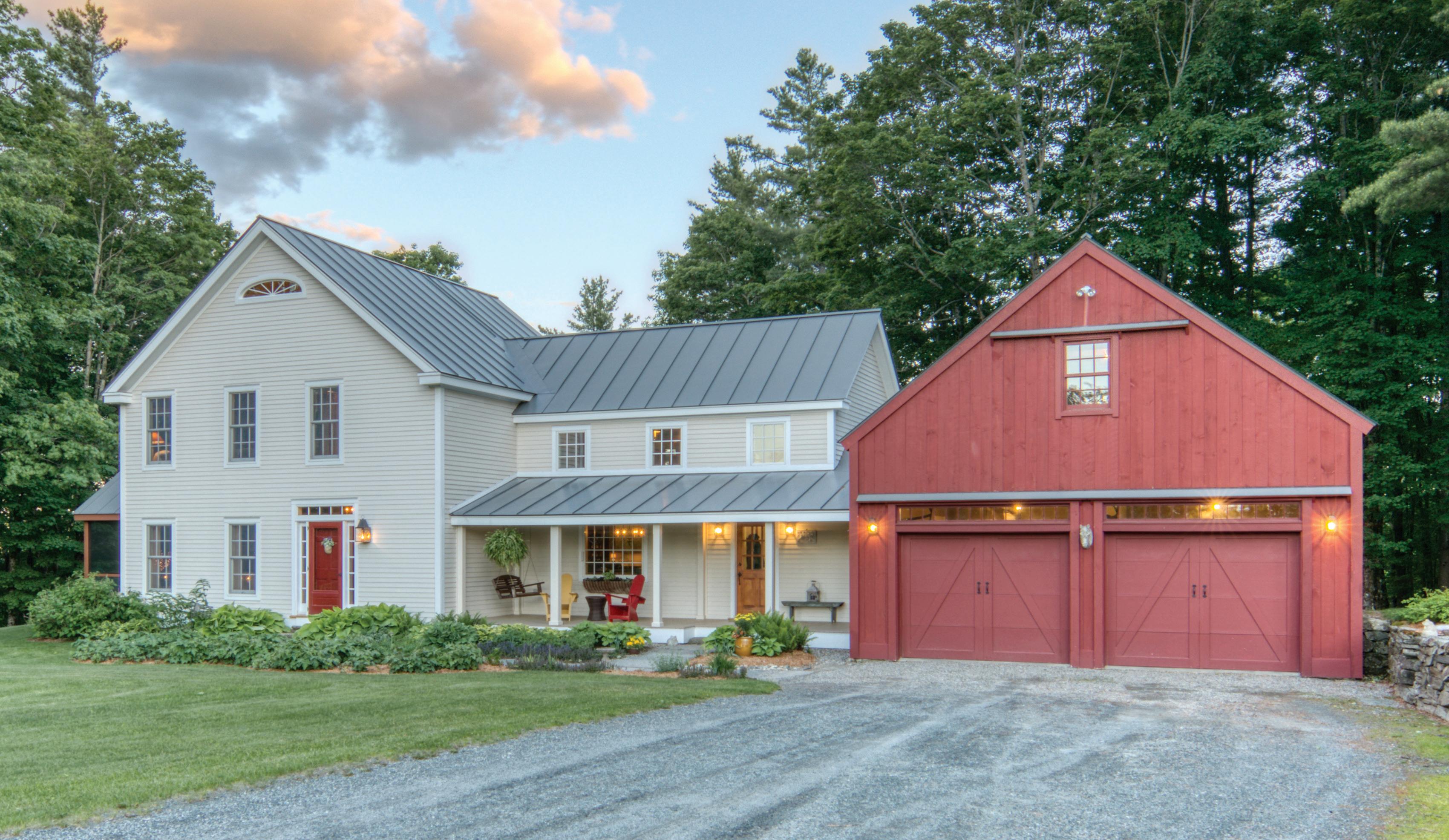



In New England’s coastal towns and cities, gracious homes emblazoned with “Captain” on the front were built as showcases of success. Here, This Old House veteran Bruce Irving takes their measure.





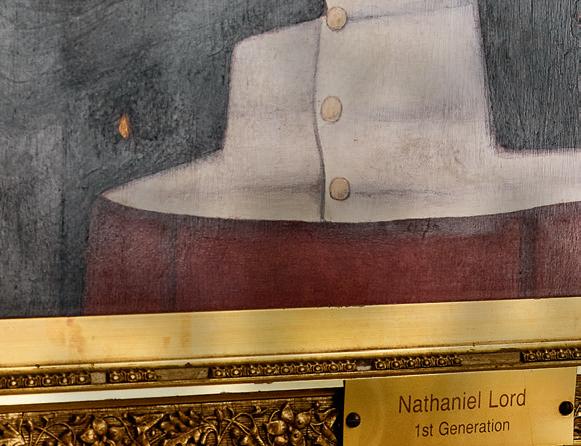
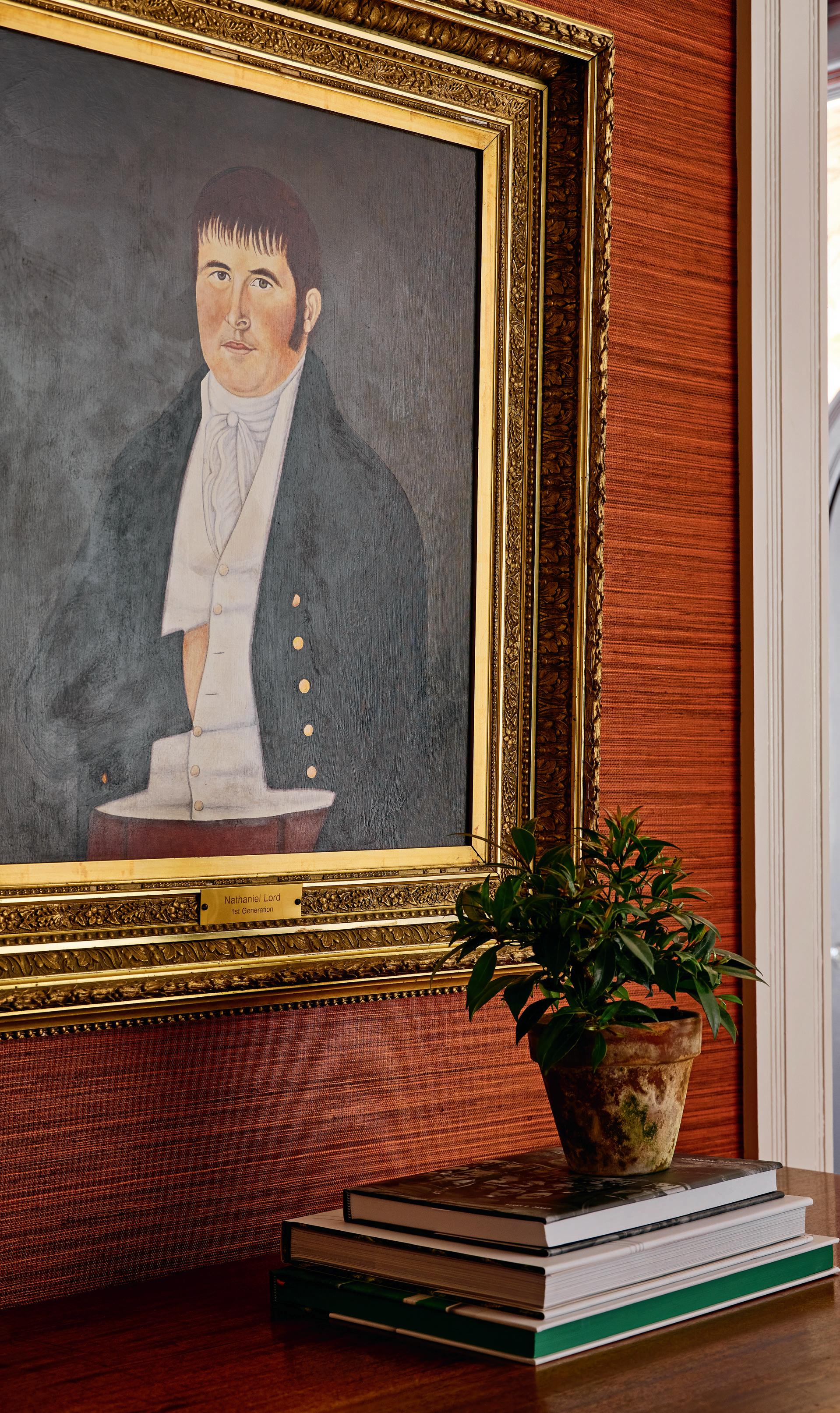
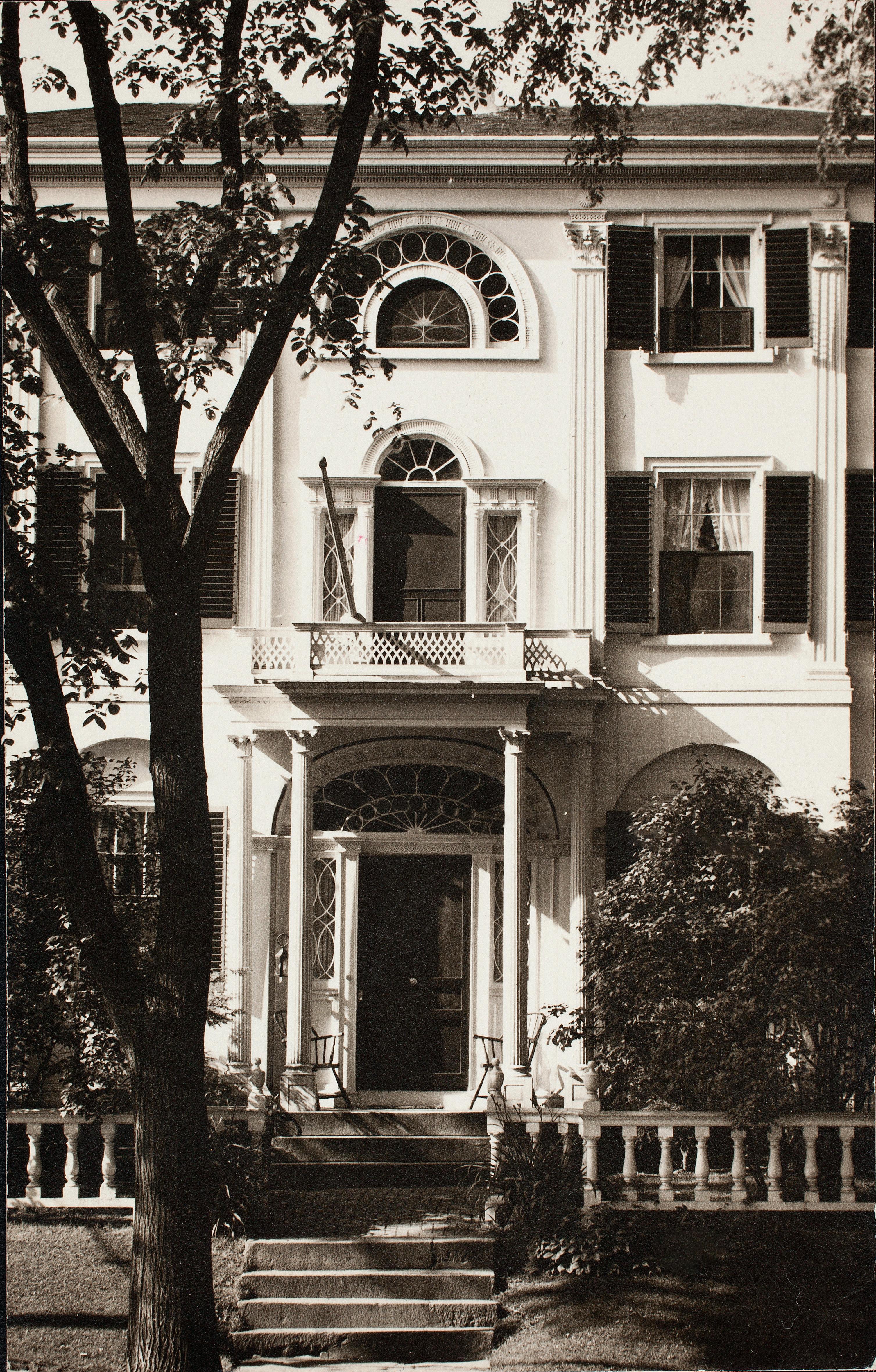
In young America, ports were where the money was. Roads were poor and the sea was the highway, linking the continent to itself and to the world. In New England, every bale of fur, piece of lumber, and barrel of salted cod that shipped out and every bolt of gingham, chest of tea, and keg of molasses that shipped in left a little—or a big—profit behind at the dock. The men (and they were all men) who harnessed this trade became the wealthiest people in town, and they displayed their wealth by building the finest homes, many of which still stand. But while many are billed as “captains’ houses,” the full story is a little more complicated.

From Machias to Salem, Boston to New London and everywhere in between, riches were founded on fish, timber, spices, and silks. In Nantucket, New Bedford, and Mystic, it was whale oil. Ship captains ran things while under sail, while men called supercargoes managed the trade in port, selling merchandise and buying goods for the return trip. These positions were wage-earning ones, though there was often the chance of some share in the voyage’s profits. But it was to the ships’ owners that the bulk of the profits (and the risks) accrued. These were the merchant-princes of the era: They built the vessels, raised the crews, and sent them to sea, amassing fortunes from foreign and domestic trade and employing many in their town.

opposite, top row: At the Nathaniel Lord Mansion, an interior designed to welcome modern travelers meets an exterior preserved to honor the past.
opposite, bottom right: At the Nickels-Sortwell House, you can spy molding carved to look like nautical rope in the arches and curving up the stairway.
opposite, bottom left: On Nantucket, money from the 19th-century whale oil industry went into building an identical trio of homes known as the Three Bricks (third house not shown) on Main Street.
While some if not most had started their careers at sea—often becoming captains—it was on dry land that they became capitalists, community leaders, and mansion dwellers. They preferred the honorific “Mister” over “Captain,” reflecting their new status as gentlemen.
Spotting their homes is fairly easy. Mostly on the finest streets, usually close enough to the water to make for a convenient walk to the dock and countinghouse, sometimes with a cupola or roof walk for seeing one’s (or one’s rival’s) ship come in, they were almost always in the most de rigueur style of their time. New England’s shipping heyday spanned from the mid-1700s to the early 1800s, during which architectural fashion moved from Georgian to Federal to Greek Revival. Certainly there were shipping-based fortunes still at work in the Victorian era, with all its exuberant building forms, but the classic
another reason. A later owner, Captain Joseph White, who’d made his money in maritime trade, including the slave trade, was murdered in the house in 1830, a horrific “crime of the century” Booth documents in his book.) The Gardner-Pingree House is part of the Peabody Essex Museum and is open to the public.
Up in Wiscasset, Maine, 43-year-old shipping magnate William Nickels commissioned a housewright to build a grand Federal-style mansion in 1807. Its flushboard front facade, with its imposing stack of columned entry, Palladian window, and third-floor semicircular window, all topped off by a cornice of double-coursed dentils, made it clear that its owner had arrived. Alas, his departure was far sooner than he would have hoped. In the span of eight years, he lost his fortune in Jefferson’s Embargo of 1807 and the War of 1812, his wife and eldest daughter died in an epidemic, and he himself died in 1815, leaving his remaining children in debt. That the house was operated as a hotel from 1820 until its purchase in 1899 as a summer home by Cambridge, Massachusetts, industrialist Alvin Sortwell illustrates the shift away from shipping to tourism in the state. Now operated by Historic New England, the Nickels-Sortwell house is open to the public, with its original rear ell equipped for vacation rental.
seaport manses were in these three styles.
Robert Booth is a maritime and architectural historian and author of Death of an Empire, about the rise and fall of Salem’s shipping trade, which by 1790 had made it the richest city per capita in the young republic. For his money, there is no finer house than Salem’s Gardner-Pingree House, built in the Federal style in 1804 for merchant John Gardner Jr. by the great wood-carver and architect Samuel McIntire and considered by many to be the acme of his career.
With success at sea and a booming wholesale business on the waterfront, Gardner wanted to showcase his wealth, and McIntire delivered. A gracious three-story townhouse in Flemishbond brick, with an elliptical columned entrance, exquisite carvings in the public rooms, and handsome carpets and imported wallpaper throughout, the house displays McIntire’s role as chief designer and coordinator, bringing together the best craftspeople, artists, retailers, and furniture-makers to create a full aesthetic experience. (Booth is partial to the house for
The ruinous effect of the embargo and war is also revealed by another fine home down the coast in Kennebunkport. When all maritime commerce ceased and his shipyards went idle, shipbuilder Captain Nathaniel Lord put his men to work in 1812 building a new home for him and his family. Its graceful, unsupported elliptical staircase is a testament to their skills. The house passed through seven generations until 1972, when it became an inn. Now part of the Kennebunkport Captains Collection, it and three other captains’ mansions have been unified into one 45-room resort by Lark Hotels.
Financial ruin, illness, even murder—while the gentlemen captains faced plenty of risk ashore, it was far more dangerous for the crews they dispatched to the corners of the globe. Almost routinely, sailors would be lost overboard or to exotic diseases or to the predations of pirates; ships sank in storms with the loss of all hands. “These ship owners,” Booth says, “had to walk the streets of their towns and see the widows and orphans they’d helped create. It mustn’t have been easy.” In seafaring Wiscasset, concern
While some if not most had started their careers at sea—often becoming captains—it was on dry land that they became capitalists, community leaders, and mansion dwellers.
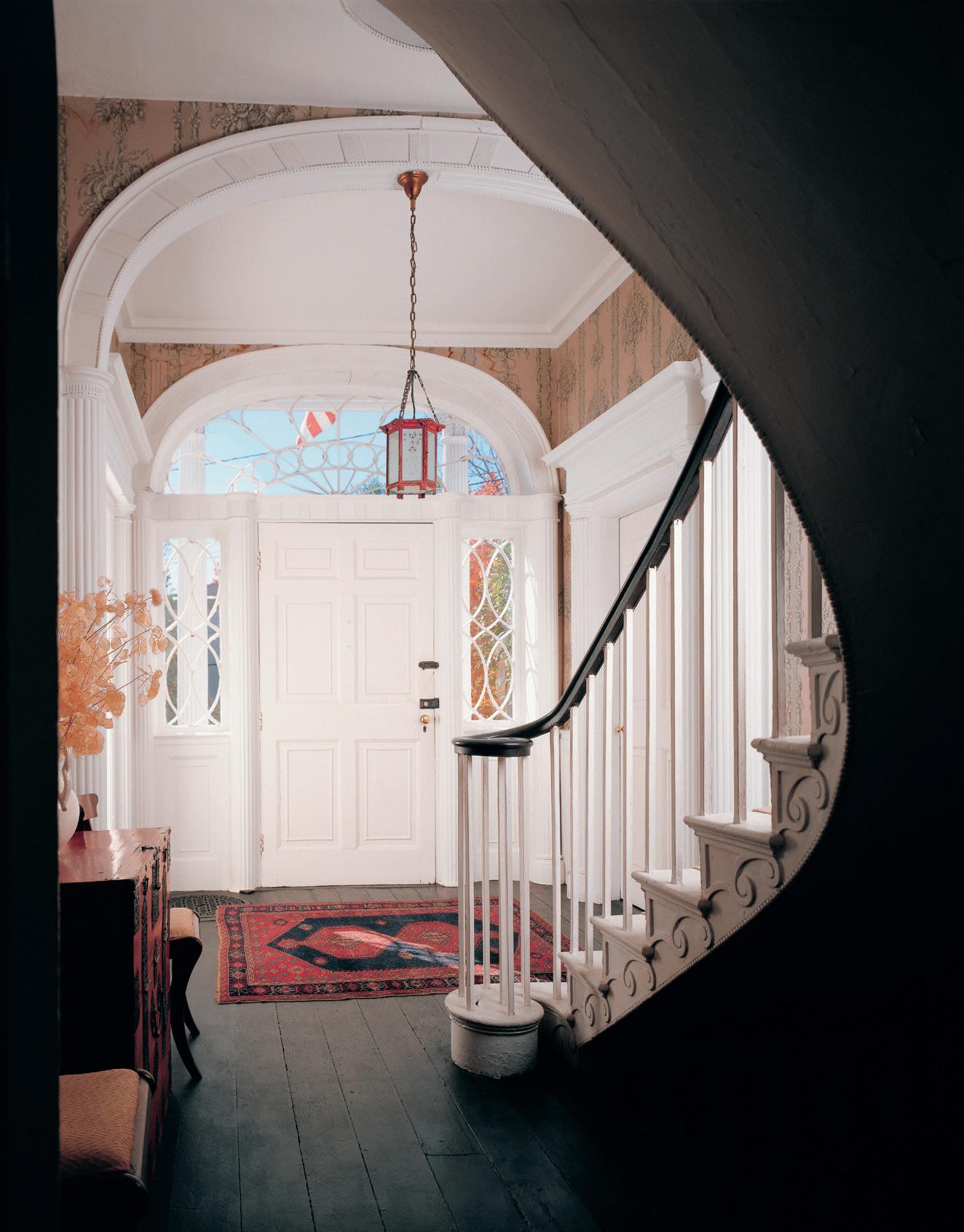
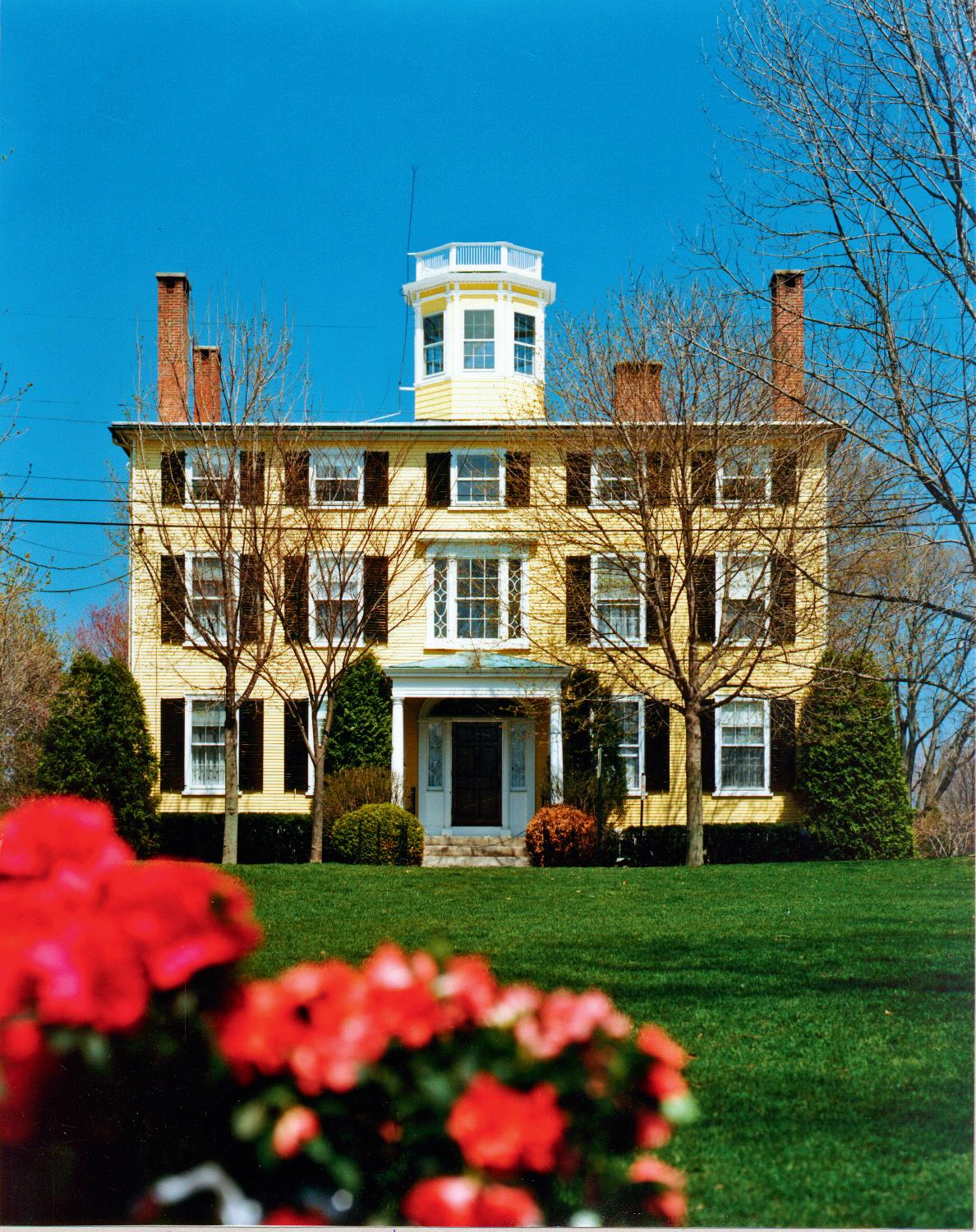

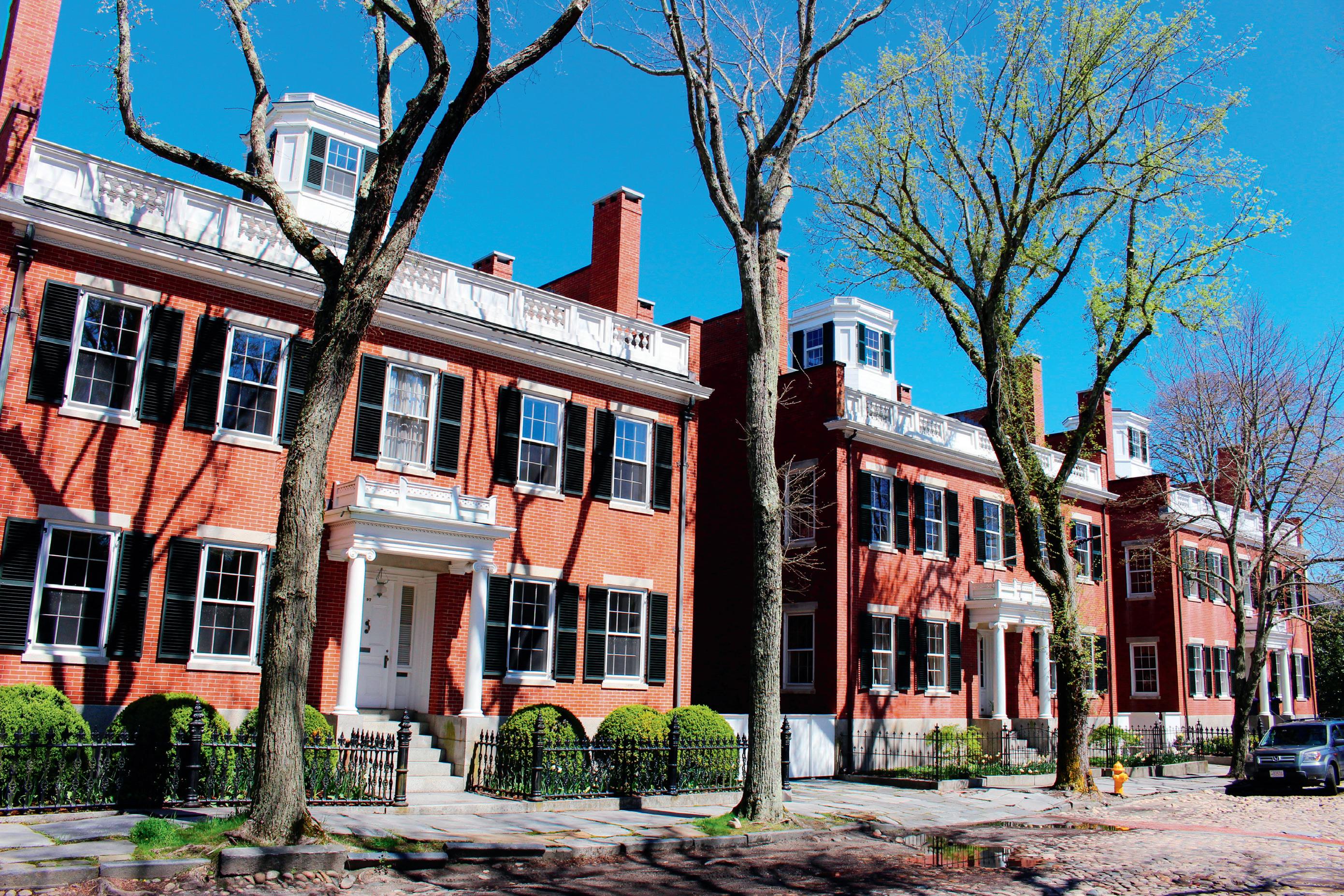
for the town’s widows and their children led to the formation of the country’s very first women’s club, still in operation as the Wiscasset Female Charitable Society.
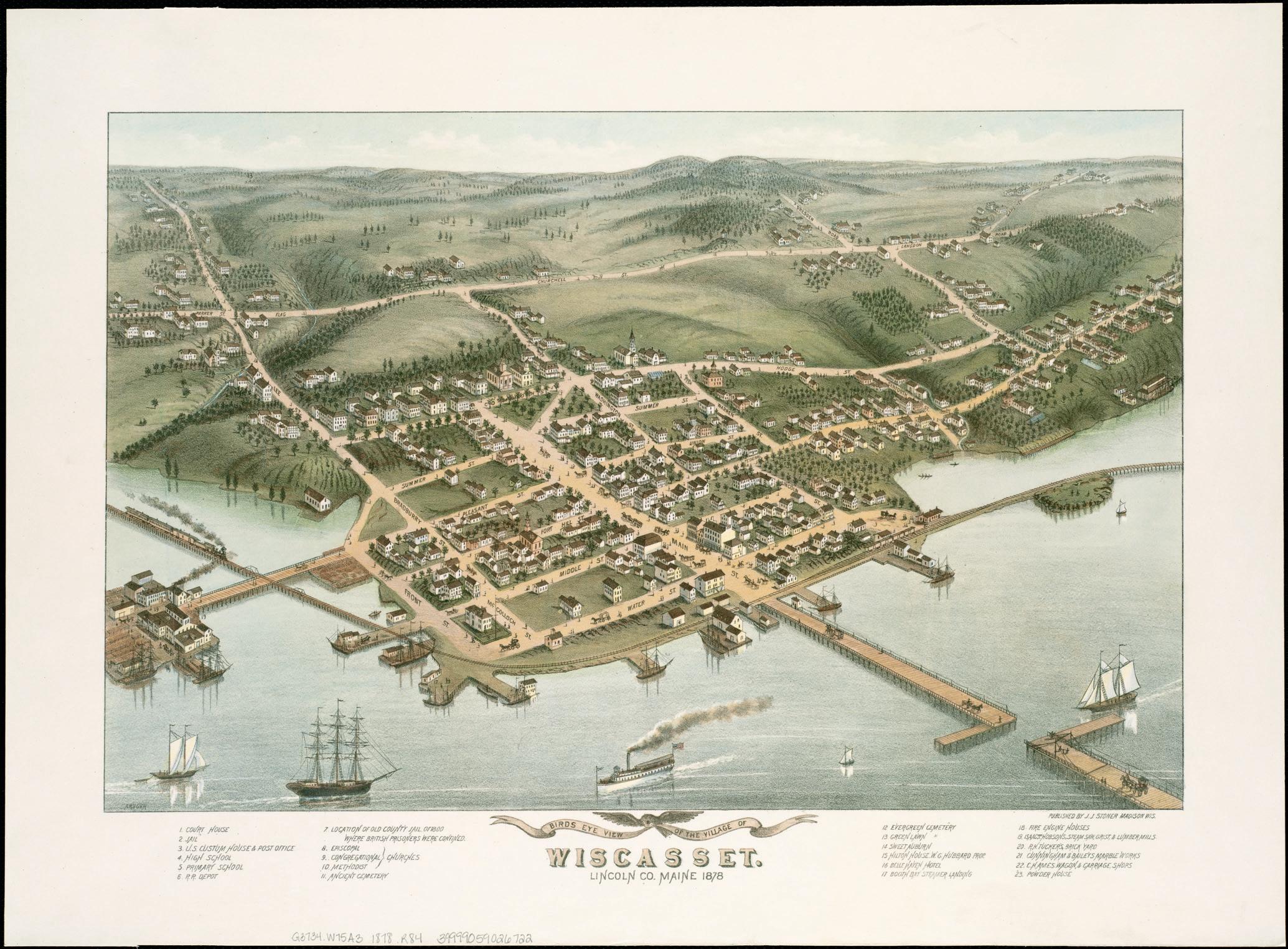
In 1820, the whaler Essex out of Nantucket was stove in by one of its quarry, setting the survivors adrift and into a nightmare of starvation and cannibalism that became the basis of Melville’s Moby-Dick . Mary Bergman, executive director of Nantucket Preservation Trust, posits this tragedy and many others may well have been on whale-oil merchant Joseph Starbuck’s mind when, in 1836, he commissioned three identical brick homes—now known as the Three Bricks—to be built side by side on upper Main Street for his three sons. “He did not want them to have to go to sea,” she says, and they didn’t, each building a successful career in the family business. On an island full of homes built on the riches of the sea, their three residences are at the top of the heap, as restrained examples of the Greek Revival style.
Given all this history, what are we to make of the abundance of so-called captains’ houses
along the streets of coastal New England? Robert Booth has a theory: romance. As their fortunes waned, seaport towns needed to attract tourists and homebuyers. “It was a lot better to conjure up images of swashbuckling captains—think Errol Flynn—than some finely dressed gentleman making his way down to his countinghouse to check on his profits.” Out on Nantucket, the impulse lives on: Mary Bergman says her office gets plenty of requests from homeowners who want to tap into the island’s salty past. “They want to see a whaling captain’s name memorialized on the exterior of their house, yet these men were at sea for four years or more at a time. It was their wives and family who did most of the living in these homes.”
Pardon the pun, but perhaps the best way is to take it all with a grain of salt. Though hundreds of years dead, these were complex people living complex lives, perhaps even more complex than yours or mine. Think of them in all their humanity as you walk down the streets as they once did, past the places they once called home.

 ILLUSTRATIONS BY ROB LEANNA
ILLUSTRATIONS BY ROB LEANNA
Representing the first style to emerge after the era of solid and sturdy 17th-century Colonial architecture, Georgian architecture (named for the reigns of Kings George I, II, and III) is bigger and grander, with homes typically two stories tall and two rooms deep. Their facades are a love letter to symmetry and order, with a center doorway and evenly spaced and perfectly aligned upper and lower windows.
Time Period: 1700–1780, locally to 1830
Characteristics: Regimented and reliable with orderly windows and doors
Famous Example: Ropes Mansion (aka the “Hocus Pocus House”) in Salem, Massachusetts
Where to Find Georgian Homes: The finest examples are in seacoast communities that didn’t experience rapid growth in the 19th century, such as Portsmouth, New Hampshire, and Newport, Rhode Island.
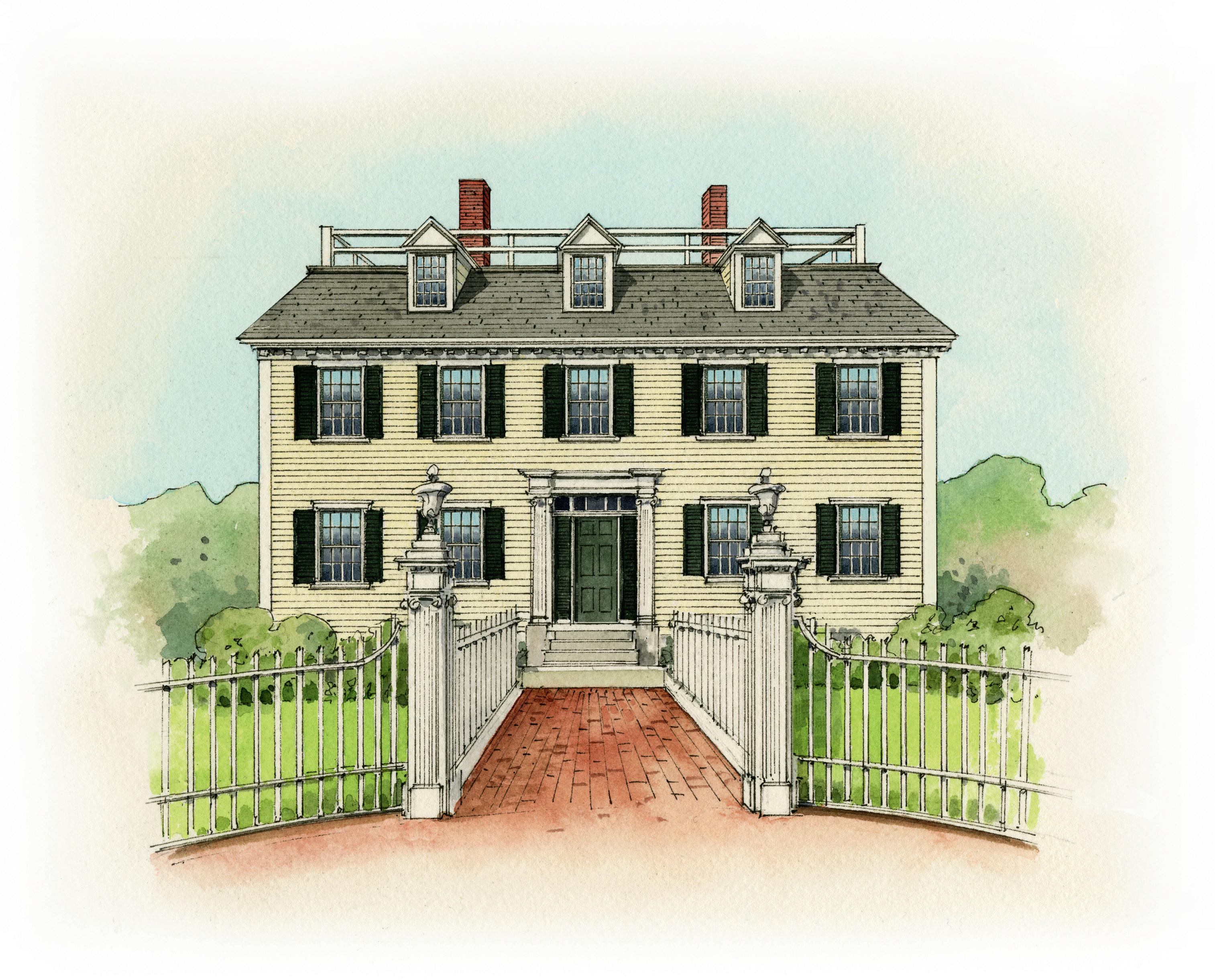 DOORWAY: Flattened columns flank the door and support a straight overhead crown.
WINDOWS: Double-hung sash windows with smaller window panes.
DOORWAY: Flattened columns flank the door and support a straight overhead crown.
WINDOWS: Double-hung sash windows with smaller window panes.
Beginning with this issue, Yankee’s Home section will feature a recurring field guide to our region’s best-loved building styles, along with tips on where to see classic examples. First up, two frequent options for sea captains’ houses: Georgian and Federal.


Sometimes also called “Adam”-style, Federal homes look like Georgians but flaunting the confidence and style of a newly independent nation. Symmetry still reigns supreme; however, glasswork gets an upgrade, with larger panes in windows, semicircular or elliptical fanlights over doorways, and vertical sidelights that make entrances appear larger.
Time Period: 1780-1820, locally to 1840
Characteristics: Sophisticated and stately, with generous use of curves and glass
Famous Example: Otis House (the home of the Historic New England Library and Archives) in Boston, Massachusetts
Where to Find Federal Homes: Prosperous port cities such as Salem and Newburyport, Massachusetts; Providence and Bristol, Rhode Island; and Portland and Wiscasset, Maine.
Coming next issue: How much do you know about everyone’s favorite coastal cottage, the Cape?
Test your knowledge with our upcoming New England Architecture 101.
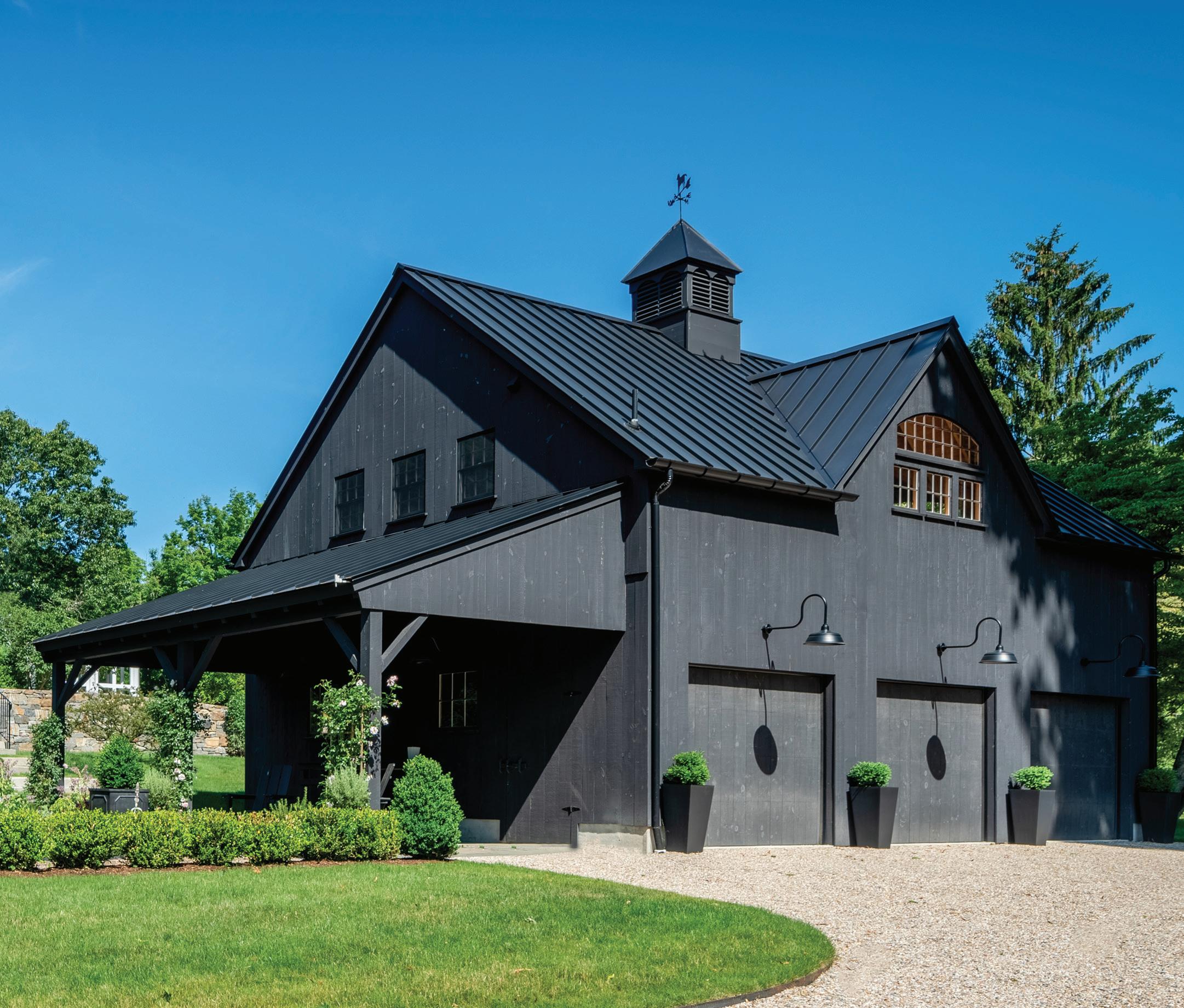






In a region prized for its historic architecture, it’s no surprise that some of New England’s finest grand old homes now operate as dreamy destination inns. Spanning three centuries, these carefully restored and often luxurious retreats offer the perfect pairing of past and present. — Compiled by Aimee Tucker

William Jefferds House
Kennebunkport, ME
One of four properties that make up the Kennebunkport Captains Collection (all former sea captains’ homes),
the sunny, 16-room 1804 William Jefferds House blends original Federal-era woodwork with modern furnishings, just steps from the shops and restaurants of bustling Dock Square. larkhotels.com
Silas W. Robbins House
Wethersfield, CT
With an exterior so charming it was the backdrop to a 2018 Hallmark Channel Christmas movie, this 1873 Second Empire Victorian B&B, complete with arched windows and a hexagon slate-shingled mansard roof, is right
Kennebunkport, Maine’s historic district is a showcase for Federal-style architecture, including the William Jefferds House, shown at left.
at home in one of Connecticut’s most celebrated historic towns. Inside, the five guest rooms pay equal homage to the era with ornate period furnishings. silaswrobbins.com
Inn at Burklyn
East Burke, VT
Built on a hilltop with 360-degree views of Vermont’s Northeast Kingdom, this 1904 estate recently underwent an extensive custom renovation to restore its neoclassical origins without sacrificing luxury. Relax in one of 14 comfortable rooms and suites, enjoy inseason fare Thursday through Saturday at the inn’s on-site restaurant, or simply settle in to admire the views from the wraparound porch. theinnatburklyn.com
While the exterior of this intimate Berkshires B&B features the classical details of its 1792 Georgian origins, inside is a restored modern retreat influenced by the region’s long-standing connection to art, culture, and nature. The inn’s five rooms and adjacent carriage house are surrounded by 20 acres of pastoral woodlands, making it a truly restful escape. theinnatkenmorehall.com
Originally built as a Scottish railroad tycoon’s “summer cottage,” this 1903 shingle-style Bar Harbor mansion is now a AAA Four Diamond three-season destination, boasting 27 unique rooms and suites, elegant dining with ocean views of Frenchman Bay (yes, breakfast is included), and a short drive to Acadia National Park. balancerockinn.com



What would you do with a million pounds of tangled lobster rope? Thousands of old maps and postcards? Or 750 tons of old sails? If you’ve got vision, you might transform them into tough, stylish doormats, vibrant mixedmedia paintings, or highend tote bags. You might even turn mountains of discarded oyster shells and plastic bottles into cozy fisherman’s sweaters. Or take a literal ton of discarded textiles and make colorful quilts and clothing. These New England artisans and entrepreneurs divine beauty in what others toss away; they see what is often overlooked. In the process, they make life a little more beautiful for our planet.

Loving Anvil | Biddeford, ME lovinganvil.com

WHAT SHE MAKES: Big, bold jewelry—bangles, rings, and necklaces—from reclaimed metals and reworked heirloom stones. Her own adornment: “a raw turquoise ring that has the complete passage of Kerouac’s ‘the mad ones’ [quote] handstamped on the back side.”
SNAPSHOT: “I’m pretty intense about what materials I use. I didn’t want to use stones that had traumatic histories in terms of how they’re dug out of the earth. The stones I use are from my own digging around, or rock hounds I’ve developed a friendship with, or items sent by clients. And there are a couple of industry refineries that are certified as just using recycled/reclaimed precious metals.”
INSPIRATION: “Sterling and fine silver is such a dear, comfortable, and inspiring friend; 14k gold is a dreamy, thrilling seductress. They both allow for endless possibilities. I love the struggle inherent in manipulating metal. And just when I think I’m done, a whole new door opens.”
FAVORITE MEMORY: “When Esperanza Spalding wore my ring on stage at the Oscars in 2012. When she started to sing and lifted her hand to her face, I could hardly see through the tears streaming.”

EFM Studio | Round Pond, ME efmstudio.com
WHAT SHE MAKES: Hand-cut mosaic glass inlay in repurposed metal and wooden serving trays. “Glass allows an old item to literally sparkle. I try to use recycled glass when I can. That is my next hill to climb: using only recycled glass materials.”
SNAPSHOT: “I love rummaging through thrift stores and old barn sales, but the best will always be the freebie on the side of the road. My home is filled with items that just needed to be given a second chance. We as a society are getting better about donating and selling what we no longer want, but there is still a problem with thinking things are disposable.”
INSPIRATION: “I moved to Maine from New York City on Earth Day six years ago, so the actual day will always be an important marker for my life and art. And I’m extremely inspired by the youth. I host an art camp for kids ages 7 to 13 in my home. Kids’ minds are so free. They teach me to look at things in a new way.”
WharfWarp | Freeport, ME wharfwarp.com
WHAT THEY MAKE: Colorful doormats, pet leashes, and wreaths, using 100 percent upcycled lobster rope from working waterfronts, saving about nine tons of plastic rope— roughly 111 miles’ worth—from the landfill.

SNAPSHOT: “Upcycling lobster rope takes a lot more effort than simply having new rope shipped to your shop. We source, collect, haul, sort, and prep the rope before we start to make anything. After weaving, we wash, dry, and finish our products. People are amazed at what’s created from these old coils.”
INSPIRATION: “The maker community around Maine and beyond. So many people are coming up with unique solutions to repurpose items once thought to be waste. Our customers appreciate that they are not only getting beautiful designs but are helping to reduce marine plastic waste. Last year we started working with the Maine Island Trail Association to repurpose rope that their volunteers collect from our coastline—that trail gives a real feel for our coast.”

Get Back Inc. | Oakville, CT getbackinc.com
WHAT HE MAKES: High-end vintage industrial furniture, culled from the machinery and materials of old New England. Most popular: the swing-out seats. “Customers really like the idea that we are preserving the industrial creativity from long ago.”


SNAPSHOT: “When I came here from Ireland in the 1980s to live, I was working as a finish carpenter and cabinet maker, and the amount of things ending up in dumpsters was unbelievable to me. My first recollection of industrial [furniture] was some pieces I saw at a New York flea market in the 1990s—I knew that I could take these pieces, which were in their original condition, and redesign them into functional pieces of furniture.”
INSPIRATION: “Old factories and mills. I never know what I will find when I go into an old building. It’s not so much that we are saving things from the landfill—it’s all steel and can be recycled—but that we’re saving the whole creative genius that went into designing for the industrial era, and presenting it as functional art. I love the quote: ‘EARTH without ART is EH.’”
Becket, MA crispina.eco
WHAT SHE MAKES: Quilts, rugs, and clothing from upcycled textiles, saving more than one million pounds from the landfill since 1986. Her work has appeared alongside such fashion industry giants as Comme des Garçons and Todd Oldham, but more recently she’s focused on creating an online community for upcycling entrepreneurs (stitcherhood.crispina.eco)
SNAPSHOT: “Customers love the nostalgia and attention to detail in my work, the little hidden pockets, embroidery, and buttons. The heart blankets and sweaters imbue a sense of cozy protection from the cold and the craziness of the
INSPIRATION: “I am inspired by the value of harvesting trash. Thinking carefully about what we wear is a gateway into a lifestyle that better supports us, our communities, and the planet. Wearing consciously is kind of like eating consciously.”

Long Wharf Supply Co. | Newburyport, MA longwharfsupply.com
WHAT THEY MAKE: Fisherman’s sweaters from a blend of recycled oyster shells and water bottles, plus cotton or lambswool. Each sweater produced by this brothersister duo uses five oyster shells and eight water bottles, removing 320,000 bottles and 200,000 shells from the waste stream in the past two years.

SNAPSHOT: “We began developing our SeaWell Collection in 2019,” says Lamagna. “I had already worked extensively with nonprofits focused on reseeding local oyster reefs to help improve water quality. When I learned that we could help remove oyster shells from the waste stream, use them to make fisherman’s sweaters, and use every purchase to reseed oyster reefs, I knew we were onto something special.”
INSPIRATION: “My dad,” Lamagna says. “His love for the ocean is the reason the rest of my family has such a deep relationship with it. Our first style—the Edgartown SeaWell Quarter Zip—was inspired by my dad’s vintage fisherman’s sweater from the ’70s. It’s still our best seller.”
Horse Hill Studio | Harrisville, NH horsehillstudio.com
WHAT HE MAKES: Found objects and leather crafted into curiosities, including trays from the slate roof that once tiled the imposing Granite Mill, where his artist studio sits. “The pieces I use have a voice, a strength, a profound beauty in displaying the terror and wonder of the passage of time.”
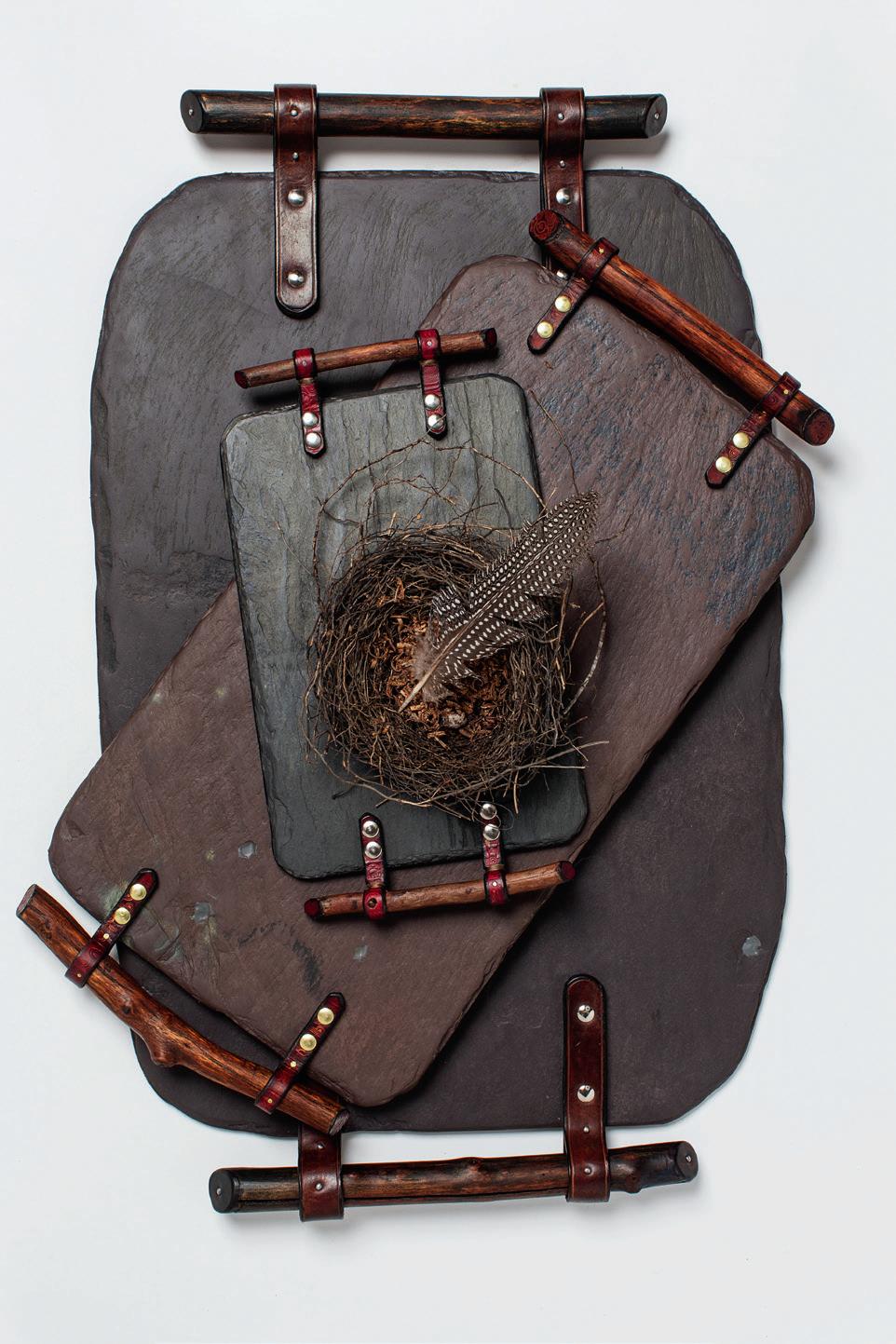
SNAPSHOT: “When I was performing with the Martha Graham Company in Japan, I gained an appreciation of things old and worn—things chipped or peeling or bent or rusted. I learned it had a name: wabi-sabi. I started with old pallets that firewood had been stacked on, combining the slats with leather to make wall hangings.”
INSPIRATION: “It’s important that the pieces come from local buildings or woods. The standing dead oak, striped maple, and beech I use are all over the woods. I have a lot of slate at the moment, but I can imagine someday using slate from other old barns in the area and crediting the barn and builder and including a picture of the place where it spent 150 years.”



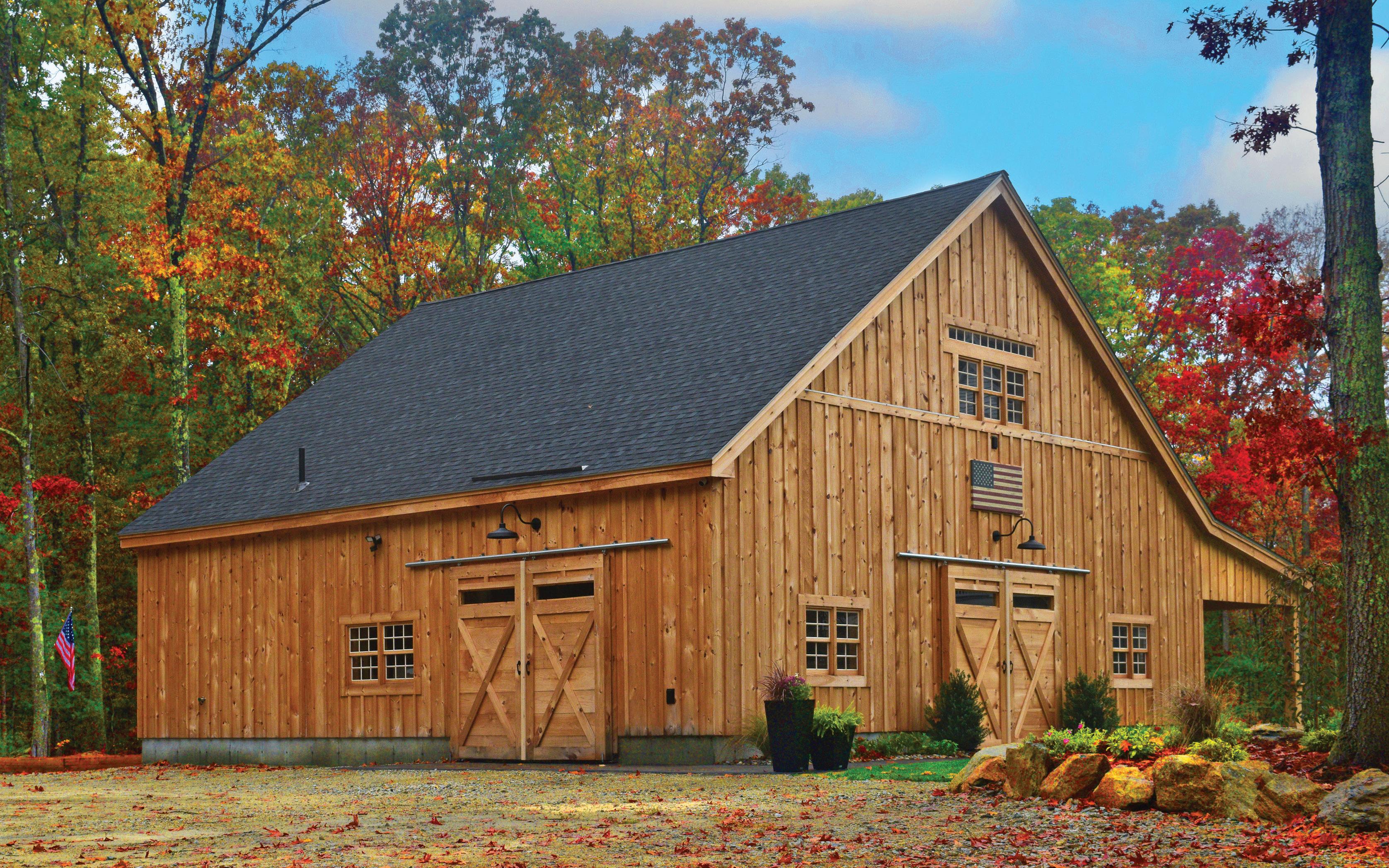






Portland, ME seabags.com
WHAT SEA BAGS MAKES: Breezy totes, travel bags, pillows, and even lounge chairs from recycled sails; the most popular item is the one-of-a-kind Vintage bag. Last fall, the tote bags and bucket bags were GreenCircle Certified as 100 percent recycled content. Bottom line: saving roughly 750 tons of sailcloth from landfills since Sea Bags’ founding in 1999.

SNAPSHOT: “There is no sail too small or too far away,” says company president Beth Greenlaw. “We travel all over the country, partnering with sailing clubs, races, and marinas, to acquire and reclaim sailcloth. As long as there are sailors, we’ll never run out of sails.”

AmEnde Art | Guilford, CT amendeart.net
WHAT HE MAKES: Lively mixed-media paintings of New England—Adirondack chairs, birch trees, picket fences— that incorporate vintage sheet music, maps, and postcards, diverting paper from landfills and into art. Look for slivers of maps hidden in spears of marsh grass or travel postcards decking out beach chairs.

SNAPSHOT: “Ten years ago, I was doing a lot of antiquing and flea markets, and noticing all of the vintage ephemera. Nostalgia has always been a constant companion, and the thought of combining ephemera with my art intrigued me.”
INSPIRATION: “History. With every piece I incorporate into my paintings I can’t help but think of the time period it came from. I can get lost in the past, but I try to channel that back into my work.”

Though many of his most famous stories are set on and around the Mississippi River, Connecticut is where Samuel Clemens, better known as Mark Twain, did his best writing. The Hartford home where he lived for 17 years is now open to the public as the Mark Twain House and Museum, which has become a popular attraction. But more than a decade after he left Hartford, it was on Birch Spray Hill, just west of the Saugatuck River in Redding, that Clemens built what would be his final home. Now, that property can be yours.
Clemens named the property Stormfield, after the title character in his story “Extract from Captain Stormfield’s Visit to Heaven,” which appeared in Harper’s Magazine in the December 1907 and January 1908 issues. It would be the final Twain story published in the author’s lifetime, and the proceeds helped pay for the Redding house.
In 1908, writing in Stormfield’s guest book, Clemens noted:
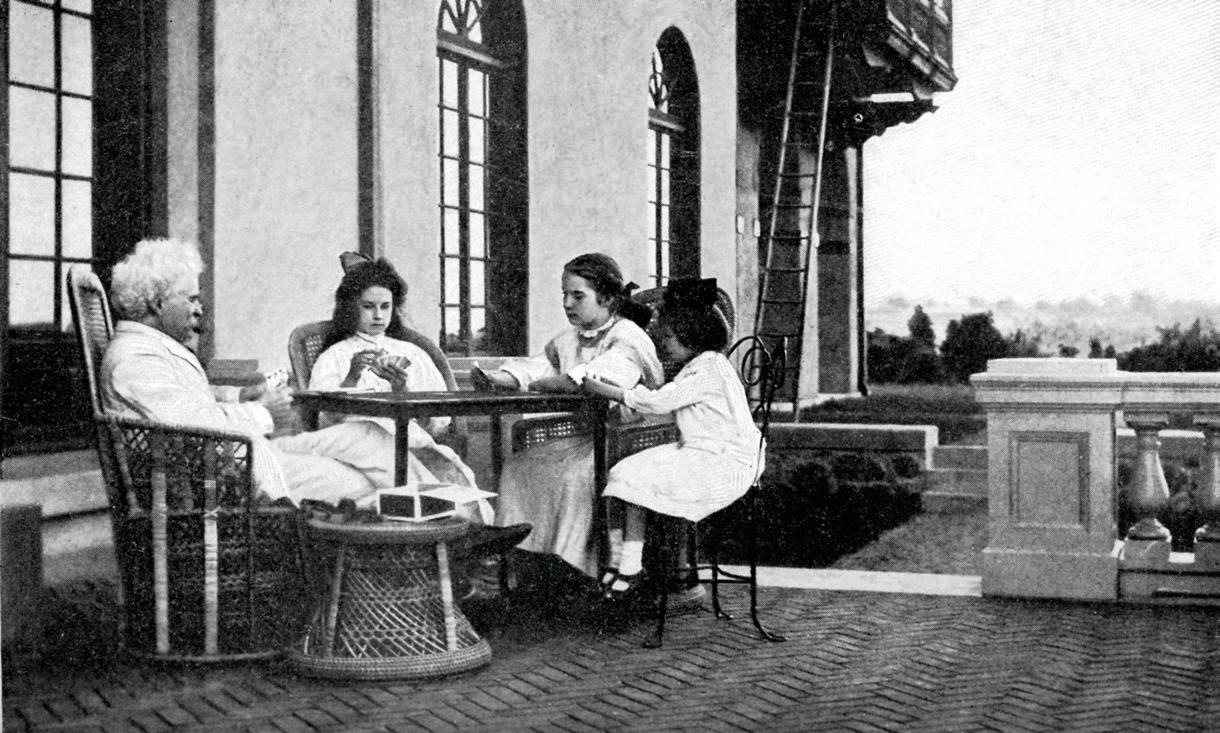
I bought this farm of 200 acres three years ago, on the suggestion of Albert Bigelow Paine, who said its situation and surroundings would content me—a prophecy which came true three years later, when I arrived on the ground. John Howells, architect, and Clara Clemens and Miss Lyon planned the house without help from
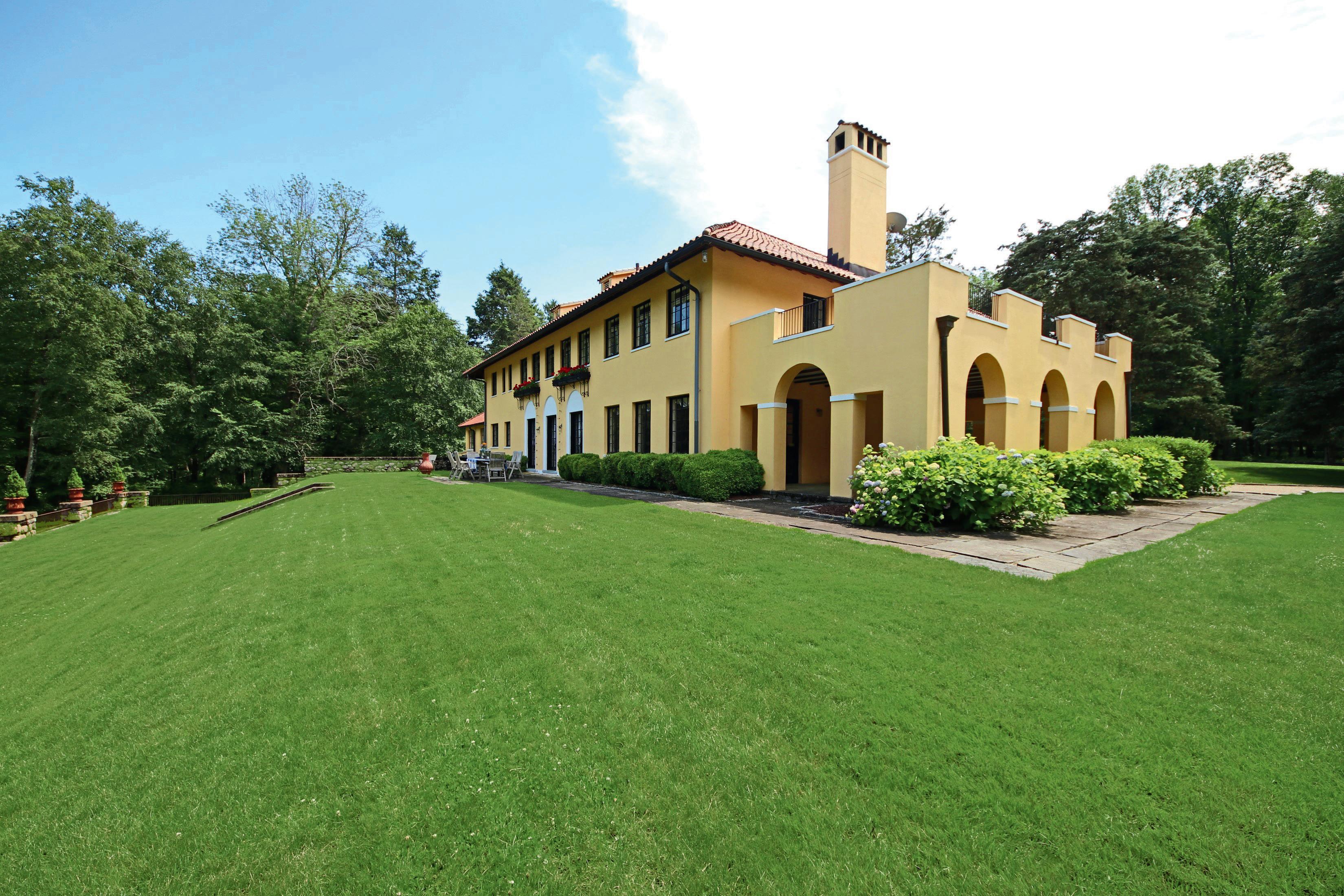 Discover the sprawling Connecticut estate where the beloved author spent his final days.
Discover the sprawling Connecticut estate where the beloved author spent his final days.

buy 2 for $180 SAVE $10 $95
Classic British corduroy pants, expertly tailored in the finest quality thick, 8 wale corduroy. Smart, comfortable and very hard wearing – they look great and retain their color and shape wash a er wash. Brought to you, by Peter Christian, traditional British gentlemen’s outfi ers.
- FREE Exchanges
- 100% co on corduroy

- French bearer fl y with a pleated front
- 2 bu oned hip and 2 deep side pockets
- Hidden, expanding comfort waistband gives 2" fl exibility
Waist: 32 34 36 38 40 42 44 46 48 50 52"
Leg: 27 29 31 33"
Colors: Brown, Purple, Moss, Burnt Orange, Navy, Toff ee, Royal Blue, Emerald, Corn, Burgundy, Sand, Black, Red Model is 6' tall and wears 34/29"
Brown Purple Moss Orange Navy Toff ee Royal Blueme, and began to build it in June 1907. When I arrived a year later it was all finished and furnished and swept and garnished and it was as homey and cozy and comfortable as if it had been occupied a generation.… I only came to spend the summer, but I shan’t go away anymore.
The architect, John Howells, was the son of writer William Dean Howells, a close friend of Clemens, and he designed Stormfield in a Tuscan style that was loosely inspired by places Clemens had lived during his Italian sojourns.
Clemens fell in love with the completed home, where he would host visitors ranging from Helen Keller to Thomas Edison. It was Edison, by the way, who captured the only known film footage of Clemens, in 1909. The footage is grainy, but it shows Clemens in his signature white suit, walking on the Stormfield grounds.
Clemens died of a heart attack at Stormfield in 1910, after which it passed to his daughter Clara, who eventually sold it. In 1923, the original house burned while being renovated. A smaller version was rebuilt two years later, using the same foundation, stone walls, and other features.
Owned by Jake and Erika DeSantis since 2003, the now-28-acre property sits just up the hill from the Mark Twain Library (which Clemens himself had championed as a tribute to his daughter). There is 6,300 square feet of
living space, which includes the 1925 house with its four bedrooms, five bathrooms, and three fireplaces, plus a heated outdoor pool; a carriage house; and a detached three-car garage with a two-bedroom apartment.
The rebuilt main house succeeds in capturing the original’s grandeur, with marble floors and vaulted ceilings. The living room is highlighted by a hand-painted coffered ceiling. The grand dining room overlooks a large stone terrace, beyond which is a rolling expanse of lawn.
More than 160 acres of surrounding land—much of it once part of Clemens’s original estate—has been purchased by the town and conserved as a nature preserve, where more than
left: The formal dining area looks out onto a verdant garden terrace, heightening the feel of a Tuscan villa.

below: Stormfield’s heated outdoor pool and, beyond, the detached garage and its bonus two-bedroom apartment.
four miles of walking trails are open to the public.
Surveying the countryside from his new home, Clemens once exclaimed, “How beautiful it all is. I did not think it could be as beautiful as this.” He enjoyed the “woodsy hills and rolling country,” remarking to a visiting reporter that Stormfield was “the most out-of-the-world and peaceful and tranquil and in every way satisfactory home I have had experience of in my life.”
And while “Extract from Captain Stormfield’s Visit to Heaven” isn’t connected to the property in any overt way—beyond the name, of course—it does contain a line that reads a bit like prophecy. In a scene in which Captain Stormfield is speaking to the head clerk in heaven, he shares some newfound clarity: “I begin to see that a man’s got to be in his own Heaven to be happy.”
Stormfield is listed for $3.5 million. For details, contact Laura Ancona at 203-7337053 or visit move2ridgefield.com.
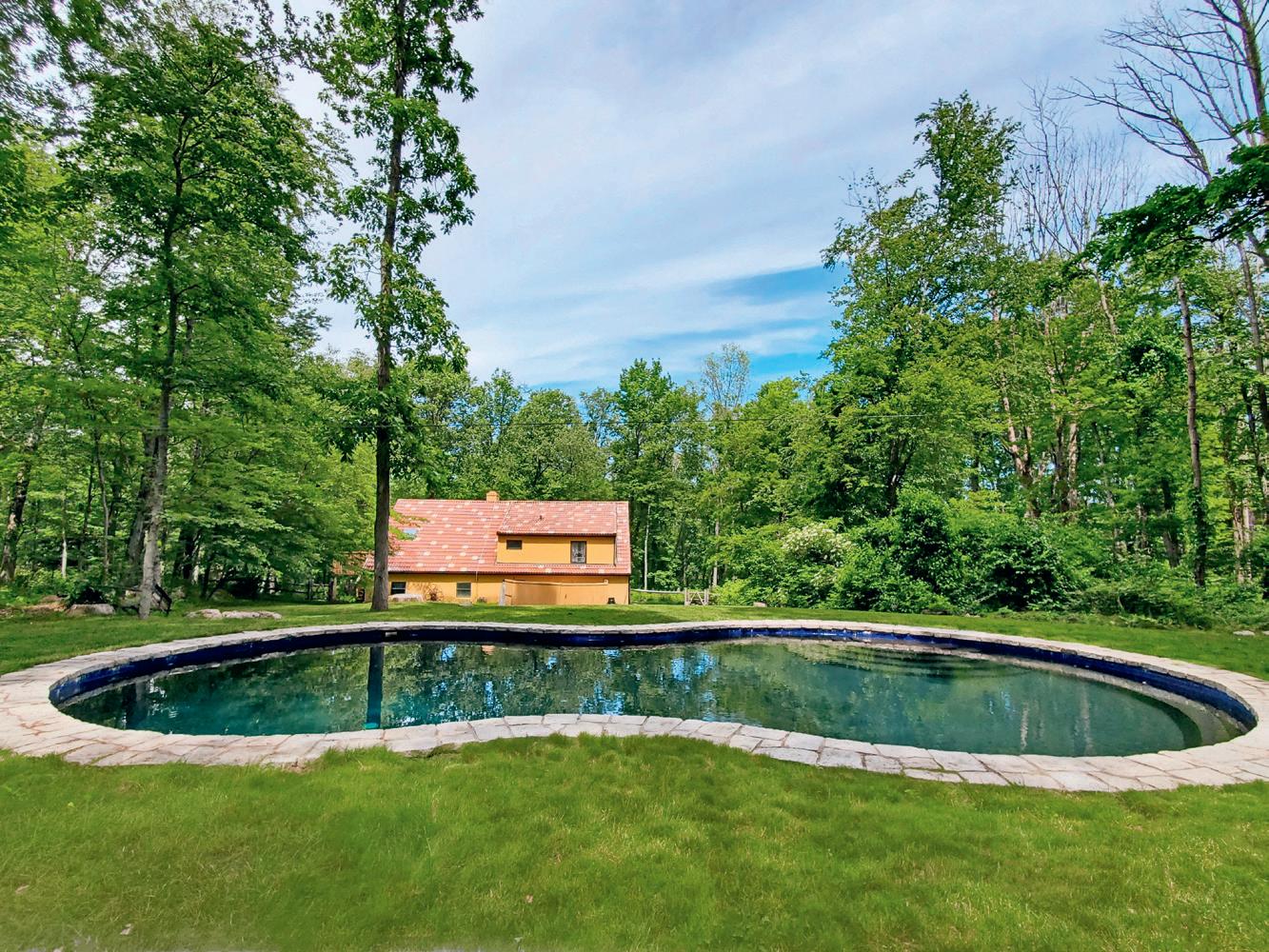




































































 ADAM DETOUR
ADAM DETOUR
hen I stepped out into the cool evening air of Portsmouth, New Hampshire, last November, my hair and dress redolent of wood smoke, my big bag of on-set essentials (hairspray, background research, makeup kit, stain remover) straining my shoulder, I once again breathed a quiet thanks for another day of adventures while making Weekends with Yankee , the New England travel and lifestyle show we coproduce with WGBH. On this day, I had been at Strawbery Banke, the living history museum on the Piscataqua River, where I had learned to cook using the tools and methods of 18th-century cooks. This was just one day of many, in locations from midcoast Maine to downtown Boston, southern Connecticut to northern Vermont. Over the course of many months of filming this, our seventh season, my cohost, Richard Wiese, and I logged lighthouse visits and Alpine-inspired dinners, long hikes and city tours. There’s so much to enjoy, so check your local listings and follow along. And for a sampling of recipes from the upcoming season, try these delicious treats, which you’ll see me making on the show.
With spring comes a brand-new season of our TV show, Weekends with Yankee. Here’s a preview of the food highlights from our travels.FOOD PHOTOGRAPHS BY FOOD STYLING BY CATRINE KELTY | PROP STYLING BY DARCY HAMMER, ANCHOR ARTISTS
opposite: Among the New England food pros who appear on the new season of Weekends with Yankee are Kate Hamm and Jason Eckerson of Fish & Whistle in Biddeford, Maine. this page: Bacon and clam juice give savory heft to Fish & Whistle’s Fish Chowder (recipe, p. 48).

Kate Hamm and Jason Eckerson both cooked at top restaurants in Portland, Maine, before opening their own spot, Fish & Whistle, in nearby Biddeford, which has quickly become one of the most vibrant food towns in New England. Seeing an opening for a more casual spot, the couple turned their focus to seafood, perfecting the art of fish and chips and making one of the tastiest fish chowders I’ve ever tried. “We like to make our fish chowder with bacon and clam juice,” Hamm says. “Though these are not necessarily traditional, we think the end result is delicious.”
1 tablespoon unsalted butter
2 slices bacon, finely diced
1 large onion, diced
3 cloves garlic, minced Kosher salt and freshly ground black pepper, to taste
11/2 teaspoons fresh thyme leaves, finely chopped
11/2 teaspoons fresh rosemary, finely chopped
4 cups clam juice
2 cups heavy cream
1 large potato, diced
11/2 pounds white fish, such as haddock, cod, or halibut, cut into 2-inch pieces
In a Dutch oven over medium-low heat, melt the butter and add the bacon. Cook, stirring often, until the bacon has rendered most of its fat, 5 to 7 minutes. Add the onion, garlic, and a pinch of salt. Cook, stirring occasionally, until onions are soft, about 6 minutes. Add the rosemary, thyme, and a pinch of black pepper and cook for one minute.
Add the clam juice and cream and bring to a low boil, then add the potatoes and a generous pinch of salt. Bring the liquid back to a low boil.
Once the potatoes have just begun to soften, add the fish and cook until it starts to flake apart (cooking time will vary by species). Season with salt
and pepper to taste (it may need a little more than you would think). Yields 6 to 8 servings.
Jordan Benissan moved to Maine in the 1990s to take a job as a music instructor at Colby College. A master of polyrhythmic drumming, he brought the musical traditions of his home country of Togo in West Africa to the small town of Waterville. Missing the flavors of home, he began hosting dinner parties, which were so successful that he eventually opened a restaurant, Mé Lon Togo, now located in Rockland. He sees all of his work as a form of cultural exchange and education, whether in an auditorium or around a table. This chicken and peanut stew is a great example, the perfect warming meal for the early days of spring.
8 bone-in, skin-on chicken thighs
1 large yellow onion, diced
1 whole bulb of garlic, peeled and minced
1/4 cup minced ginger
1 tablespoon kosher salt
1 tablespoon fennel seeds
1-3 teaspoons cayenne pepper, depending on your taste for heat
1/2 cup plus 11/2 cups water
1 large tomato, chopped
2 tablespoons tomato paste
11/2 cups freshly ground peanut butter
Cilantro leaves and chopped peanuts, for garnish
In a Dutch oven, combine chicken thighs, onion, garlic, ginger, salt, fennel seeds, and cayenne pepper. Make sure all thighs are evenly coated with spices and aromatics. Cover the pot, place on stove, and turn the heat to high. Once the mixture begins to steam, reduce the heat to mediumlow, add 1/2 cup water, and stir. Cover and cook until very tender, about 40 minutes.
Turn off heat. Remove the thighs from the pot and arrange, skin side up, on a baking sheet. Transfer the sheet to the top rack of the oven and broil on high until the skin crisps and turns golden brown. Watch the chicken constantly, because this happens quickly. Once the chicken turns golden brown on the top, remove from the oven and set aside.
Set the Dutch oven over mediumhigh heat. Add the chopped tomato and the tomato paste. Stir and bring to a boil until the tomato is dissolved, about 10 minutes. Add remaining 11/2 cups water and the peanut butter. Cook, stirring, until the sauce becomes creamy. Add chicken thighs back to the pot, submerging halfway. Simmer on low for 10 minutes. Add more water if needed. Serve in bowls, garnished with cilantro and peanuts. Yields 6 to 8 servings.
This is our streamlined adaptation of a popular and wonderfully decadent appetizer served at the beloved oyster bar in Boston’s North End. Whereas the Neptune Oyster version uses three types of flour (all-purpose, semolina, and cornmeal), we use just two. And though the restaurant finishes the dish in a buttery caramel sauce with a dollop of crème fraîche and caviar, we decided it was delicious enough without them. You’ll want to keep the smoked fish pâté recipe in your repertoire: It’s very simple—and great on crackers too.
(Continued on p. 92)





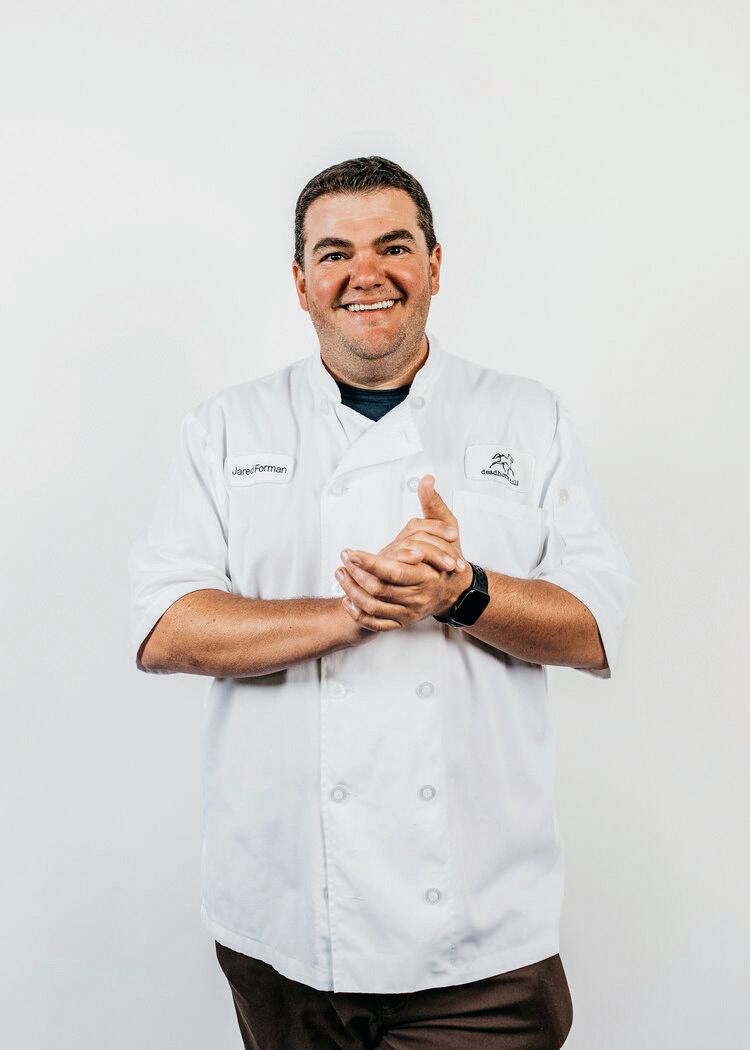 Mé Lon Togo’s Chicken and Peanut Stew, courtesy of chef-owner Jordan Benissan, right.
Neptune Oyster chef Joaquin Sepúlveda, left, and a close-up of Neptune Oyster’s Johnnycakes with Bluefish Pâté.
Deadhorse Hill’s Pork Katsu (Cutlets) with Curried Squash Sauce, courtesy of chef Jared Forman, right.
Mé Lon Togo’s Chicken and Peanut Stew, courtesy of chef-owner Jordan Benissan, right.
Neptune Oyster chef Joaquin Sepúlveda, left, and a close-up of Neptune Oyster’s Johnnycakes with Bluefish Pâté.
Deadhorse Hill’s Pork Katsu (Cutlets) with Curried Squash Sauce, courtesy of chef Jared Forman, right.
 BY AMY TRAVERSO
BY AMY TRAVERSO
ring as a sugar shack in full swing on a blue-sky March day. Clouds of steam billowing out of the shack’s roof seem to crack open the door between winter and spring. The sap is flowing, life returns, and sweetness is a sure thing. One of my most memorable breakfasts was served on picnic tables at High Hopes Sugar House in Worthington, Massachusetts. I remember pancakes, French toast, bacon, eggs, sausage, ham, all drenched in syrup fresh from the boiler. Many sugar shacks offer these breakfasts in season. Visit one near you, if you can.
Meanwhile, we have two recipes you can make at home: one sweet, one savory. To start, my no-bake maplewalnut cheesecake bars. You just press the graham-cracker-and-walnut crust into a pan, let it chill, and make an easy filling with cream cheese, yogurt, and whipped cream. Let the filling set for several hours, then give it a drizzle of syrup and a sprinkling of walnuts right before serving.
Next, a favorite year-round recipe with just four essential ingredients. This is a salty-sweet marinade made with soy sauce, maple syrup (or honey), and minced garlic. It works beautifully with salmon, tuna, and Arctic char and is my go-to recipe for easy summer grilling. However, this being early spring, I’ll be making it in the oven for now.

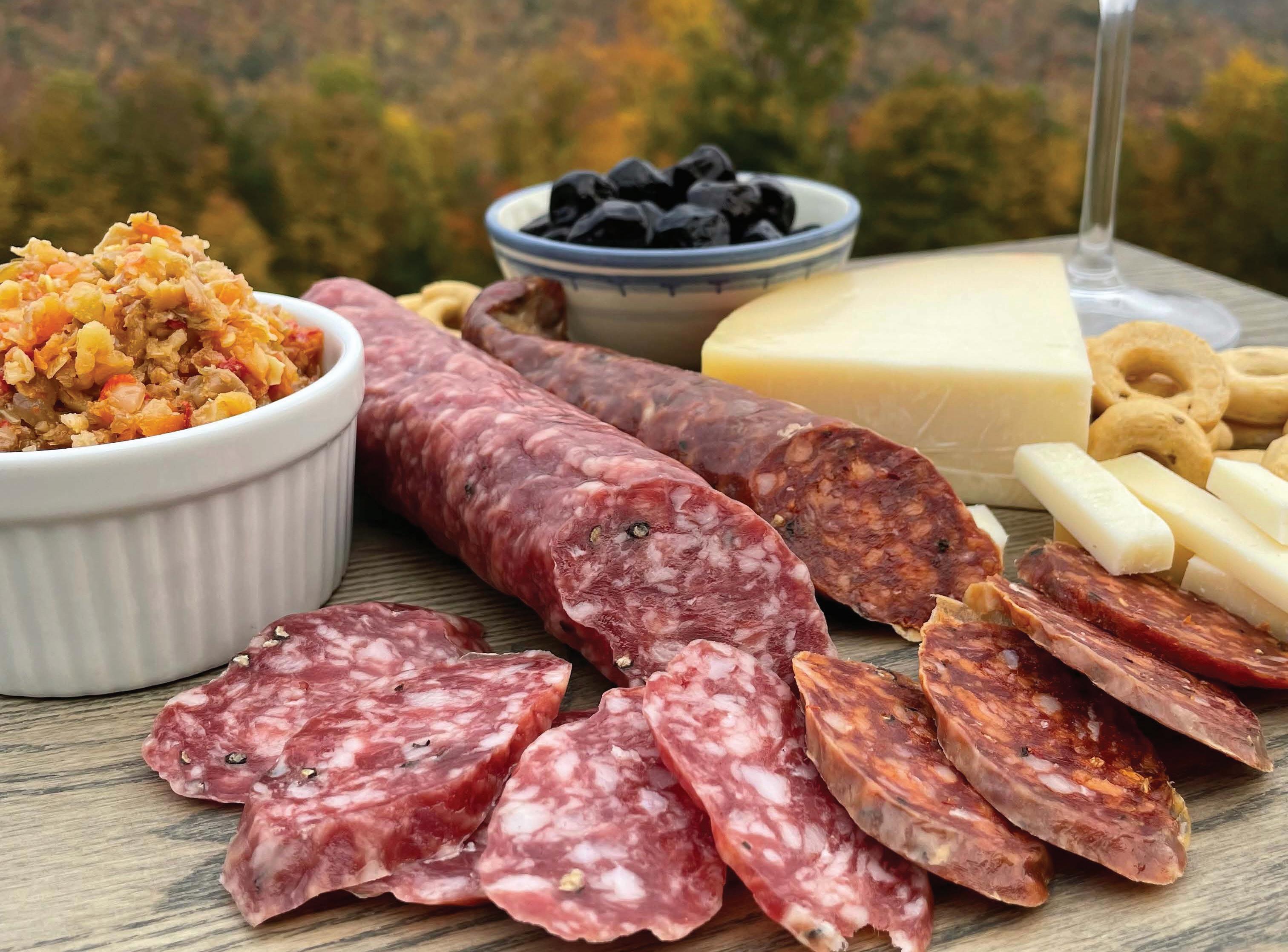



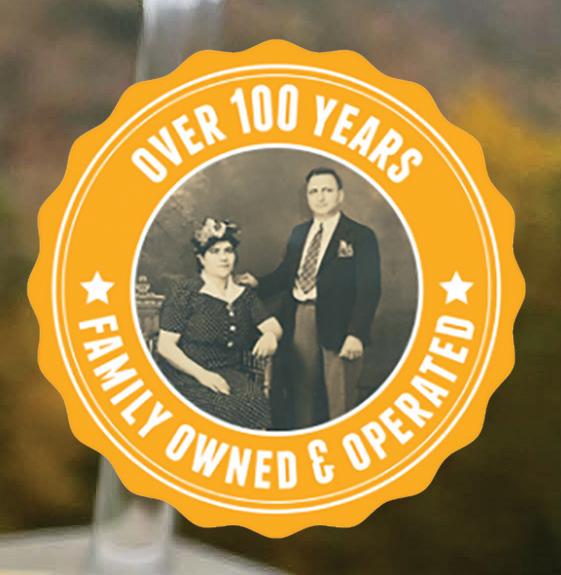





16 graham crackers, broken into pieces
½ cup chopped walnuts
2 tablespoons granulated sugar
8 tablespoons (1 stick) salted butter, melted
1 cup heavy whipping cream
3 8-ounce packages cream cheese, softened
1¼ cups powdered sugar
1 cup whole-milk yogurt
¾ teaspoon maple extract
¼ teaspoon table salt
Maple syrup and chopped walnuts, for garnish
Line a 9-by-13-inch baking pan with parchment paper, leaving at least a
2-inch overhang on the sides to help you lift the bars out of the pan later.
Now, make the crust: In the bowl of a food processor, pulse the graham crackers until mostly broken down. Add the walnuts, sugar, and melted butter and pulse until the mixture resembles wet sand. Pour the mixture into the prepared pan and press it down into an even layer. Transfer the pan to your freezer.
Next, make the filling: Using a handheld or stand mixer and a large bowl, beat the heavy cream on high speed until stiff peaks form. Transfer the whipped cream to another bowl and set aside. Now put the cream cheese, powdered sugar, yogurt, maple extract, and table salt in the original bowl and beat on high until the mixture is smooth and fluffy. Then gently fold in half of the whipped cream until the mixture is evenly combined. Repeat with the rest of the whipped cream.
Remove the crust from the freezer and pour the topping over it, using an offset spatula to smooth it into an even layer. Cover the pan with plastic wrap and refrigerate until the cheesecake has firmed up, at least 6 hours and up to 2 days.
Lifting up by the parchment “handles,” carefully remove the cheesecake from the pan. Use a sharp knife to cut the cheesecake into 16 to 20 bars. Immediately before serving, drizzle the bars with maple syrup and sprinkle with chopped walnuts. Yields 16 to 20 bars.
¾ cup regular or low-sodium soy sauce
½ cup maple syrup
2 large (4 medium) garlic cloves, minced
2 pounds salmon
Oil, for the baking sheet
Toasted sesame seeds and thinly sliced scallions, for garnish
In a medium bowl, whisk together the soy sauce, maple syrup, and garlic. Reserve 1/2 cup of this mixture and set aside. Pour the rest into a ziptop bag and add the salmon (cut the salmon into two pieces if needed to fit). Refrigerate and let the fish marinate for at least 30 minutes and up to 1 hour.
Preheat oven to 425°F. Meanwhile, in a small saucepan, simmer the reserved 1/2 cup of sauce, stirring constantly, until a spatula dragged across the bottom leaves a trail, about 5 minutes. This will be your glaze.
Pour a thin layer of oil on a rimmed baking sheet. Remove the salmon from the marinade and discard the marinade. Lay the fish on the oiled baking sheet, then bake until the center is firm, 12 to 15 minutes. Brush with the glaze, then garnish with sesame seeds and scallions, and serve with rice and a side vegetable. Yields 4 to 6 servings.






































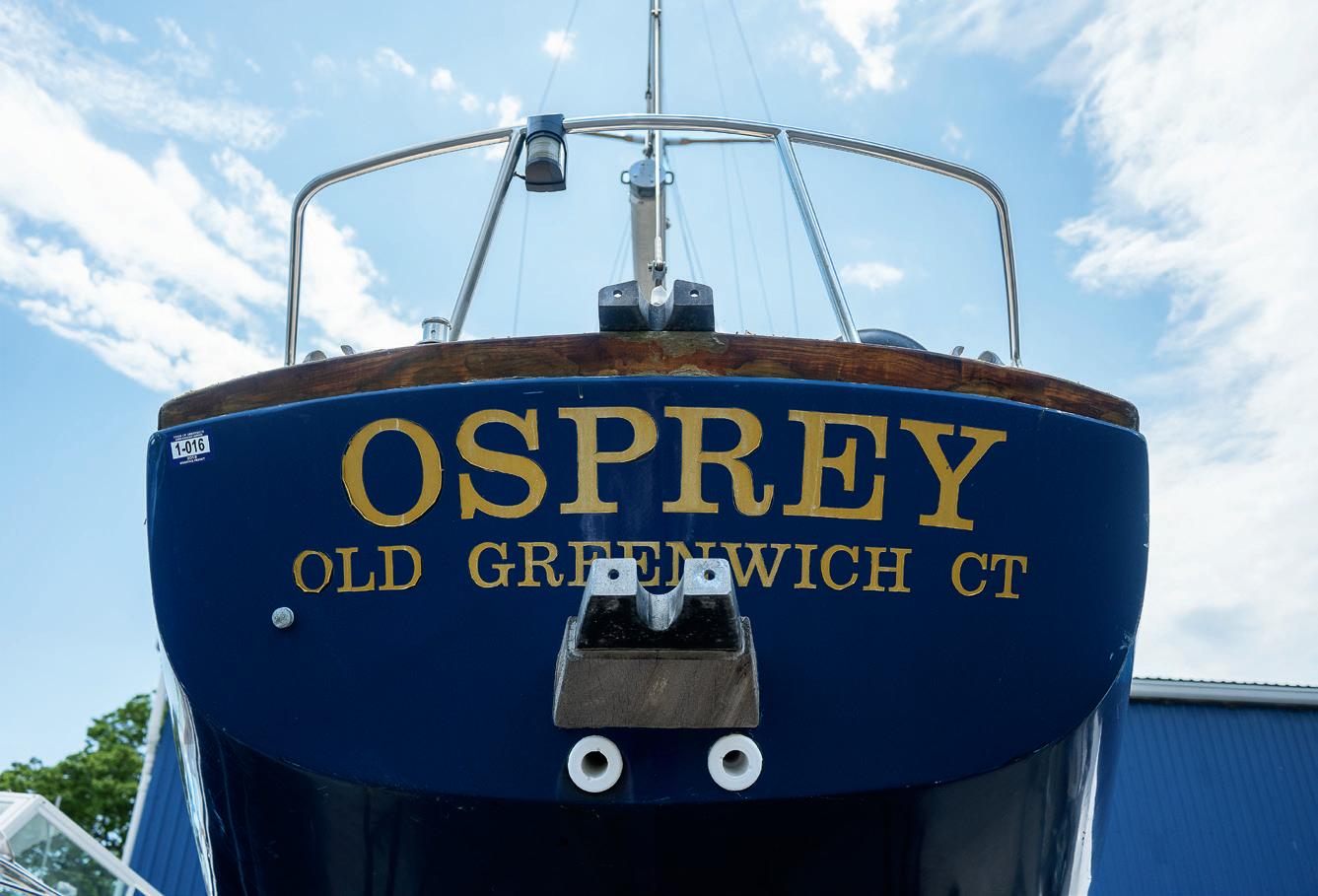
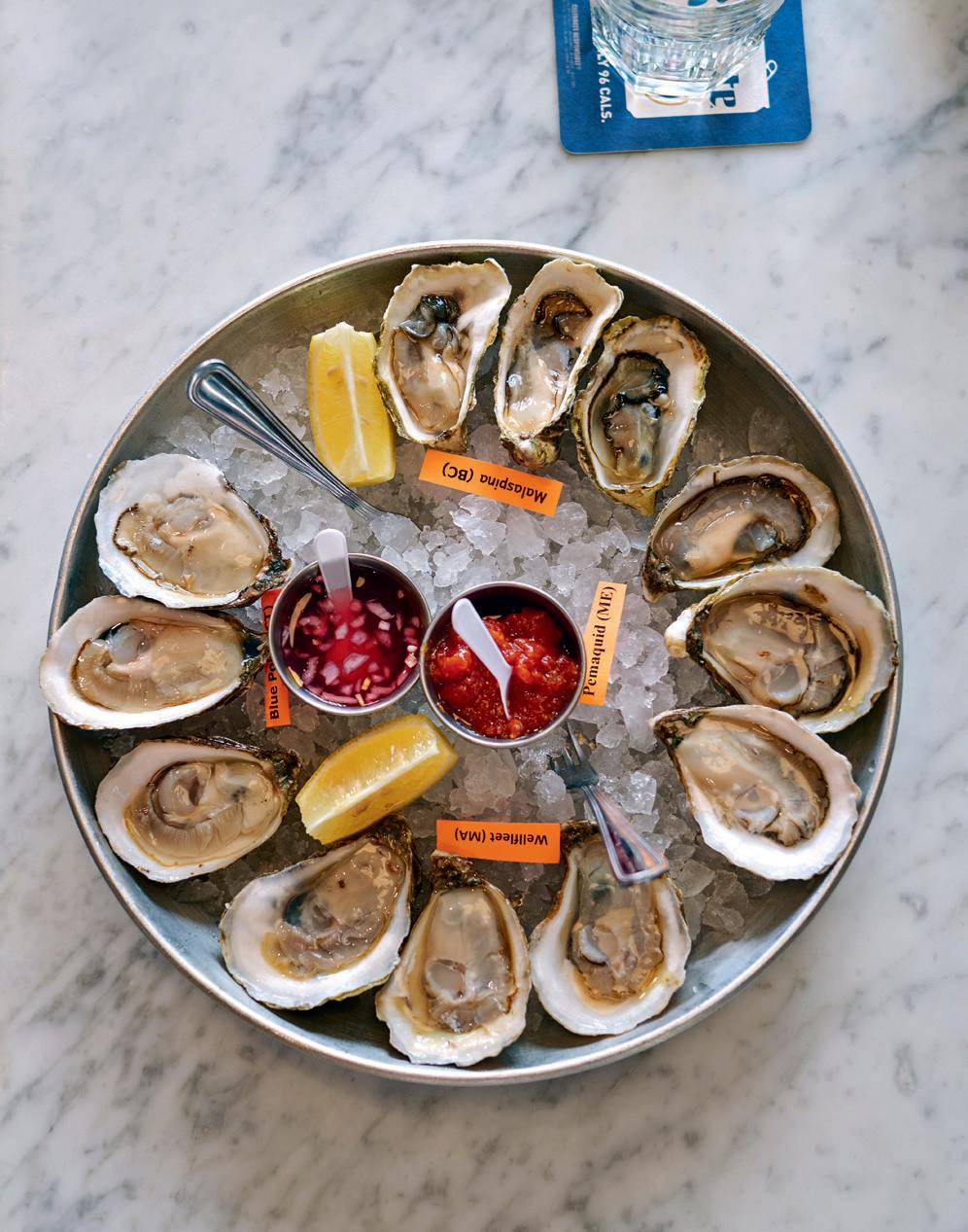

 BY IAN ALDRICH | PHOTOS BY JANE BEILES
BY IAN ALDRICH | PHOTOS BY JANE BEILES
 opposite, clockwise from top left: A shellfish sampler at Elm Street Oyster House; a snapshot from the local yachting scene; a caramel cinnamon bun with cream cheese at Sweet Pea’s; one of Greenwich’s many opulent mansions. this page: Soaking up a cozy neighborhood vibe at Elm Street Oyster House.
opposite, clockwise from top left: A shellfish sampler at Elm Street Oyster House; a snapshot from the local yachting scene; a caramel cinnamon bun with cream cheese at Sweet Pea’s; one of Greenwich’s many opulent mansions. this page: Soaking up a cozy neighborhood vibe at Elm Street Oyster House.
Spring arrived for me while I sat on a park bench overlooking Long Island Sound. It was mid-April, and after a long winter I had come to Greenwich, Connecticut, for a shot of southern New England sun. It did not disappoint. Fortified with a morethan-I-could-handle roast beef sandwich from Alpen Pantry, I anchored myself in Greenwich Point Park and gazed across the water to the Manhattan skyline. Around me: birdsong, daffodils, and a scattering of passersby whose easy pace indicated there was no other place they needed to be.
Greenwich is no stranger to admiration. Its proximity to New York City—it’s just an hour’s train ride to Grand Central Station— has long made this community of 63,000 residents a seaside retreat for wealthy ex–New Yorkers. Its real estate is famously among the most expensive in the country, and its main thoroughfare packs the kinds of names (Apple, Tesla, Saks) that you might expect to find on the other side of the Sound.
But look a little closer and you see something else: a white-steepled town dappled with Revolutionary War history situated on one of the most overlooked coastlines in the Northeast. Green spaces and homegrown businesses abound, and underneath all that shiny New York City veneer is a New England identity that is fiercely protected. “It’s one of the few places in New England where you can go hiking in the morning and then 30 minutes later be on a beach,” says Colin Pearson, the 35-year-old third-generation owner of the Stanton House Inn. “I’ve lived and traveled in other parts of the world, but this is where I wanted to come back to.”
As with most coastal towns, summer is when Greenwich runs at full tilt. Hotel prices skyrocket, and Connecticut’s notoriously private beaches are impossible to visit. Spring offers a different tenor: Room rates are deeply discounted from their July highs, Greenwich Avenue is open for business, and all that sand and water is delightfully easy to access.
One of the under-the-radar features of Greenwich is the abundance of public spaces

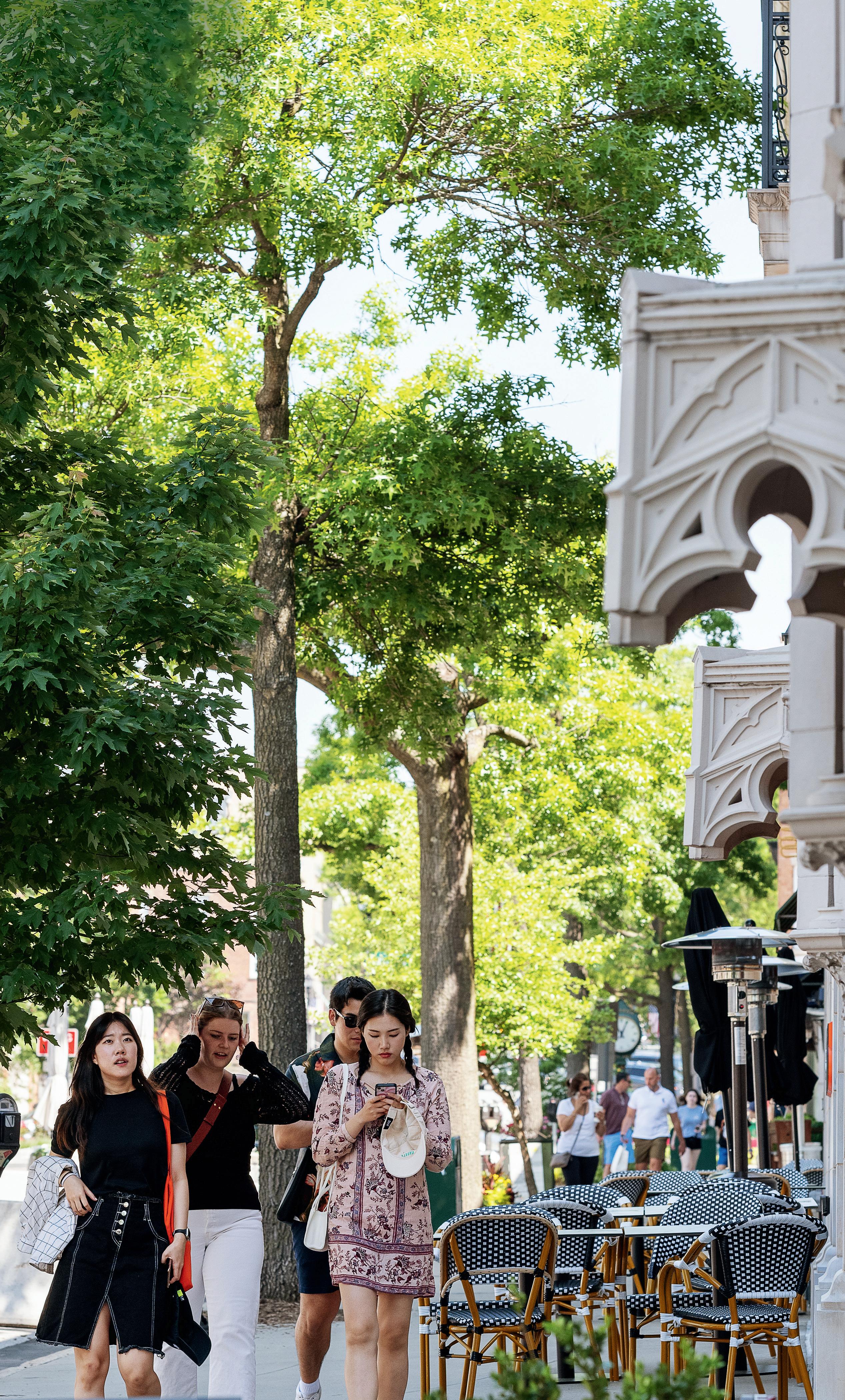
EAT & DRINK
Sweet Pea’s: The morning menu at this inviting breakfast and lunch spot includes a French toast platter conjured from madefrom-scratch cinnamon rolls. sweetpeasct.com
Alpen Pantry: Tucked just off Old Greenwich’s main street, this longtime deli is famous for robust sandwiches such as the Cheddar Spreader (ham and cheese), the Francaise (French pâté), and the Beef Eater (roast beef piled upon more roast beef). alpenpantry.com
Elm Street Oyster House: Shrimp and grits, an inventive paella, and good oldfashioned fish and chips are mainstays at this popular downtown seafood restaurant. elmstreetoyster house.com
STAY
Stanton House Inn: Homey and cheerful, this 20-room B&B is within easy walking distance of Greenwich Avenue. stantonhouseinn.com
The Delamar: Featuring 82 elegant rooms and suites, this dog-friendly waterfront destination offers the kinds of amenities that keep guests in full vacation mode, from the complimentary “check-in” champagne to the free in-town transportation and seasonal cruises. delamar.com/ greenwich-harbor
PLAY
Greenwich Point Park: Known to locals as Tod’s Point, this sprawling former estate
for enjoying the welcome spring weather. Where one park ends, another begins. Greenwich is home to seven different Audubon Society sanctuaries, including the state’s main center, a 285-acre property whose seven miles of trails slice through forest and meadow.
But nothing compares to Greenwich Point Park. Located in the neighborhood of Old Greenwich, a community that dates back to 1640, this 147-acre property wraps around the Connecticut edges of Long Island Sound. There’s a long beach, walkways that keep visitors close to the water, and a launch point for kayakers and boaters. And if you come before May 1, you won’t have to pay to use any of it.
Greenwich isn’t just about the parks and sea, however. The food scene cuts a delicious path here, from the Alpen’s oversize sandwiches to
ABOVE: Near the National Historic Landmark Bush-Holley House sits this well-preserved 1805 storehouse, now home to the offices of the Greenwich Historical Society. LEFT: An open swath of sand invites explorers at Tod’s Point, officially known as Greenwich Point Park.
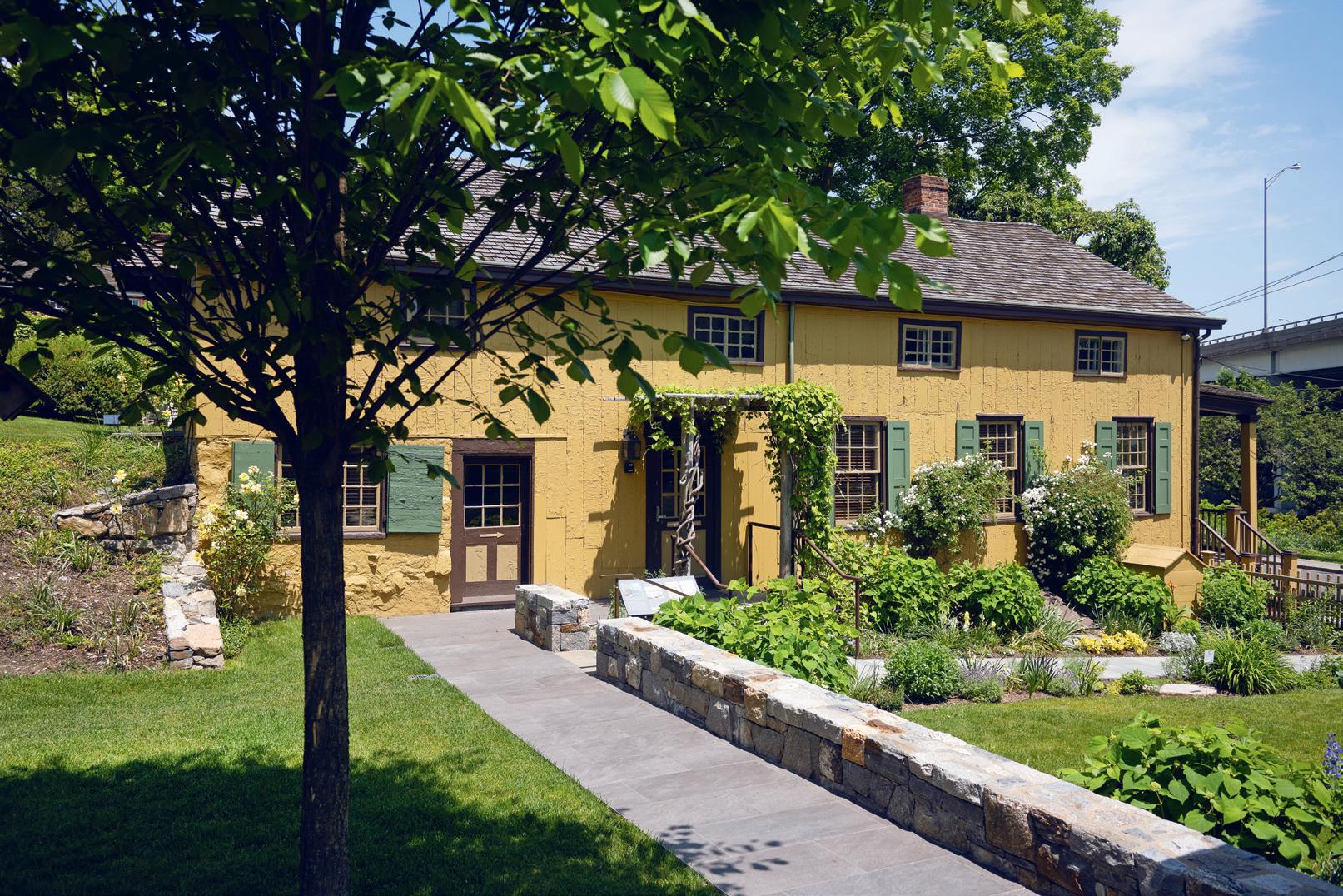
Elm Street Oyster House, a 48-seat bistro that has been a mainstay of Greenwich’s downtown dining scene for three decades, to the decadent cinnamon buns made from scratch at Sweet Pea’s, a drop-in spot in the old part of town.
The cultural scene is equally rich. Putnam Cottage tells the story of Greenwich’s Revolutionary War history, while downtown’s C. Parker Gallery connects visitors with art and artists from around the world. The Bruce Museum, whose sprawling collection spans art, science, and natural history, is one of New England’s treasured museums, and this spring an expansive addition doubles its space with a suite of new galleries.
Finally, any visit to Greenwich needs to include Diane’s Books. Now in its fourth decade, this downtown shop is adored by readers and its authors. Across the walls are messages of love from well-known writers. “Ann Patchett is this tall,” the best-selling novelist scribbled in 1997. “Will check again next year.” Peruse those writings, then find your next beach read. Because it’s spring in Greenwich, and you just might need it.
turned town-owned beach and recreational facility features some of the finest public access to Long Island Sound available in Connecticut. greenwichct.gov
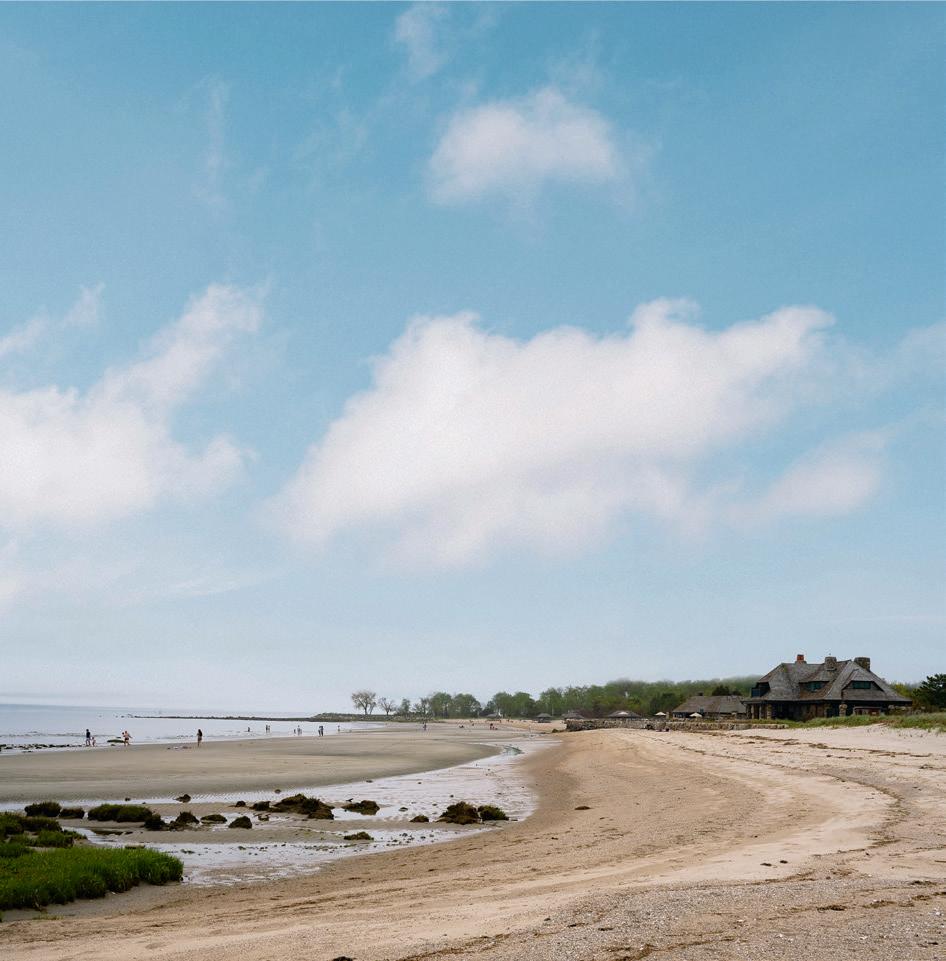
Bruce Museum: A new addition elevates an already treasured museum by providing new exhibition galleries for its art and science programs, as well as a new restaurant and an auditorium. brucemuseum.org
Putnam Cottage: Public events including tours and historical reenactments are held throughout the year at this 17th-century property, which served as a tavern during the American Revolution. putnamcottage.org
Greenwich Audubon Center: Nature programs, exhibits, miles of lovely walking trails, and even a coffee lounge can be found at Audubon’s Greenwich hub. greenwich. audubon.org
SHOP
Diane’s Books: The kids’ section alone is worth the visit to this independent shop. dianesbooks.com
Richards: Only the customer service feels old-fashioned at this upscale fashion store, located in the heart of Greenwich Avenue shopping. richards. mitchellstores.com
C. Parker Gallery: Just whose work you find here may surprise you, as owner Tiffany Benincasa represents a broad range of artwork, including signed Linda McCartney photographs. cparkergallery.com


 Mount Watatic
Mount Watatic
AWOL, Kennebunkport. A compound of luxurious cabins clustered on wooded, landscaped grounds around a historic home makes this newcomer unique among the seaside resort town’s lodging options. Part of Lark Hotels’ portfolio of New England accommodations, AWOL features rooms and suites in the main house, and cabin accommodations ranging from pet-friendly studios to a premium suite with a Japanese soaking tub, gas fireplace, and firepit on the private patio. Continental breakfast offerings rise well above the ordinary. larkhotels.com
CAMBRIA HOTEL, Portland. Tucked
between Portland’s East End and its vibrant harbor district, the Cambria offers generously appointed rooms and suites, each with a refrigerator, microwave, and Bluetooth mirror that brings music into the bathroom. Upper-floor accommodations feature views of the busy harbor, where Casco Bay Lines excursion boats set sail just a half mile from the hotel. An indooroutdoor bar specializes in Maine beers on tap, and the restaurant’s menu is built around local seafood and other regional ingredients. cambriaoldport.com
THE FEDERAL, Brunswick. Understated elegance is the hallmark of The Federal, a 19th-century sea captain’s home and former inn reborn as a 30-room boutique
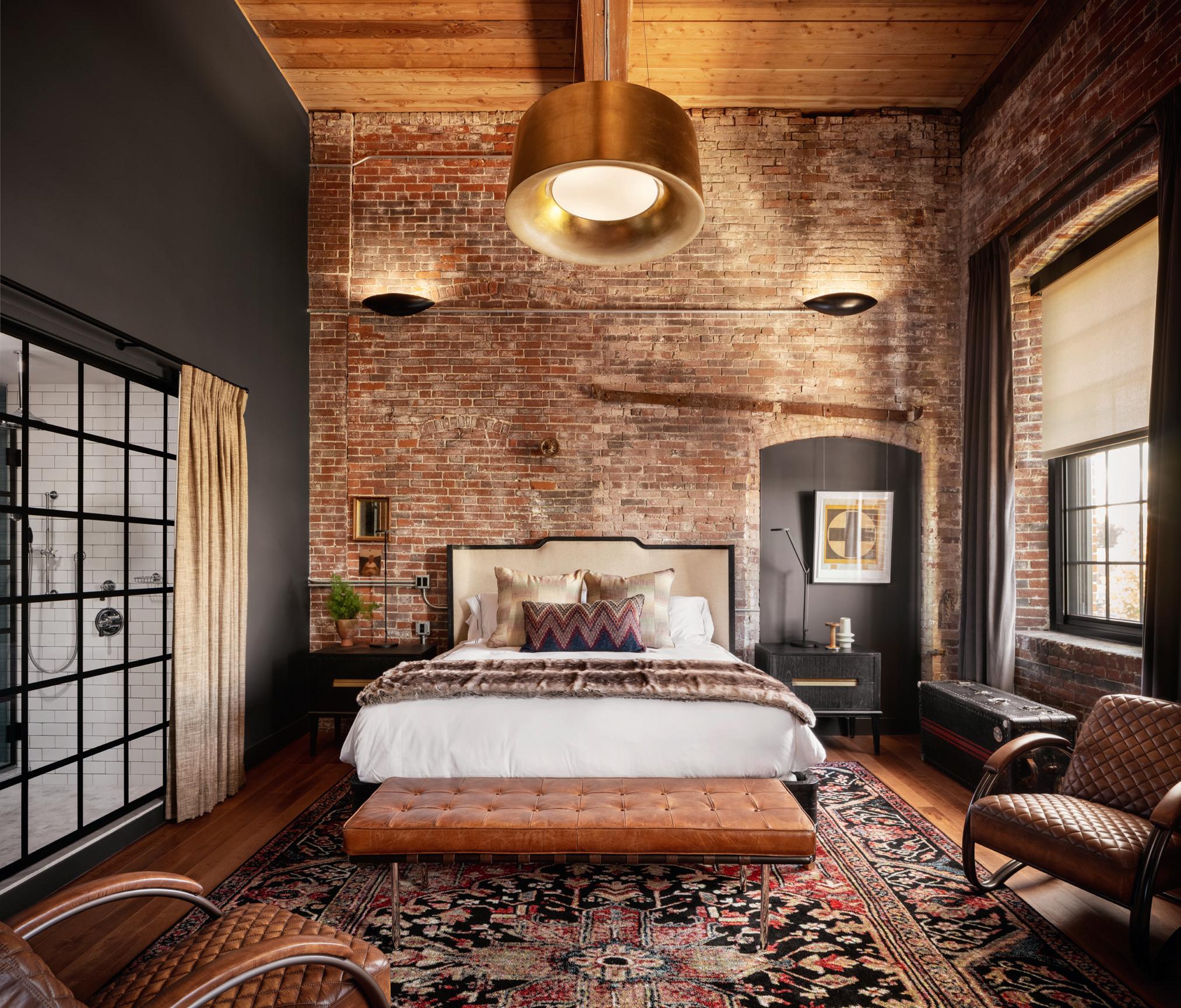
hotel. A five-minute stroll to Main Street’s attractions and a scant mile from Bowdoin College, the pet-friendly Federal offers accommodations that bring together period details and a clean, modern aesthetic. Guests who remember Portland’s acclaimed 555 restaurant will be delighted to find chef Steve Curry back at work in the hotel’s restaurant 555 North, transforming locally sourced ingredients into his “New New England” cuisine. thefederalmaine.com
THE LINCOLN HOTEL, Biddeford. A 170-year-old mill now houses the Lincoln Hotel, a 33-room boutique newcomer to Maine’s south coast. All
(Continued on p. 98)
A 19th-century textile mill in Biddeford, Maine, has been stylishly reimagined as the Lincoln Hotel.


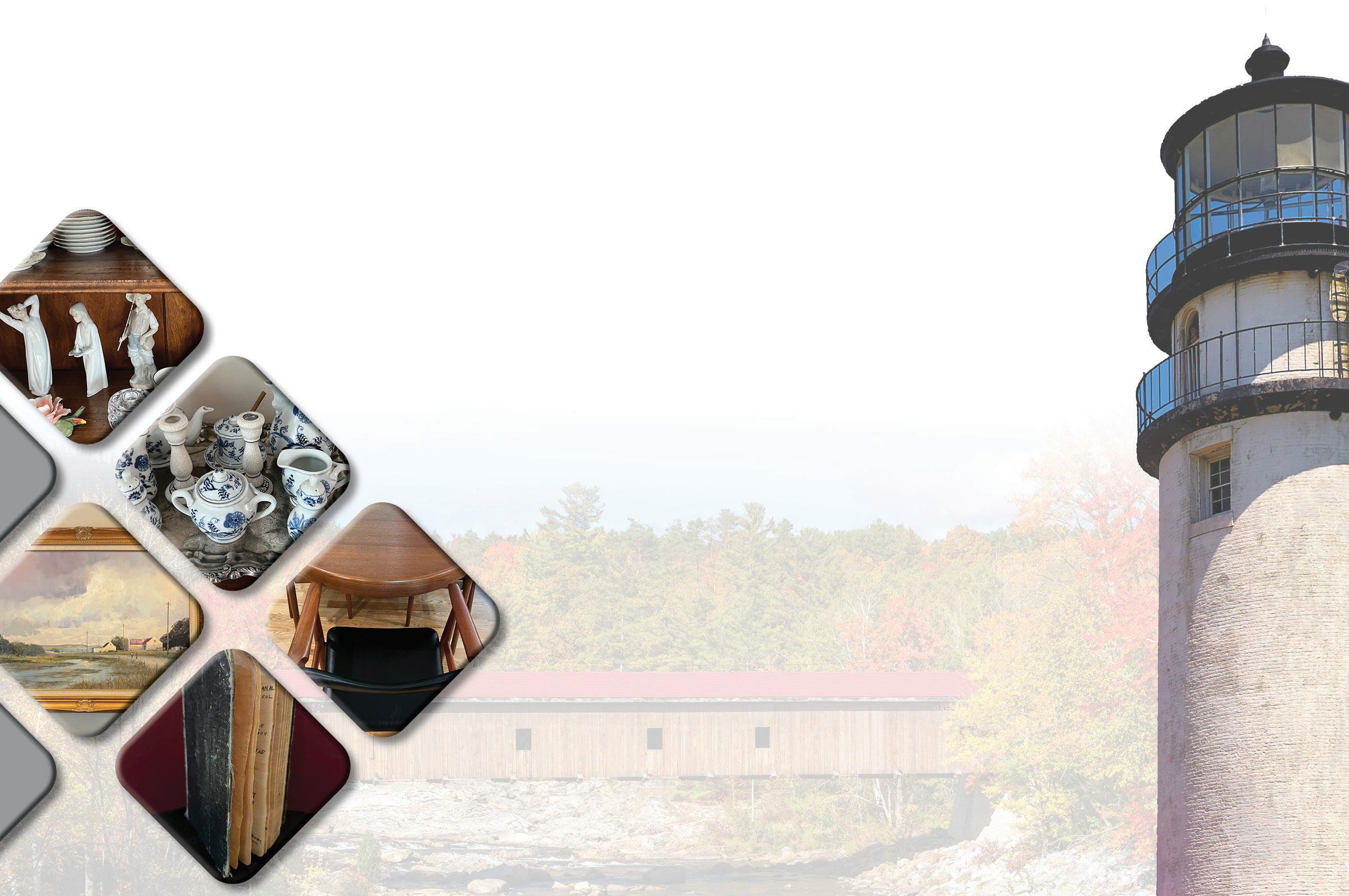



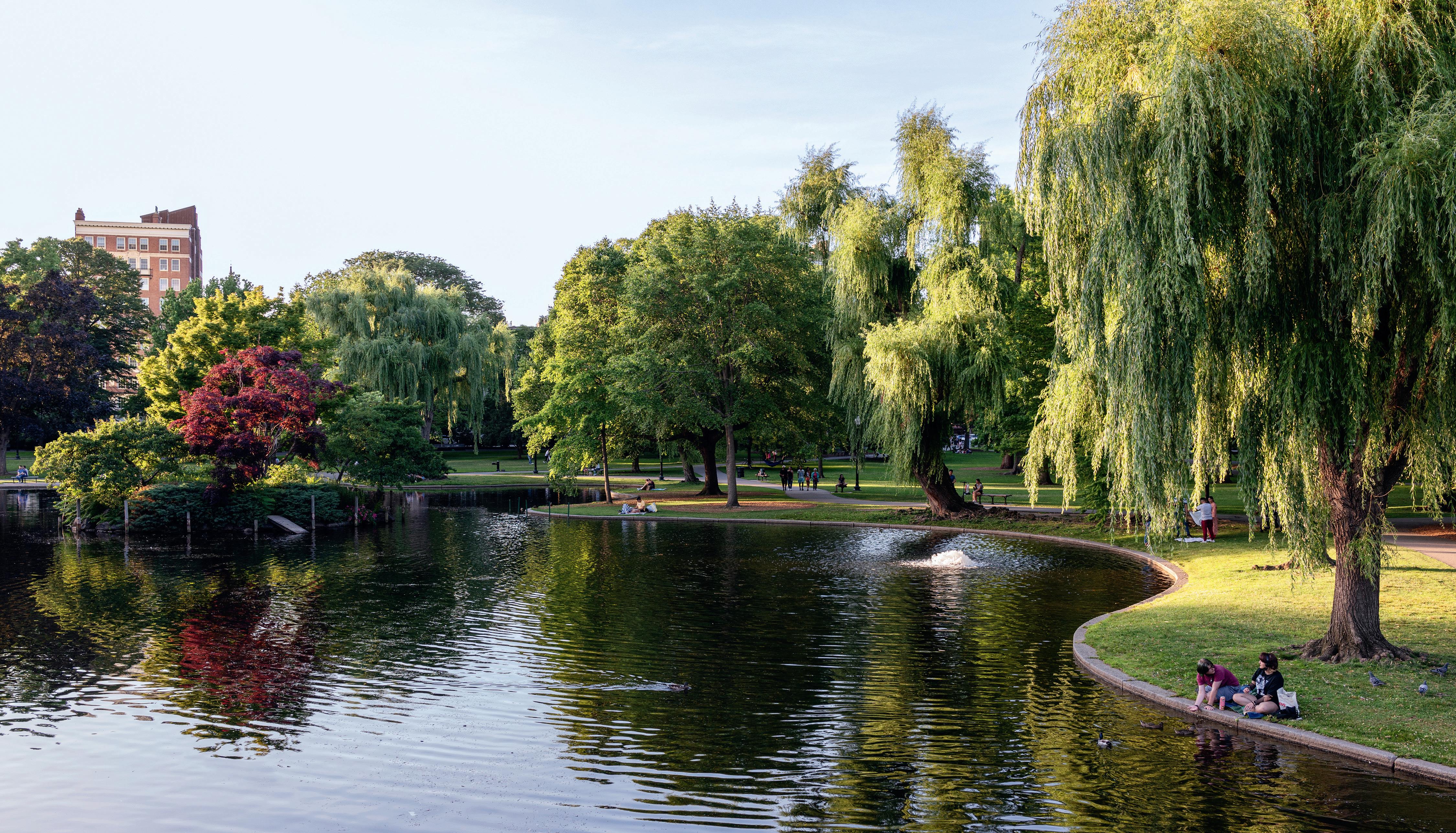 BY MILES HOWARD | PHOTOS BY GREER MULDOWNEY
BY MILES HOWARD | PHOTOS BY GREER MULDOWNEY

ust minutes ago I was surrounded by happy people. Everyone in Brooklyn goes to Prospect Park at some point, and when I walked across the vast sun-soaked lawn of Long Meadow, revelers were lunging for frisbees, applying tanning oil, and chasing after their dogs’ leashes. But a winding trail from the meadow’s edge has taken me into the shadowy depths of a ravine, where white oak, black birch, and hickory constitute the last remaining forest in this New York City borough. The sound of a chuckling waterfall lures me in deeper, and I’m overcome by that “uncanny valley” sensation that I’m seeing something I’m not supposed to see. Because I’m in a really big city.
But this was always the point of Prospect Park—bringing the rustic backcountry to the heart of the metropolis. And the guy we have to thank for this is Frederick Law Olmsted. A globetrotting author and journalist who became a landscape architect during the Civil War, Olmsted inspired America to imagine bigger, more naturalistic urban parks that offered everyone a reliable venue for rambling. His “greatest hits” include Montreal’s Mont Royal Park and the U.S. Capitol grounds. But the Northeast, where Olmsted grew up, is his most prolific territory.
Whether you’re in New York City or on Lake Champlain, Olmsted’s fingerprints are all over the leafy spaces where many of us found ourselves living our lives during the first two years of the Covid-19 pandemic, when being outdoors wasn’t just therapeutic but a defense against viral contagion. Now, boosted and ready to hit the road again, I’ve come to Brooklyn with a mission to celebrate the 200th anniversary of Olmsted’s birth.
I will drive north from here across New England, and get happily lost in some of the most important parks that Frederick Law Olmsted created. Ideally, I’ll return home with a better understanding of who Olmsted was, and what fueled his progressive vision of what parks could look like and feel like. Judging from my initial foray into the ravine at Prospect Park, where I find the little cascade sloshing away, I’m at least guaranteed some enviable photographs. And a lot of insect bites.
For Olmsted, the journey to redefining public parks began with New England road trips. Born in Hartford, Connecticut, in 1822 and raised by his father, a dry-goods merchant, Olmsted was introduced to the countryside on family vacations to rugged realms like the Connecticut River Valley and the Green
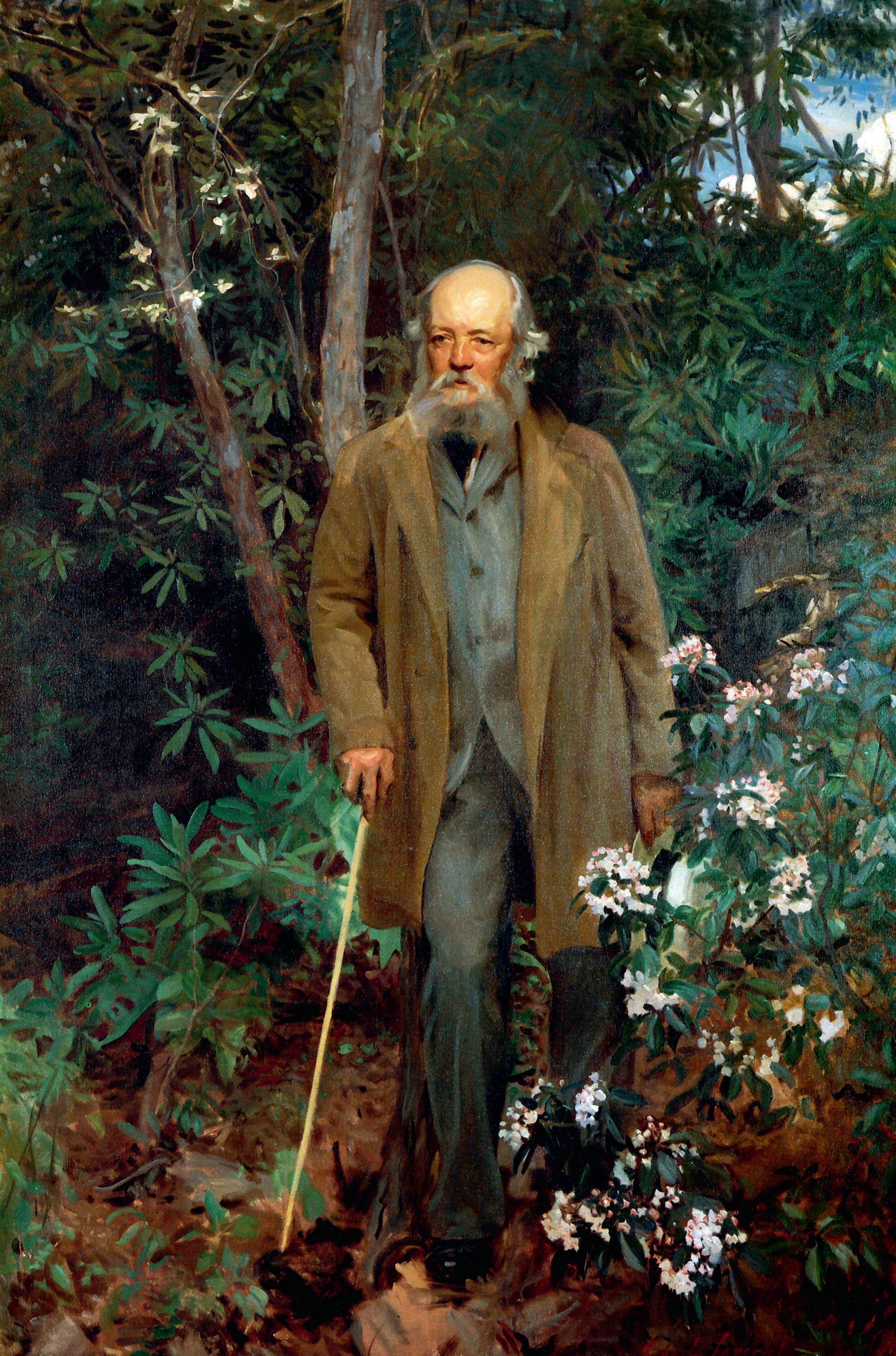 This 1895 John Singer Sargent portrait of Frederick Law Olmsted hangs in North Carolina’s historic Biltmore estate, whose gardens, grounds, and landscape are rooted in his creative vision.
This 1895 John Singer Sargent portrait of Frederick Law Olmsted hangs in North Carolina’s historic Biltmore estate, whose gardens, grounds, and landscape are rooted in his creative vision.
Mountains. The journeys were undertaken by horsedrawn carriage, giving young Olmsted ample time to admire the scenery. During his teenage years, a workstudy gig on a farm in Waterbury cultivated Olmsted’s interest in using landscapes creatively—a concept that he would later chase to the British Isles after working as a reporter for The New York Times.
While Olmsted’s journalistic years had been spent covering and condemning slavery in the South, an editorial position with Putnam’s Monthly lured him to London. This allowed Olmsted to spend time poking around the United Kingdom’s sumptuous green spaces, such as Birkenhead Park, the nation’s first publicly funded park. Unlike the elaborately sculpted and manicured gardens of France, the British green spaces had a more naturalistic, shaggy aesthetic—as though someone had taken a fistful of countryside, set it into a place like Liverpool or Birmingham, and added wandering paths. This approach to
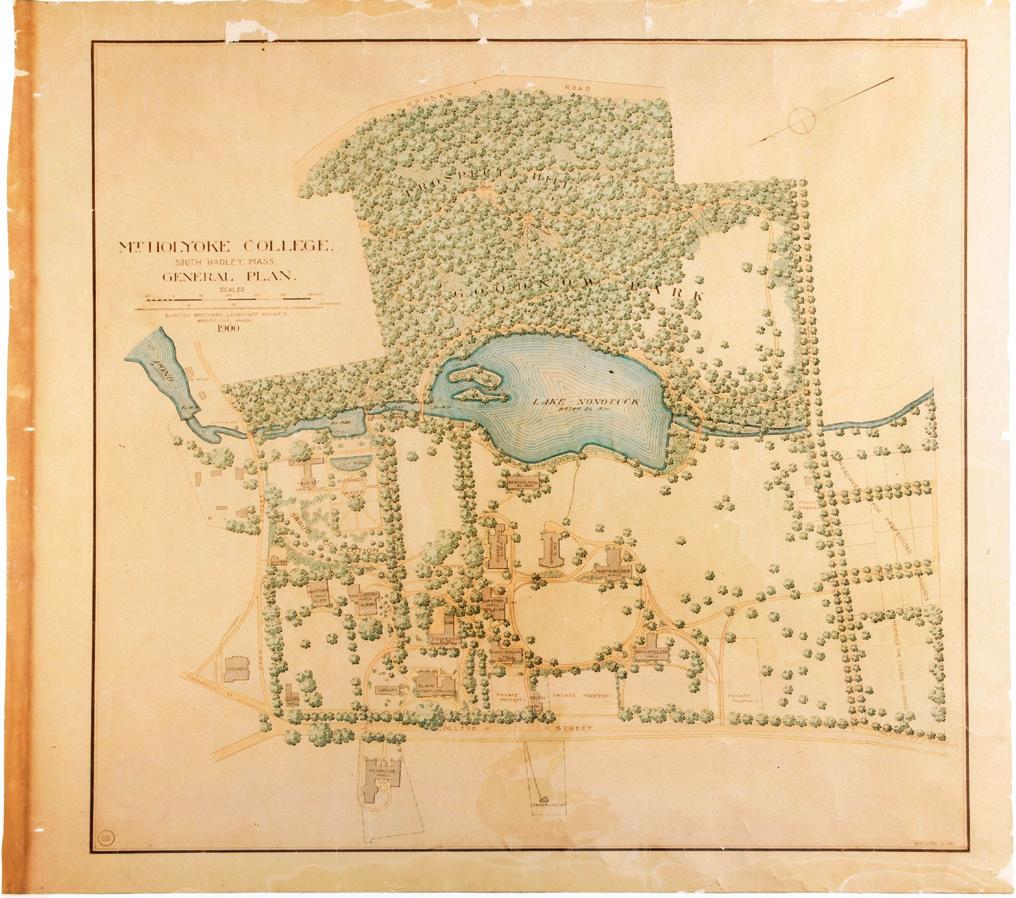
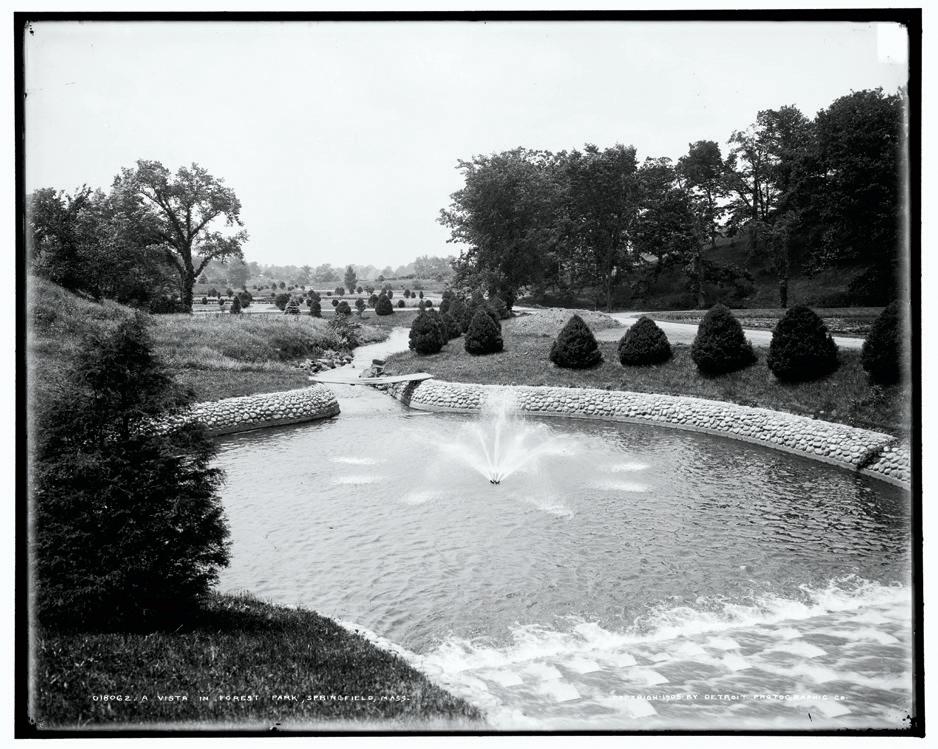
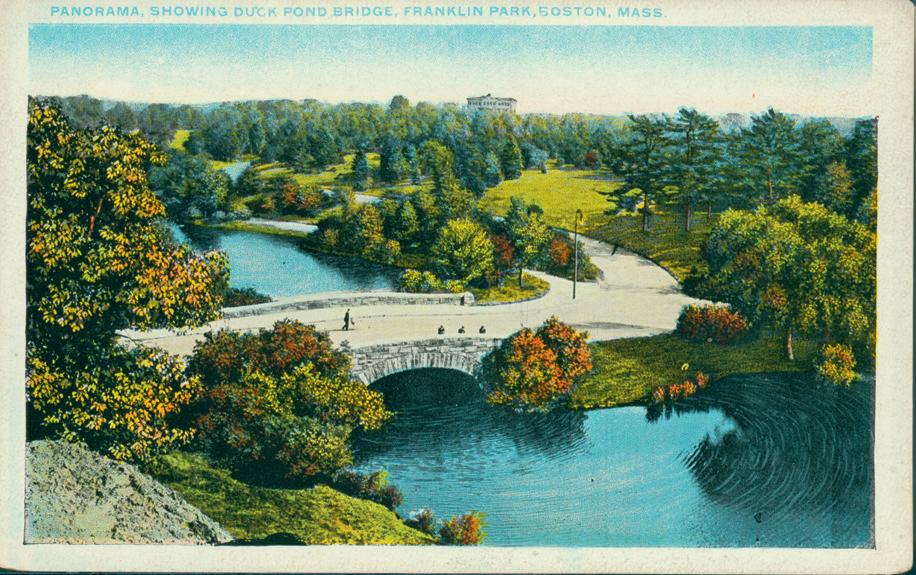
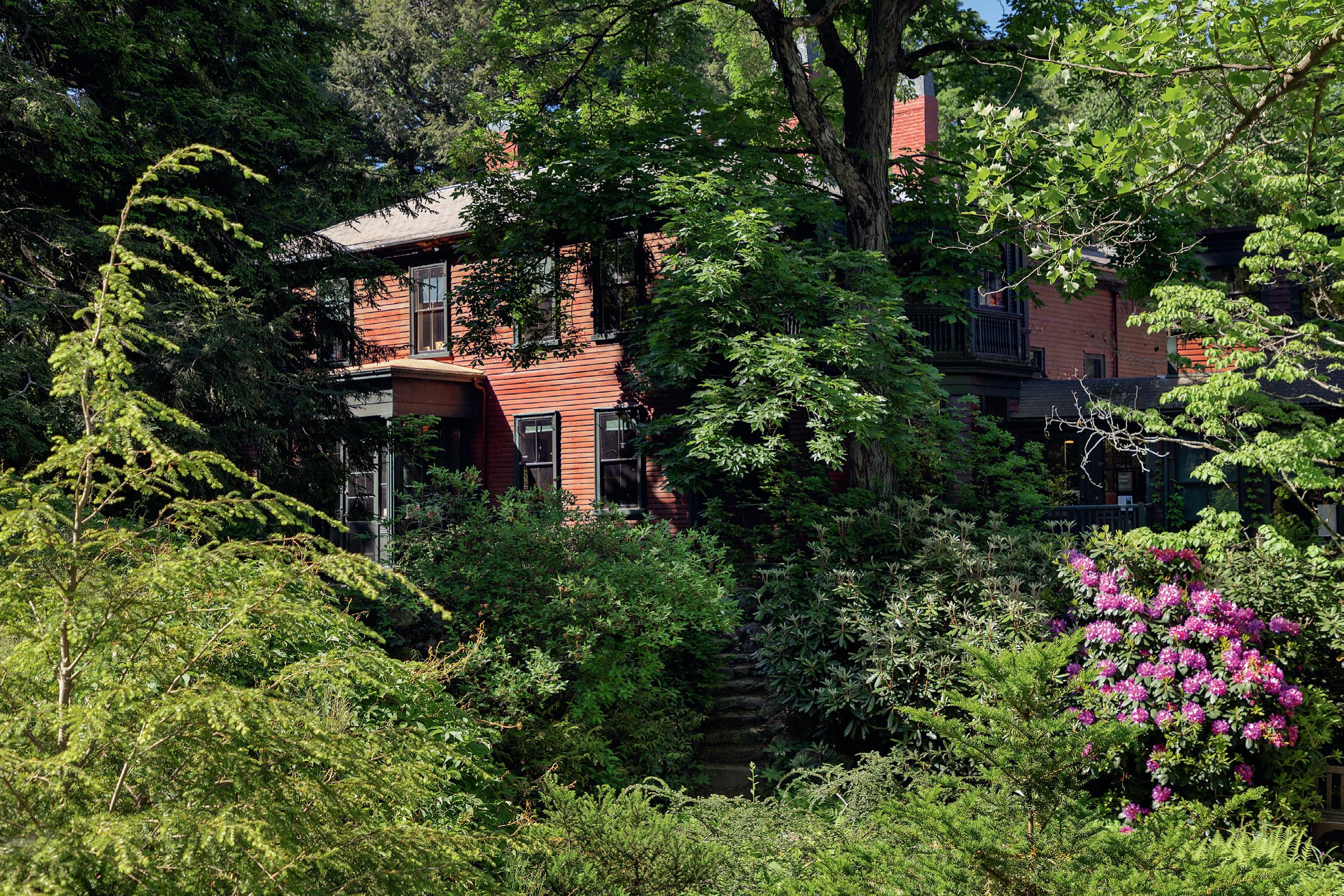
landscape design, paired with the realization that a beautiful park could be a common good for everyone to enjoy, would possess Olmsted.
He brought both ideas back to the United States, and it wasn’t long before he had a chance to realize them. In 1857, Olmsted leveraged his literary scene connections to score the role of Central Park’s construction superintendent. Four years earlier, the New York legislature had cemented plans to turn Manhattan’s core into a sprawling green space. One of Olmsted’s tasks as superintendent was sketching designs of what exactly the finished park might look like. He recruited a talented accomplice, the landscape architect Calvin Vaux, and in 1858, the two successfully pitched a master plan for the park that merged picnic greens and promenades with stony waterways and pockets of wild urban woodland, connected by meandering trails.
The finished park positioned Olmsted and Vaux as the most in-demand landscape architects in America.
■ Central Park, Manhattan. Frederick Law Olmsted’s grand creation that set the stage for all that followed. centralparknyc.org
■ Prospect Park, Brooklyn. A forest park with more than 500 acres in the heart of the city, with a zoo, lake, and ravine to explore. prospectpark.org
Travel tips: Steps away from the west side of Prospect Park, the cozy eatery Della o ers duck ragu pappardelle and other creative Italian fare. For an overnight stay, consider Parkside Bed & Breakfast, a sprucedup limestone townhouse on the park’s east side. dellarestaurant.com; parksidebedand breakfast.org
■ Institute of Living, Hartford. At the Retreat Avenue entrance, stop at the guard gate for a map and take a selfguided walking tour of the landscape, which remains mostly intact with respect to Olmsted’s original concept. instituteofliving.org
Travel tip: A family-run Mexican restaurant in Hartford’s West End, Monte Albán is an ideal stop for Olmsted road-trippers seeking hearty staples like tacos, burritos, and enchiladas. montealbanhartford.com
■ Forest Park, Springfield. You can explore the 700plus acres for hours and only scratch the surface. springfield-ma.gov/park
■ Mount Holyoke College, South Hadley. Often called the most beautiful small college campus in the country. Visitors can take part in scheduled campus tours. mtholyoke.edu
Travel tips: In Springfield, don’t miss a chance to dine at Theodore’s Blues, Booze, and BBQ, whose burnt ends will make you feel like you’re in Kansas City. Those looking to spend the night in the Mount Holyoke area should check out the Old Mill Inn, a former gristmill in Hatfield that’s now a boutique hotel. theodoresbbq.com; oldmillinn.us

■ The Emerald Necklace. Boston’s pride and joy of connected parks and green spaces (see map on p. 110). emeraldnecklace.org
Travel tips: Refueling stops are endless along the Necklace, but standouts include Third Cli Bakery in Jamaica Plain, home to some of the flakiest croissants in Boston, and Gene’s Chinese Flatbread Café, a hole-in-the-wall treasure near Boston Common known for its restorative Sichuan comfort food. thirdcli bakery.com; genescafeboston.com
Prospect Park would follow shortly thereafter, but by 1866—the year when ground was broken for Prospect— the two men were being commissioned by not just cities, but also expanding suburbs, universities, medical institutions, and very rich families. Everyone wanted a piece of the grand new parks that Olmsted was building in New York.
If you dodge rush-hour traffic, it’s a three-hour drive from New York City to the Pioneer Valley of Massachusetts, day one of my road trip to take in a range of Olmsted’s works catalyzed by Central Park’s success. My first stop is Bridgeport’s Seaside Park, a slice of verdant calm along Connecticut’s industrialized shores of Long Island Sound. I roam carriage paths past shade trees that sway in the sea breeze. Fishermen cast their lines from a nearby seawall, angling for snapper and fluke, and minutes later I’m standing before a towering stone gateway at the center of the park that resembles the Arc de Triomphe. It’s a pairing of natural elements and neoclassical architecture, and Seaside Park is one of more than 25 municipal parks that Olmsted designed across New England in the latter
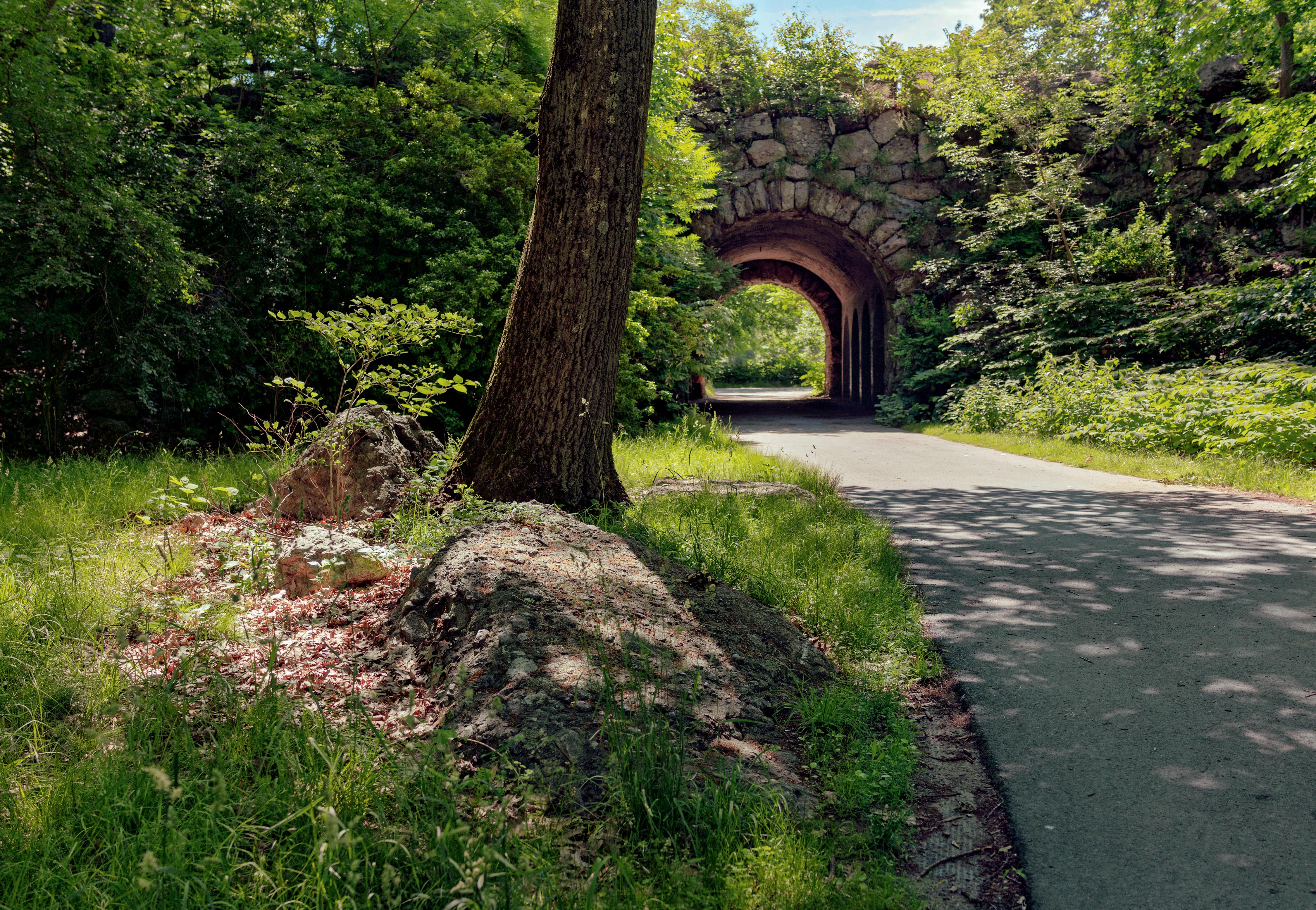
(Continued on p. 106)

Envisioned by Olmsted as an “urban wild,” Boston’s Franklin Park includes architectural features that were designed to blend into nature, such as Ellicott Arch, made with local puddingstone boulders.
OPPOSITE: In the Boston neighborhood of Jamaica Plain, a 1½ -mile walking trail around Jamaica Pond gives visitors a complete view of this small but sparkling link in the Emerald Necklace.

Two food writers combed New England for the best iconic as well as innovative takes on this classic American-style eatery.
BY TANYA EDWARDS and AMY TRAVERSOA fresh-off-the-grill feast
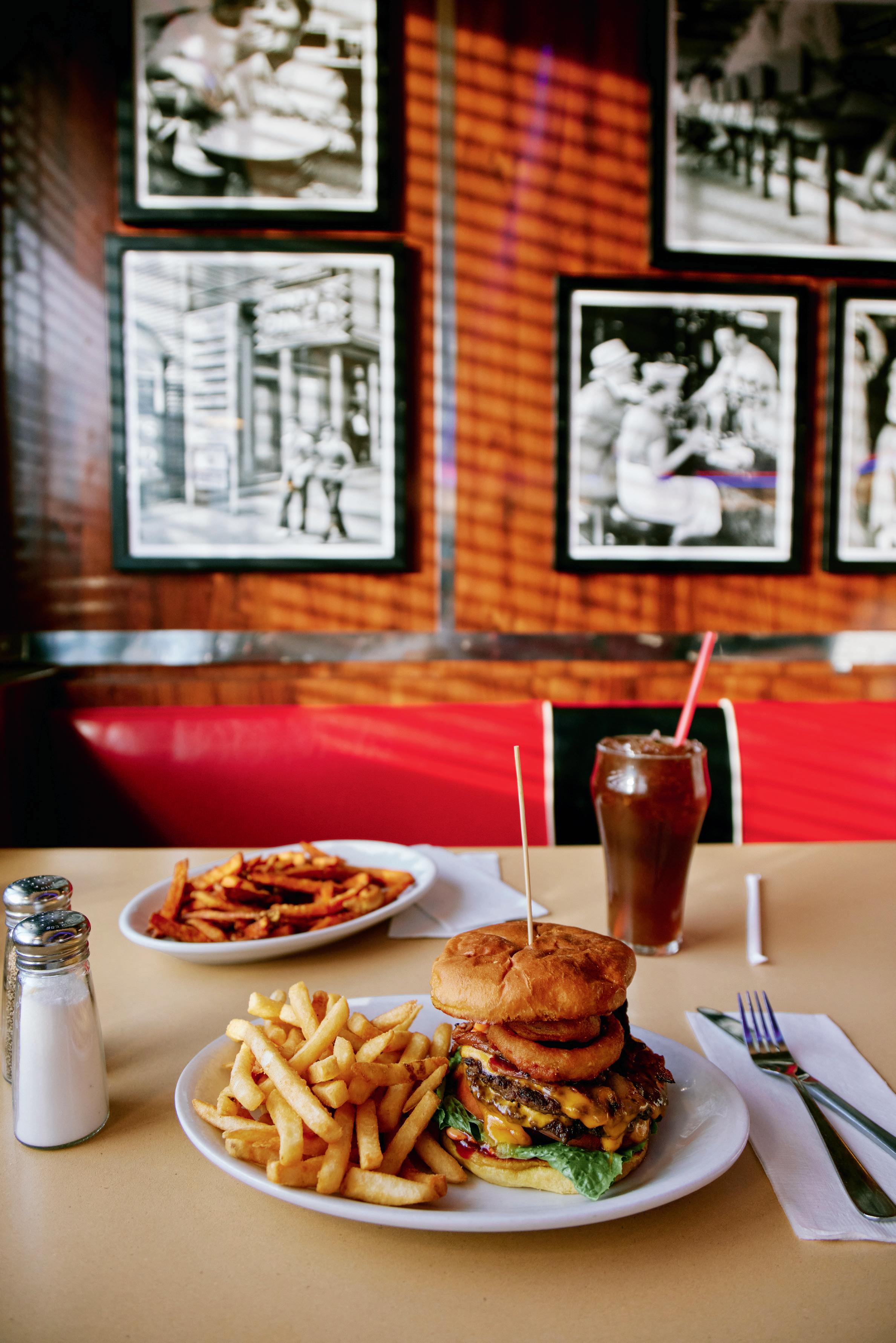
The dawn of the diner arrived in 1872 when Walter Scott, a pressman for the Providence Morning Star, cut windows in a small covered wagon and parked it in front of the newspaper’s offices to lure hungry reporters and printers on the night shift. He sat inside, selling sandwiches, coffee, and pies, and through this clever bit of entrepreneurship, the primordial diner was born.
It didn’t take long for Scott’s idea to catch on and evolve, and by the late 1880s a former lunch-counter boy named Thomas H. Buckley began manufacturing diner cars in Worcester, Massachusetts. Within a decade, the Worcester Lunch Car Company was producing gleaming dining cars in porcelain enamel, Formica, and stainless steel, many of which are still in use today. By 1957, the company had turned out more than 600 cars that eventually found homes all around the world.
For many family owners, these diners were an affordable gateway to restaurant entrepreneurship and the American Dream. One generation scrimped, griddled, and fried up an inheritance and passed it on to the next. Over time, they might add a bigger dining room off the back or just replace the old floor tiles. Or move the business entirely to a strip mall but keep the menu and the retro feel.
Others have taken the form and given it a more personalized spin. At Palace Diner in Biddeford, Maine, two chefs with classical training, Greg Mitchell and Chad Conley, became darlings of national media and the James Beard Foundation by serving thought-out, next-level takes on classic flapjacks and tuna salad sandwiches. At the A1 Diner in Gardiner, Maine, owner Aaron Harris added soba noodles and flatbreads to his menu. But these places never stray so far as to lose their sense of familiarity.
Most of us intuitively grasp the appeal of diners. It’s the constancy, the lack of pretense, the affordability, the comfort food. And often that comes in the form of a dining car with Formica counters, vinyl booths, and neon signs. But not all great diners are housed in lunch cars, and not all lunch car diners are great. We wanted to bring you 20 of our favorites, all places that are worth seeking out on your next drive. To compile this list, we looked for diners that make great food, of course, but we also wanted a bit of personality, a nod to yesteryear, efficient and friendly service, and hearty and well-priced portions. So find one near you, or make a special trip.
O’Rourke’s Diner, Middletown
Since 1941, this landmark diner has served a lineup of classics plus a signature Connecticut-style steamed burger. Not familiar with the latter? Also known as a steamer or “cheeseburg,” it’s a patty that’s steamed in a special stainless steel cabinet, making the buns softer and the meat even juicier than those of its griddle-cooked brethren. Crowds also flock here for Irish favorites, including a lovely soda bread that’s used in the stellar French toast (all baking is done in-house). Beyond the food, O’Rourke’s is worth a trip just to take in the distinctive Mountain View aluminum car. In 2006, the car su ered major damage from a fire that began in the burger steamer. Thanks to a community fund-raising campaign, O’Rourke’s reopened one year later. You’ll be grateful for those generous locals when you’re tucking into a Brian’s Breakfast, which is whatever unexpected feast the chef feels like making that morning, or the Irish Delight: corned beef hash with eggs, praete oaten (oat and potato cakes), and Irish brown bread. Breakfast and lunch only; orourkesmiddletown.com
The towering neon “EAT” sign rising above Zip’s Diner calls like a siren song to hungry travelers in Connecticut’s otherwise Quiet Corner. Inside the vintage O’Mahony diner car, the counter is lined with red vinylcovered stools, and each booth is graced with an old-school consolette jukebox. With unfailingly friendly service, Zip’s serves diner staples with a side of nostalgia: Yes, there are pancakes, omelets, and corned beef hash, but you’ll also find Yankee pot roast, chicken-fried steak, and baked puddings, as well as Italian-accented specials like osso bucco and chicken
A stainless-steeland-neon beacon of Americana, Zip’s Diner has been a favorite pit stop on Connecticut’s I-395 for nearly 70 years.
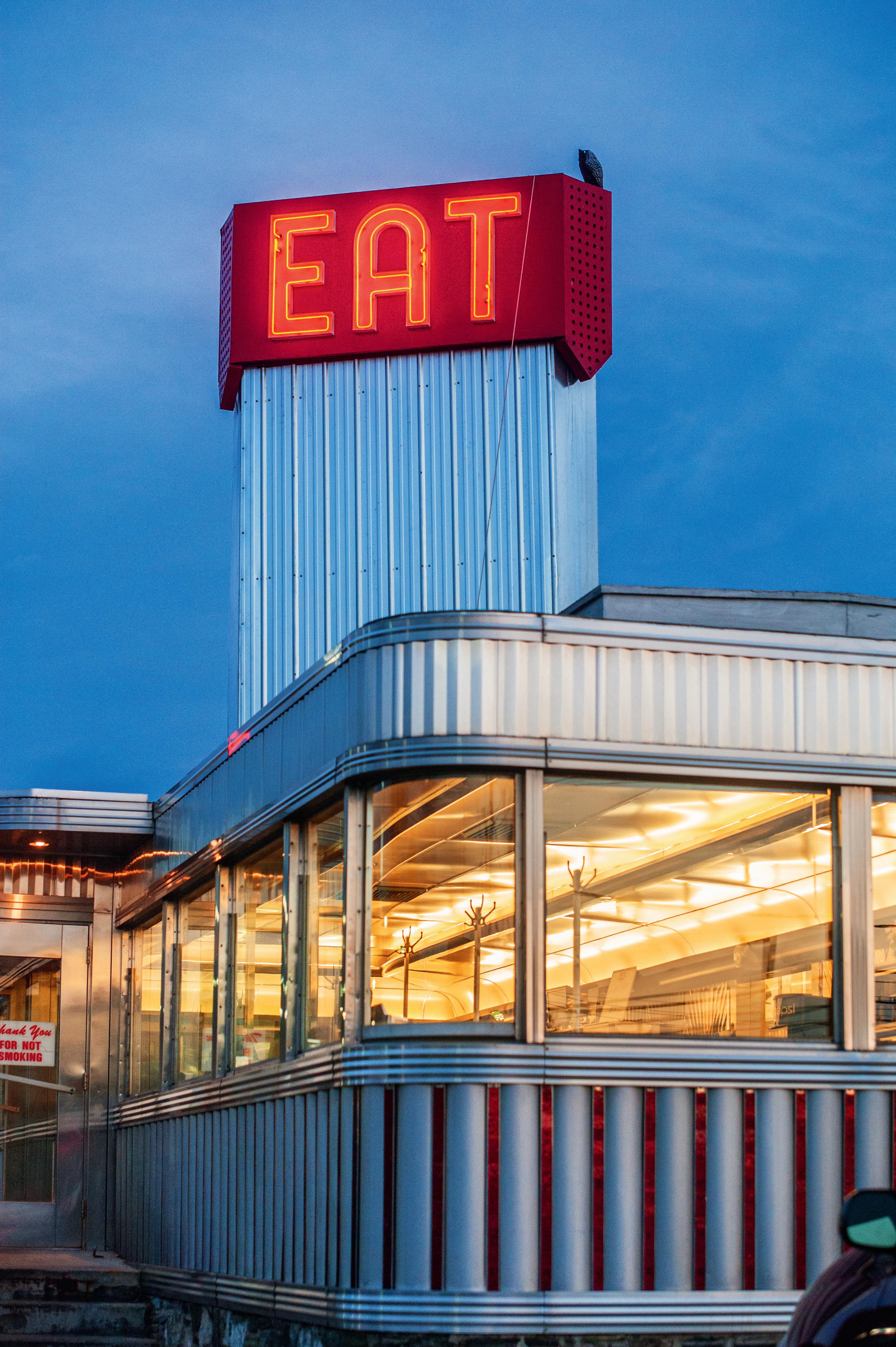
parm. Stephen King fans, take note: Zip’s was featured in his novel 11/22/63. Facebook
Uncle D’s, East Berlin
Hot-off-the-griddle comfort food is a point of pride for Uncle D’s owner Darren Anderson, who, after delivering bread to the 1960s-era diner for years, took over the business from the retiring owner in 2013. While set in an unassuming strip mall, Uncle D’s is pure retro charm within (think: vinyl booths, checkerboard floor, lots of chrome and stainless steel). This diner specializes in big, rib-sticking breakfasts and pancakes the size of hubcaps, but what draws locals is the Cadillac Taco: double layers of flour and corn tortillas with refried beans, meat, cheese, salsa, and sour cream that’s nearly big enough for two. While it might not clear the bar for authenticity, it’s

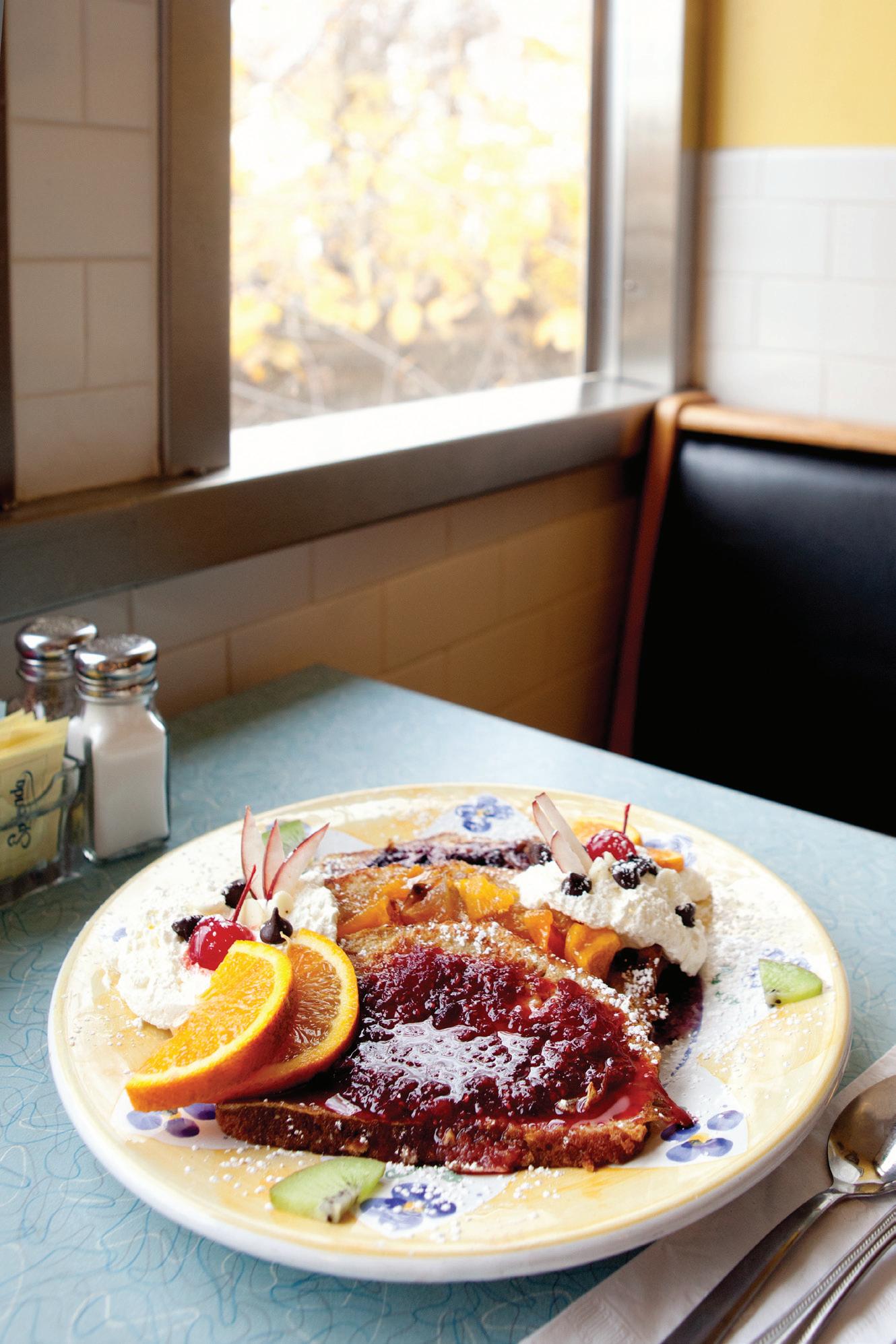
darned tasty. Breakfast and lunch only; uncleds-diner.com
Palace Diner, Biddeford
Where do we start with the famed Palace Diner, the top diner in New England and home to what is arguably the best tuna melt in the country? The 15-seat diner car was built in Lowell, Massachusetts, in 1927 and has lived in Biddeford its whole life. The current iteration was opened by Greg Mitchell and Chad Conley in 2014, and the duo have been serving diner classics, perfectly prepared, ever since. What shines here is the attention to every detail and a perfect balance in flavor and texture, as evidenced by that tuna melt, in which the crunch of iceberg lettuce is a welcome contrast to the buttery grilled challah and tuna
salad. Other highlights: French toast served with real maple syrup, and the ultra-crisp, ultra-juicy fried chicken. Breakfast and lunch only; palacedinerme.com
Moody’s, Waldoboro
An iconic stop on the way Down East since 1927, this cozy eatery run by five generations of the Moody family is beloved for its house-made pies (particularly the four-berry and the chocolate cream), Indian pudding, and doughnuts. But don’t stop at sweets:
left: Irish soda bread French toast with clotted cream at O’Rourke’s Diner in Connecticut. below: Palace Diner, whose 2014 reinvention helped fuel the Biddeford, Maine, dining renaissance. opposite: Watermelon gazpacho at the A1 Diner in Gardiner, Maine.
The clam chowder is excellent, as are the fresh crab rolls, once universal and now increasingly rare because the picking is so labor-intensive. Not a seafood lover? The Moody’s Reuben is made with sauerkraut from Morse’s, just down the road. Hardcore traditionalists might partake of the liver and onions washed down with a cold glass of Moxie. But Moody’s is about more than the food. If you want to go deep on Moody’s place in the Maine psyche, check out the book What’s Cooking at Moody’s Diner: 75 Years of Recipes and Remembrances. moodysdiner.com
For more than 70 years, this landmark red diner, a railcar in a past life, has been winning over

fans with flu y omelets, chicken and wa es, and lobster rolls. Walking inside is a step back in time, with a chrome-and-glittercovered Wurlitzer jukebox spinning Elvis Presley and Bobby Darin. Tuck yourself into a tiny booth or grab a stool at the counter, and note the student-friendly specials, like dollar wings and the Bowdoin Bowl (tater tots and Brussels sprouts with cheddar, bacon, poached eggs, and hollandaise). The cash-only spot has a well-earned reputation for great, locally sourced food at a good price. Breakfast and lunch only; brunswickdiner.com
A1 Diner, Gardiner
Even in a state known for its food scene, this 1940s Worcester Lunch
diner perched on stilts near the Kennebec river still comes as a gourmet surprise. Owner Aaron Harris—who has worked at the A1 since the early aughts and took over in 2018—never rests on his laurels. Yes, you can always get basics like red-eye hash and a tuna salad plate, but don’t sleep on the specials, including Maine crab Benedict, soba noodles, and a Reuben breakfast sandwich that got the attention of the Food Network. Facebook
break and ooze, turning a humble scratch. And while any good diner

at Miss Flo’s deserves particular
If you attended college in the Happy Valley, you probably have fond memories of hitting Miss Flo’s for a late, possibly bleary-eyed breakfast. Opened in 1941, it checks all the retro boxes, including the consolette jukeboxes. But the food is the real draw. Here you’ll find mainstays like the terrific banana bread French toast and homemade corned beef hash served with poached eggs that break and ooze, turning a humble dish into something luxurious. For lunch, there are piled-high New York–style deli sandwiches and a rotating menu of soups made from scratch. And while any good diner boasts friendly sta , the crew here at Miss Flo’s deserves particular praise. Breakfast and lunch only; imissflorencediner.com
Just down the road from UMass Amherst, this chrome-and-neon beauty beckons hungry wayfarers with a menu stocked with malted waffles, breakfast bowls, BLTs on sourdough, and a seriously fun menu of boozy and virgin shakes (as in, chocolate-cherry with a slice of pie on the rim). The Yee family, best known for Chicopee’s Hu Ke Lau and Springfield’s Student Prince, took over the diner in 2018 and have put the focus here on top-notch, fromscratch cooking. Breakfast and lunch only; johnnysroadside.com
When this historic diner in Davis Square was sold in 2014, it switched gears from familiar diner fare to a more chef-driven menu. But in this
case, change is good. Sip a killer cocktail, nibble on elevated favorites like truffle mac ’n’ cheese, or revel in the Korean barbecue sandwiches. While the old-school painted exterior remains, the inside has been turned into a cozy booth-filled space with loads of warm wood. Most important, the Rosebud has arguably the best boozy milkshakes in town (don’t miss the Fluff shake spiked with Evan Williams bourbon). rosebudkitchen.com
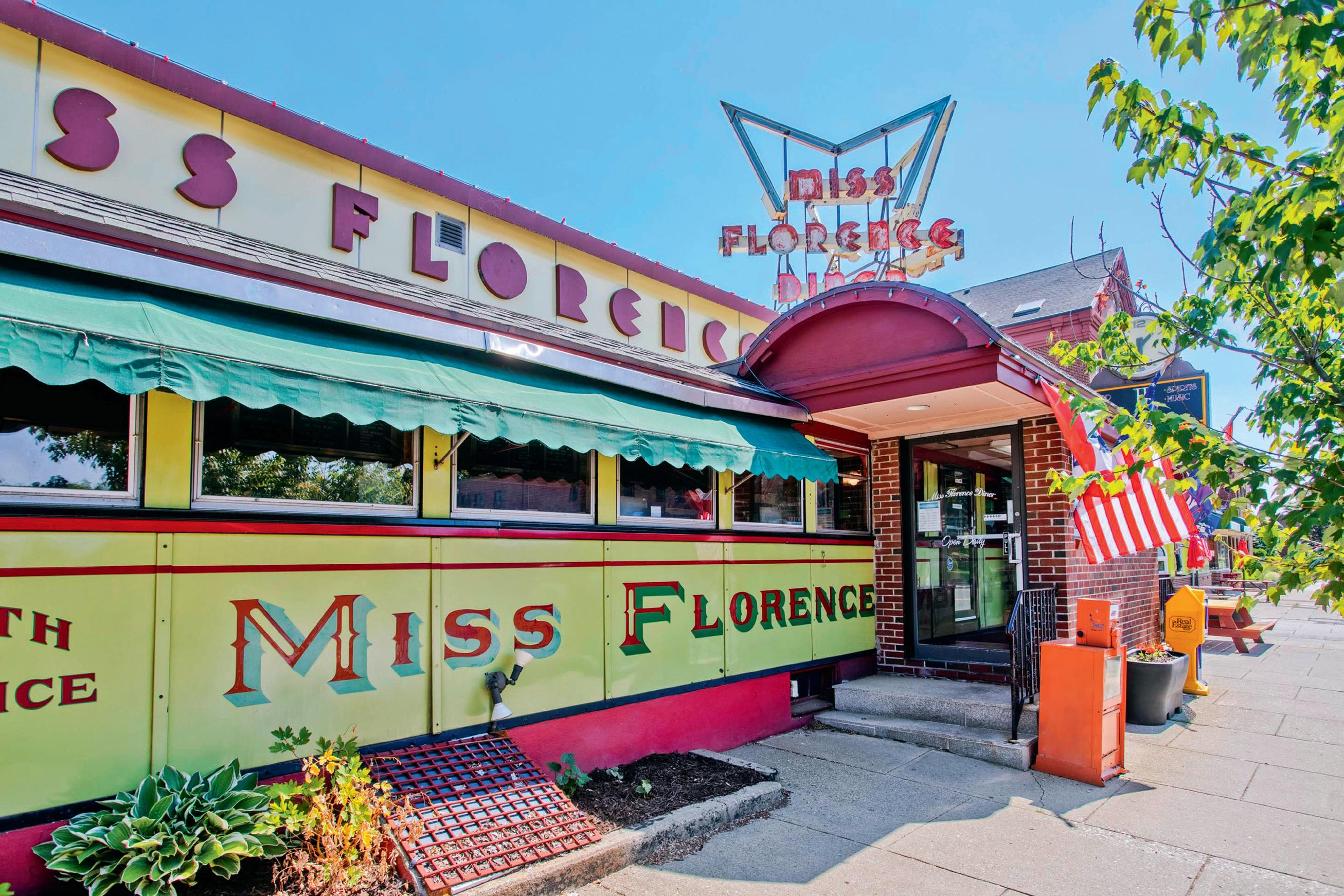
The Miss Worcester is a lot like its home city: unpretentious and a little gritty but warm, buzzing with energy, and food-forward. Here, the French toast menu alone lists two dozen options (including banana bread, apple pie, Boston cream pie, and the cornflake-crusted crunchy kind),
above: Miss Florence Diner, welcoming hungry crowds since 1941 in Florence, Massachusetts. right: Buttermilk pancakes dolled up with fresh fruit and Vermont maple syrup at Rosebud American Kitchen & Bar in Somerville, Massachusetts.
the corned beef hash and biscuits are homemade, and the home fries are perfectly seasoned. Walk in and marvel at the hundreds of stickers decorating the ceiling and walls—they were added during the pandemic, when the diner pivoted to take-outonly service and the booths felt empty and in need of some spiffing up. Even if it’s your first time there, the servers will call you “hon,” and that’s a nice feeling. Breakfast and lunch only; missworcesterdiner.com
The Galley Diner, South Boston Southie’s favorite diner may not look like much on the outside,
but inside you’ll find a welcoming atmosphere and quite possibly the best corned beef hash in the country. It’s also one of a handful of spots Anthony Bourdain visited for his No Reservations tour of South Boston. (He later tweeted of the hash, “Superb. Feel like the Hindenburg.”) A trip to the Galley is a taste of old Boston c. 1960, and current owner Paul Skudris wants to keep this 12-stool counter exactly as it’s always been. If you don’t want Bourdain’s favorite hash, try the meatloaf sandwich or turkey with all
the fixings. Breakfast and lunch only; thegalleydiner.com

Tilt’n Diner, Tilton
Open for breakfast, lunch, and dinner, the Tilt’n Diner is always hopp’n. Since 1992, it has been a stop for nearly every presidential hopeful, serving up hearty comfort classics in a retro setting so steeped in 1950s nostalgia that oldies play on every speaker. The all-day breakfast menu is just one section in a 100-item-plus lineup
that includes big melty sandwiches, ooey-gooey mac ’n’ cheese, turkey pot pie, and a chicken tenders platter that’s perfect for kids. Add on a fullservice bar—plus a Tootsie Roll with your check—and you’ve got a winning recipe. thecman.com/tilt-n-diner
A favorite no-frills refueling stop for New England road trippers, Gilley’s is a 1940 Worcester-built dining car that for years was towed by truck each day to its waiting customers in Market Square. Now permanently rooted on Fleet Street (and with its original truck as part of the setting), Gilley’s has no booths, just stools arranged in a U shape along the windows, but that doesn’t deter the patrons craving burgers covered in rich chili and hot dogs that Food & Wine recently tapped as the best in the state. Lunch, dinner, and late-night only; gilleysdiner.com
Littleton Diner, Littleton
Originally built in Merrimac, Massachusetts, the Littleton Diner opened in 1928 and was rehomed in a new Sterling Streamliner in 1940. The same structure stands today, serving New England classics cooked from scratch, using local ingredients whenever possible. The Williford family, who bought the diner in 2003, rightfully proud of their homemade hash, but they put extra care into all
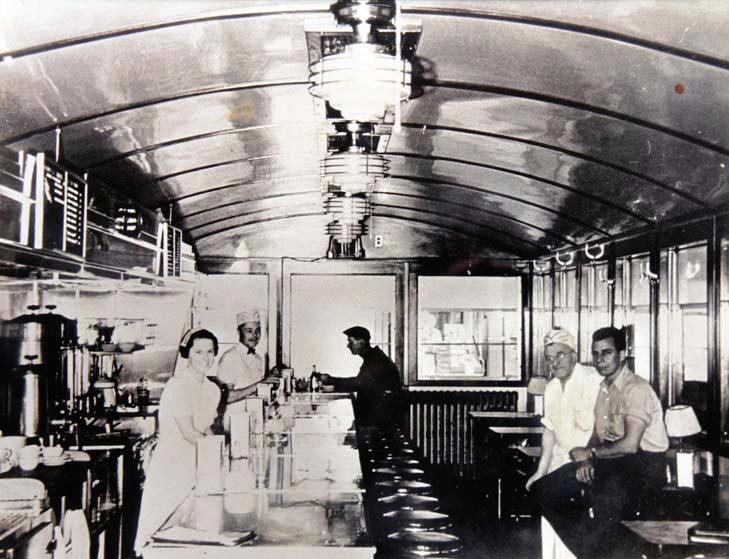
their food, making pancakes with flour from the nearby Littleton Grist Mill (they come in buckwheat, whole wheat, and buttermilk varieties), and the maple syrup is local and real. The pies, bread pudding, carrot cake, and apple crisp are all homemade, and in a nod to the past they even have franks and beans. But there’s novelty, too: The Irish Sandwich is a fun take on a Reuben, o ering corned beef, smoked gouda, and steamed cabbage on ciabatta. littletondiner.com
Modern Diner, Pawtucket
The first diner to make it onto the National Register of Historic Places, this Sterling Streamliner is an ideal
representation of the 1940s diner car. The chef-owned eatery is best known for Portuguese-inflected brunches, attracting diners from as far as Boston. Stop to read the long list of specials by the front door, but don’t miss the lobster and cheese grits studded with hunks of buttery meat (when the convivial server asks if you’d like to add Mozambique sauce, say yes to this garlicky umami bomb). And while the strawberry crepes are topnotch, we’re hard-pressed to pass up the linguica hash Benedict or the oatmeal brûlée. Breakfast and lunch only; moderndinerri.com
Jigger’s Diner, East Greenwich
The beautifully restored 1950s diner car welcomes patrons in with
a able servers, mugs of freshroasted co ee, and a fantastic Johnny Cake Combo (cornmeal pancakes with eggs and sausage). But don’t let that stop you from trying the impossibly flu y lemon ricotta–stu ed French toast with blueberry compote. The burgers and chowder don’t disappoint, and, because you’re in Rhode Island, you’ll need to order the co ee cabinet, made with ice cream, milk, and co ee syrup. Breakfast and lunch only; jiggersdiner.com
VERMONT
The Blue Benn, Bennington
This classic Silk City diner car from New Jersey’s Paterson Wagon Company was shipped and assembled on-site in 1948. With its bright blue awnings to shield waiting patrons from wet weather, it’s a charmer, but look beyond the iconic stylings (yes, there are little consolette jukeboxes) to the menu of breakfast burritos, flu y omelets, cornbread French toast, burgers, and hand-cut fries. Current owner John Getchell is a Bennington College grad who took over from the Monroe family, who ran it for 47 years, and he brings his wit to the letterboard sign out front with such quips as “Sometimes Bigfoot is confused with Sasquatch, Yeti never complains.” Breakfast and lunch only; bluebenn.com
Chelsea Royal Diner, Brattleboro
Local sourcing is a point of pride at this Vermont icon: The beef is all grass-fed, and owner Janet Picard sources some of her veggies and
THIS
gives




Benedict a spicy twist at Rhode Island’s Modern Diner. OPPOSITE,

eggs from her own garden. Housed in a 1938 Worcester Lunch Car diner, the Chelsea Royal specializes in homemade pies, house-smoked brisket, crabcake Benedict, and homemade ice cream (try the Vermont Maple Latte). Note: As of press time, the diner is listed for sale and awaiting its next steward. chelsearoyaldiner.com
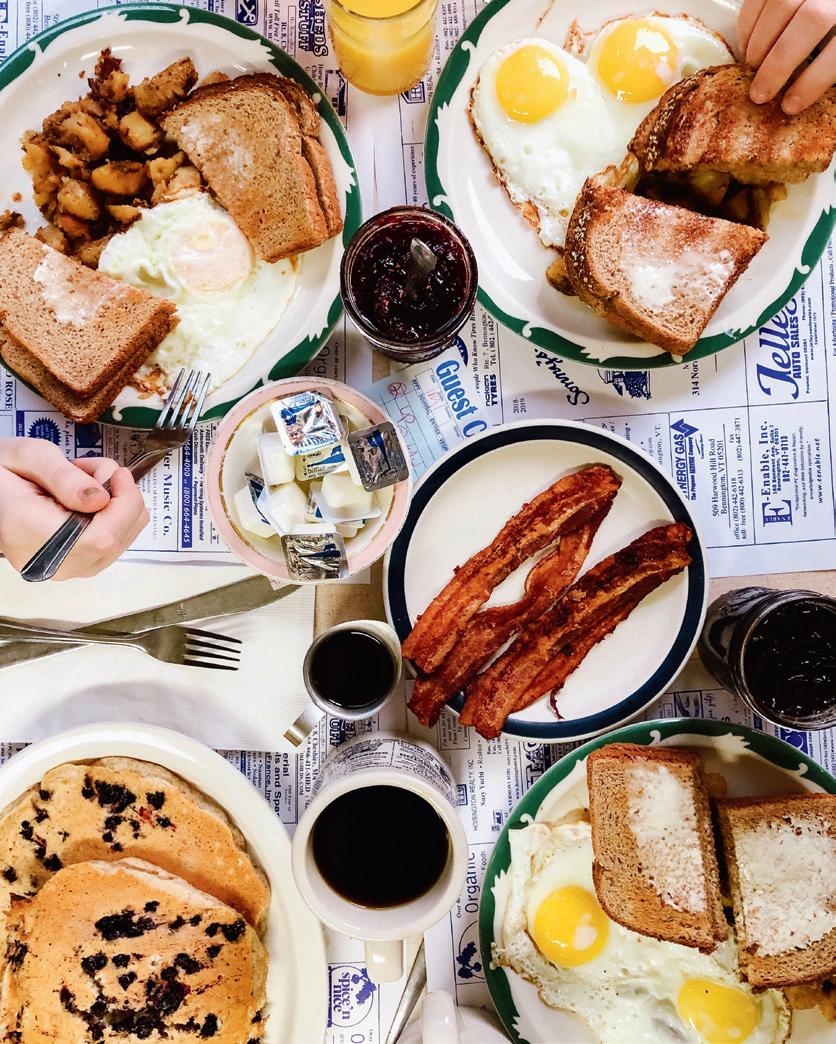
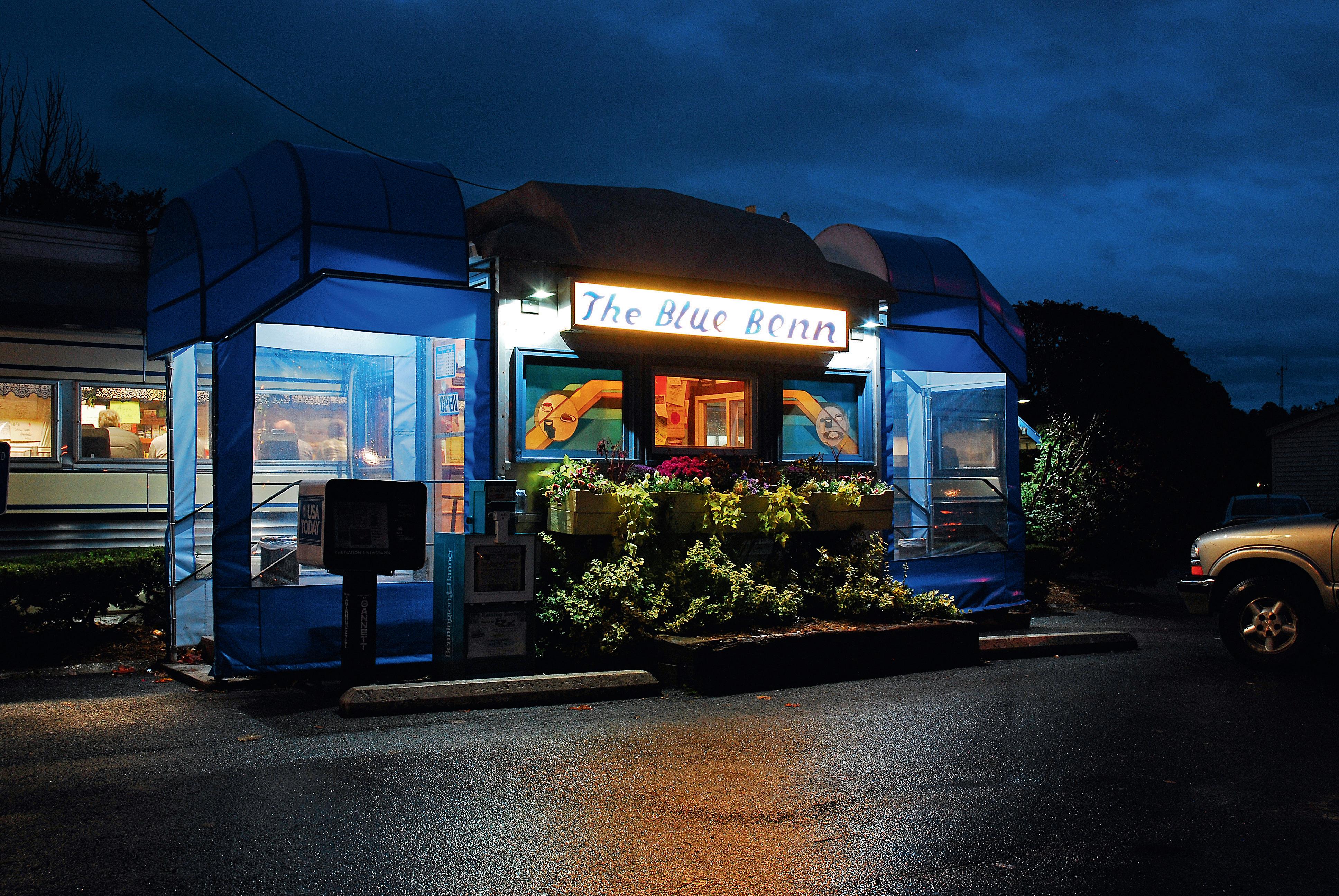
This 1944 Silk City Silver began its life in Jaffrey, New Hampshire, but settled down in Chester in 1966. And the menu hasn’t changed much
since, which we consider a very good thing. Don’t miss the patty melt (a burger with caramelized onions and Swiss on rye) or the Stowe Breakfast Sandwich (two eggs, cheddar, and bacon on a grilled, buttered bulkie roll). Pancakes are buttermilk and can be made with berries or chocolate chips, but note the savory cakes made with ham, scallions, and cheddar. Antique-car lovers gather here on Saturday nights in the summer for live music, snacks, and BYOB. Breakfast and lunch yearround, evening snack bar hours in summer; countrygirldiner.com
WOULD ARGUE THAT HOME PLATE AT FENWAY PARK IS THE spiritual center of New England, the place that resonates with an entire region more clearly than any other single spot. They don’t call it Red Sox Nation for nothing: Big Papi, Yaz, Ted Williams, all the way back to Cy Young. From that 17-inch square, April through (on a good year) October, this place connects us in secular communion 81 nights a year.
And if you’re willing to grant that small conceit, then stick with me for one more: If there’s a single voice that unites us, from some invisible line in Connecticut up to the Canadian border, from the shore of Lake Champlain to the beaches of Maine and New Hampshire, from the Greens and the Whites to the Berkshires and the Blue Hills, from the three-deckers of Southie to the potato fields of Aroostook, it’s the calm and gathered tone of one Joe Castiglione, for 40 years now the radio voice of the Red Sox. “Can you believe it?” he asks when something special happens—and yes we can, because Joe has told us so.
Joe Castiglione in the radio booth at Fenway Park. The veteran radio broadcaster turns 76 in March, and while he recently announced he would be cutting back his schedule to spend more time with his family, Sox fans can still look forward to hearing his distinctive voice narrate the drama of more than 80 games this season.

Here’s what it looks like in the radio booth at Fenway (a booth named for Castiglione, with a bronze plaque outside the door). Joe and his broadcast partners—almost always Will Flemming, sometimes Sean McDonough— are cantilevered out over home, staring almost straight down at the catcher and the batter. As the organized chaos of the ballpark proceeds around them (organ music, people proposing on camera, the wave), Joe leans against the wall of the broadcast booth, squinting out at the action below. “Slider away, that’s ball 1.”
His job—most of the time—is to impose a kind of calm on the proceedings, so that those of us listening at home can tune in hour after hour, night after night. It’s the opposite of almost everything else in our media life: not shrill, not loud, not angry, not contentious. Instead, a friend, measured and steady, the sound of spring and summer and autumn as
surely as the rising and falling whine of crickets or the play of the surf against the sands of the Cape. His pitch rises when a ball rises, headed for the top of the Green Monster, but most of the time it’s the opposite of drama—because how much tension can you maintain for three hours every night all summer? In a world gone bonkers, he’s the most reliable person in our public life, a representative of some slightly older order. It hurt to lose Mookie Betts; it’s impossible to imagine losing Joe Castig.
The game starts at 7:10 most weekday nights, but the workday starts about three hours earlier, when Joe arrives at the ballpark. He takes the elevator to level 5 and joins longtime producer Doug Lane in the booth, looking down at batting practice, where Joe carefully fills out his scorecard for the night, making notes about the players in

“In the Red Sox games, storytelling is the point. Joe brings an amazing warmth. In a divided world, you can really feel it.”
a tiny hand. “Some guys use a computer now, but I like it this way,” he says. He’s got highlighters close to hand, so he can mark homers in green and strikeouts in red. He donated the first 35 years of his scorecards to the New England Sports Museum; the rest are now piling up at home.
Then it’s down to the field, which at least until the gates open to the ticket-holding public at 5:30 is a world populated mostly by “baseball guys”—players, coaches, trainers, reporters, a fraternity that shuffles around the continent from one ballpark to another, dispersing in the off-season to Venezuela or Arizona or someplace else warm enough to keep playing ball, before gathering again for spring training. It’s a fraternity united by, among other things, the history that makes baseball so distinctive, the fact that the game has been played for a century and a half, its records meticulously kept for the obscure as well as the legendary.
Joe begins in the dugout, walking down the wooden steps splintered by the spikes of players, and settling in on the bench to interview Andy Fox, the team’s new “field coordinator.” But not, of course, new to baseball—he’s been a coach in the Red Sox system for a decade, and before that a player with the Yanks, the Marlins, the Expos, the Rangers, and the Diamondbacks, where he set his one real mark of distinction, the team’s single-season record for being hit by pitches. The defini-
tion of a journey man career, in other words, but for Joe—whose baseball memory is almost absurdly encyclopedic—it’s as full of interest as if Fox had been Ty Cobb. He whips out his iPhone, turns on the recorder, and they talk about Fox’s rookie season in New York, where the other newbie was one Derek Jeter, and about the two World Series rings he won, and about the small changes coming to baseball next year (the bases will be three inches larger, but “they call it a game of inches,” as Joe points out), and about the next generation: Fox’s son is a first baseman in high school.
“Does he have some pop in the bat?” Joe asks.
“More than I did,” says Fox.
As if on cue, the next generation of Red Sox sluggers wanders into the dugout: Triston Casas, a recent call-up from the minors, who the night before had hit his first Fenway home run, a towering drive that smashed into the DraftKings sign above center field. Casas is a giant, but a friendly one—he nods along as Joe recounts how hard-hitting Blue Jays shortstop Bo Bichette clobbered a ball over the sign that landed on the doorstep of a health club that also happened to be the place where Bichette’s parents had met. Casas points out his own dad, Jose, standing on the dirt by the on-deck circle, so Joe ambles over for a conversation with him and Casas’s grandmother—his abuela— and soon discovers that indeed the son is a student of the game.

“When he was 2 he was watching a game one day, and I could tell that he was watching it, not just seeing it,” Jose says. “He had the mental capacity at 3, 4, 5 to sit and watch, to get inside the players’ heads and figure out why they were doing what they were doing.” On bus trips in the minors, he says, his son would study old World Series games on his computer.
“I love that,” Joe says. “That’s what separates good players from great ones.”
If there’s a mayor of this traveling city that is baseball, it might well be Peter Gammons, the longtime (he went to work in the summer of 1968) Globe sportswriter famous for his weekly compendiums of baseball notes. He’s standing behind the batting cage gathering fodder for his next column, so I walk over to ask about Joe.
“He’s one of the most joyous people I’ve ever encountered,” Gammons says. “And he has to be, when he’s working every single game. He’s

the ultimate professional—you can tell because when he does those commercials for Shaw’s supermarket and he’s talking about fruit, he does it well. He doesn’t grouse about having to talk about vegetables, because it’s part of the job. He’s a pure baseball guy.”
That “pure baseball guy” thing is almost comically accurate. We head back up to the booth, and through its side window we can see the Yankees broadcast team doing their prep work. “That’s David Cone,” says Joe, waving through the window. “His ex-mother-in-law was my high school biology teacher. She was very tough.” (Castiglione grew up in Hamden, Connecticut, near enough to the Big Apple that he was a fan of the Bronx Bombers as a boy.) Next to Cone is his broadcast partner, John Flaherty. “He caught for several teams, including the Sox,” says Joe. “We traded him. Big mistake. He came back and broke up Pedro Martinez’s no-hitter in 2000. He’s a great guy, his daughter is at Northeastern.” And so on.
An hour before the first pitch, we wander into the small dining room that the Red Sox run for reporters, just feet behind the radio booth, and take over a small table. Over lobster mac and cheese, Joe talks about his favorite ballparks (“Yankee Stadium is always special, even the new one; Baltimore’s great; Seattle is a beautiful park”), and about learning to call games as an undergraduate at Colgate, and the time die-hard Sox fan Stephen King put him in a book (The Girl Who Loved Tom Gordon), and how at this point he can tell without even looking at the clock that it’s closing in on 7 and the national anthem.
Before it gets too close to game time, I move a few seats over to talk to Flemming, who was the broadcaster for the Sox Triple-A affiliate in Pawtucket (now Worcester) before getting the call-up to the bigs in 2019. “Joe doesn’t just know everyone at the ballpark,” he says. “He knows everyone at the hotel, everyone in the coffee shop, he knows the guy who rents the kayaks. And he shows it all to me. The baseball lifestyle is rough—I’ve got two young kids and a wife, so being on the road is…. But to have a true friend out there with you, it goes a long way towards making that road lifestyle an enriching experience.”
In the past few weeks, as the Sox wandered the country, Joe had taken him to the Negro
League Hall of Fame in Kansas City, the Roberto Clemente Museum in Pittsburgh, and the Babe Ruth Museum in Baltimore— indeed, they’d gone on to the site of St. Mary’s Industrial School, where Ruth had spent his adolescence playing ball. “Joe seeks out new information even after 40 years. Every day is exciting and new to him; he’s always reading, researching, talking,” Flemming says. “So every night I take it as my job to, two or three times, lead him into some episode in Red Sox history, whether it’s about the most famous or the most obscure, and then to get out of the way. For great Red Sox fans listening to our broadcast, that stuff is ambrosia.”
Flemming does college basketball broadcasts on TV in the winter. “It couldn’t be more different. You’re just captioning the pictures,” he says. “In the Red Sox games, storytelling is the point. Joe brings an amazing warmth. In a divided world, you can really feel it.”
The baseball world is divided, too, of course, as anyone who’s ever listened to Fenway heartily chanting “Yankees suck!” can attest. But

Joe carefully fills out his scorecard for the night, making notes about the players in a tiny hand. “Some guys use a computer now, but I like it this way,” he says.
“When you’re broadcasting, you never expect to be anywhere more than three years, let alone 40,” Joe said on NESN last summer, when the Fenway radio booth was officially renamed in his honor.

truth be told, there’s very little tension tonight as the Red Sox take the field behind rookie right-hander Brayan Bello. It’s been a mediocre season for the Boston nine, who have been plagued by injury, and now halfway into September they’re hovering below .500, any hope of making the playoffs long since abandoned. But at five past the hour, as the commercial for Safelite AutoGlass ends, Joe is at the mic.
“Good evening, everyone, and welcome to Fenway Park, for the final Fenway appearance this year of the Yanks. All eyes will be on Aaron Judge tonight, with the Yankee slugger sitting on 57 home runs with 19 more games to go to break Roger Maris’s single-season Yankee record.”
But Judge, up first in the lineup, grounds out while the crowd is still filing in, and it sets the tone for the evening—a really bad ballgame. The Red Sox make errors on the basepaths and on the field (the center fielder, a recently arrived fill-in at the end of his career, manages to drop two balls in a row), and the heart of their lineup (Xander Bogaerts, Rafael Devers,
J.D. Martinez) strikes out again and again, Bogaerts dropping out of the top of the Ameri can League batting race. Still, it’s a lovely latesummer evening, and the scene at the park goes happily on—a woman tearfully accepts a wedding proposal on the jumbotron, and in the booth they find something to talk about. Bello, the rookie pitcher, looks sharp in spots; he’s begun his career with 39 innings where he hasn’t given up a homer, the best for the Red Sox since one Luis Aponte, another Red Sox right-hander who compiled a 9-6 career record back in the ’70s and ’80s. “I’ll never forget a homer he hit to win a game,” says Joe, who apparently never forgets anything.
Over the three-plus hours that the game stretches on, Joe finds time to riff on Judge’s chances to win Most Valuable Player (almost a lock, especially since his team will win the division, though “of course Ernie Banks won two straight MVPs for a Cubs team that was one of baseball’s worst”), and to remind us that Shaw’s is selling 80 percent lean ground beef for $2.77 a pound, and that former Brooklyn Dodgers GM Branch Rickey was known as El Cheapo to his players, and that the atten dance tonight is 36,581, and that Houston is the team to beat for the World Series this year. At one point, on his way to the men’s room in between innings, he looks up at me and says, “In a season like this, all you can do is look for individual performances, and hope for good games. And this is not a good game.”
But it is a game, and Joe’s a professional to the final pitch. A professional, and also an amateur—still intrigued by the possibilities of this most complex of games. I try to do some statistical calculating of my own: 40 years times 162 games times three hours, plus spring training and some deep playoff runs, equals something like 19,440 hours of broadcasting. At an average 292 pitches a game, that’s closing in on 2 million times that he’s watched a slider or a hook or a heater come to the plate, and somehow his enthusiasm has not wavered. He’s not cynical or bored or resentful of the millionaires making errors on the field below; he’s clearly happy to be sitting precisely where he sits, at the center of an entire region. Now he’s telling the fans about his talk before the game with Triston Casas’s doting father. “He says his son is a real student of baseball history,” says Joe. “That will take him a long way.”
two out in the bottom of the sixth, the Red Sox are in the lead three to nothing as Wade Boggs steps to the plate.’ … Every Sunday I went to work with my dad. … I was the official pitch counter of Red Sox radio, or so I was told. I had my own little clicker and kept track of every pitch that was thrown for my dad. … I get to go away with him a lot, but there are times when I really miss him and there are times when he can’t be there for me, and it definitely hurts both of us. But it has made me appreciate the time that I do spend with him so much more.”
—From a high school essay by Kate Castiglione, reprinted in Can You Believe It?: 30 Years of Insider Stories with the Boston Red Sox by Joe Castiglione (Triumph Books, 2012)
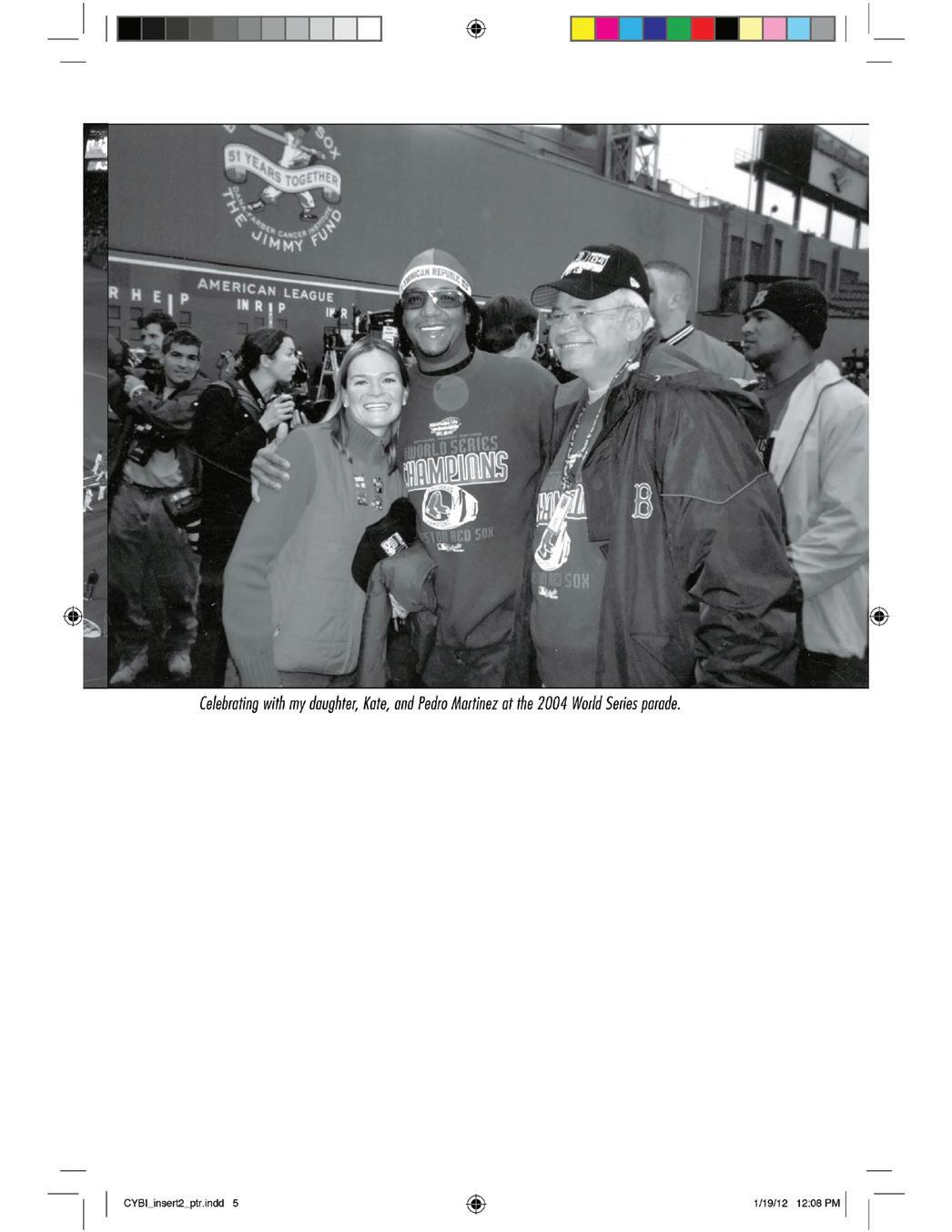
A polluted Androscoggin was once the price to keep Maine mills humming.


 BY CINDY ANDERSON
BY CINDY ANDERSON
JUNE IN WESTERN MAINE, ONE OF THE first warm weekends. Driving upriver to visit friends, I see people along the banks, in kayaks, with fishing rods on ledges. Eventually I reach a town where the river pools beneath a falls. Three girls wade, deeper and deeper until one of them ducks under. She comes up laughing. My wonder at all this joy on the river gives way to another feeling: fear.
A man who might be the girl’s father claps. You did it, first swim of the year! But I’m thinking, These kids are in peril
The girls splash each other, squealing—and I remember the pipes that dumped waste nearby, drifts of chemical foam, the sulfur smell of the mill. Also the fish that washed up dead—though after a while there weren’t any because the water had no oxygen, so there were no fish left to die.
Fifty years ago my sister and I grew up in a house beside this river. For us, it was a forbidden place. Kids know by instinct which rules to challenge and which not to, and stay-away-from-the-river was inviolable, more so even than the rules involving matches, guns, or strangers. To swim in it? Unthinkable.
In a different life the river had been called Amasaquanteg—Abenaki for “fish coming in the spring.” Indigenous people lived near it for more than a thousand years. They paddled downstream in summer to reach coastal camps and walked up the ice in winter to hunting grounds. The river
June 1973,
part
EPA


itself flowed from the hills of New Hampshire, gathering and spreading until after nearly 200 miles the Atlantic tugged it in.
By the time my sister and I were growing up, the river— known now as the Androscoggin—had been misused by industry for a century and was notorious as one of the most polluted waterways in the U.S. Our family lived midway on its course, in one of six mill towns.

From our upstairs windows the river looked OK, carving a wide arc and reflecting the sky at sunset. But thick brush grew on both banks, with few openings onto yards and fields—a barrier that had been left intact for years.
Things were bad if you did get close, especially downtown, where discharge from the mill poured in and bubbled up. Chemical waste and sewage formed into cakes. “Floaters,” people called them. Sometimes the floaters stuck together in rafts the current carried downstream.
THESE WERE THE MIXED-UP EARLY ’70 s , an unbridled time even for a quiet family like mine. My mom had stopped dressing like Jackie O and sometimes wore bell bottoms. My dad got a used VW bus and let a
neighbor drive our ancient Dodge in the demolition derby at the nearby speedway.
In our town of 10,000 people, the mill was the heart. It ran round the clock in three shifts—a ceaseless mechanical thump and grind—producing papers that included the high-gloss used by fancy magazines. Most of my friends’ fathers were papermakers; their wages meant snowmobiles and cottages on ponds, as well as orthodonture and college for the kids, who were well prepared because mill taxes paid for good schools and sports programs.
That rotten-egg smell? That was the smell of money. And someone had thought up a bumper sticker that read If you’re against logging, try wiping your a** with plastic.
This was a proud, headstrong part of Maine. The Androscoggin was one of its casualties and had been ever since the first industrialists arrived in the 1880s and began to dam and canal the river, to make it do their bidding. Over the years, expressions of upset or shame over what had happened in the valley were dismissed as softness, an inability to reconcile sentiment with progress.
In that context, the river was cast as yielding yet fierce. You heard something in a woman’s voice when she talked about the river running orange or blue a couple of towns downriver depending on the dye used that day at a factory near her house. You heard it when people talked about mist from the Androscoggin peeling paint off houses—something like awe or even collective bravado. Look how much we and our town and our river can take!
But there were mourners. My father, who had a deep heart for the natural world, had watched for decades as the river struggled, and it made him sad. The two of us occasionally canoe-raced on a feeder river that ran clear until it flowed into the Androscoggin. Even there, upstream of the worst, it had a chemical murk. Paddling the end of that race was the one exception to stay-away-from-the-river—and it always got my dad talking. I remember him using the word travesty. One day after a race he said what a pretty river it was, even though dirty, and then, “You wonder if it feels.”
For a middle school project, two friends and I borrowed my mom’s Super 8 and made a movie about pollution: land, air, and water. For land, we filmed garbage heaped high at the dump and refuse tossed into bushes near the Dairy Queen. For air, we shot the mill stacks. For water, we found an outflow pipe from which foul liquid poured. This is so disgusting, one of my friends said, and my dad nodded. Yes it is.
The Androscoggin ran alongside the road we drove to get to school, to the grocery store, to band concerts and track practice. It was everywhere, really, including 80 miles downstream where it flowed into a bay called Merrymeeting and then into the Atlantic. There, the foam that washed in and scalloped the beach where my family camped each August was a yellowish brown. It may have been the same stuff we saw at home, but it looked less sinister at the ocean’s
edge. My sister and I played tag in it, and sometimes my grandmother took off her shoes and ran with us.
THE ANDROSCOGGIN WASN’T
In Cleveland, the Cuyahoga kept catching fire, while elsewhere waterways were being destroyed by PCBs and toxic mining runoff. All across America, rivers were dying. Finally, at the eleventh hour, Maine Senator Edmund Muskie— who also had grown up on the Androscoggin—sponsored a national bill. The Clean Water Act passed in 1972, the same year Watergate broke and the Dow Jones topped 1,000.
Fifty years later, much has changed and much has not. As far as the nation’s rivers go, the Clean Water Act did reduce the volume of toxins pouring into waterways.
The Androscoggin has come a long way in recovering. Along with the legislation, its own staunch nature played a part. Year by year it washed away residue and laid a new bed. Eventually salmon and trout began to run again. Every spring at ice-out, the water looks clearer than it did the year before. And yes, people swim in it now.
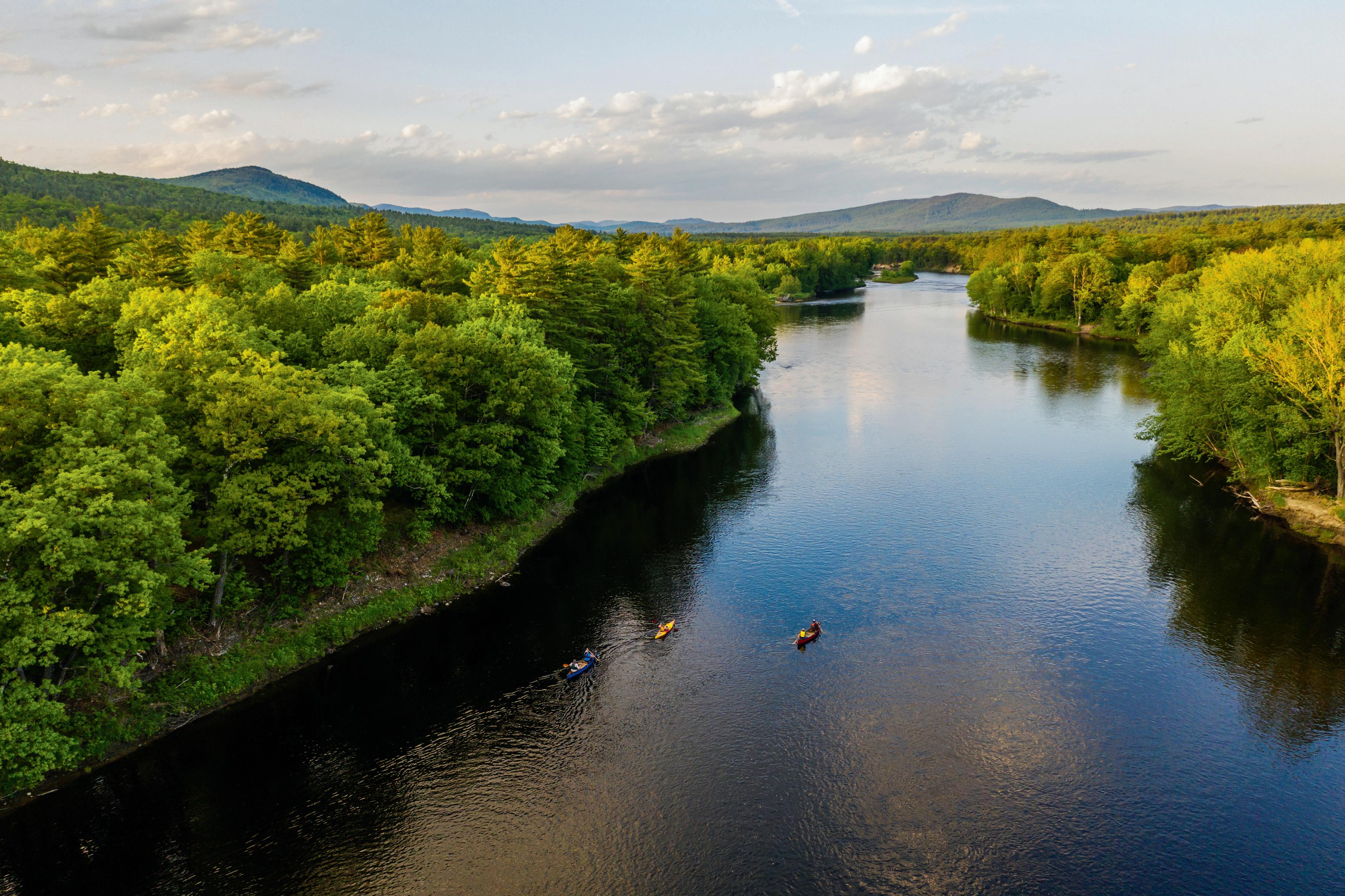
Yet two generations who lived along the river remember how it was—perhaps reflexively, or perhaps because we must, to prevent what happened from happening again.
We reconcile loyalties. I love the Androscoggin for its fortitude—and the town, in spite of what it did to the river, because it was home. One summer during college I worked in the mill as a pipe fitter’s helper; I earned enough to pay for books, clothes, and food for the coming school year. My parents were divorcing, my boyfriend had dumped me, but the mill was there and the river was there—and sometimes at night after work I walked out onto the bridge and listened to the falls.
In recent years I’ve canoed the Androscoggin often. I paddle mostly in the turning seasons, with geese honking overhead and warblers in the brush. Out on the water I see others—kayakers and paddleboarders, people fishing from small boats and shore, more people every year. I wish my dad were still alive to see it too.
Darkness remains, surely, in the ground beneath the river, in its banks, the stones and silt, in whatever eco-
Though parts of the river still do not meet Clean Water Act standards, the Androscoggin and its supporters have battled back from the dark days of the ’60s and ’70s, when it was designated one of the 10 most polluted rivers in the country. In this 2020 photo, paddlers glide down the Androscoggin near West Bethel.

sentience the Androscoggin carries. The fish aren’t what they were when the Wabenaki caught and smoked them. These fish contain toxins; signs warn people to limit their consumption. Less measurably: When I paddle the river now, along with quietude I sense a certain heaviness.
The Androscoggin is in me. It’s in the girls who swam that day beneath the falls and in the people fishing, in anyone who has lived near its banks. We hold the shame unexpressed for so long by so many about what happened to it. We carry the river’s beauty, and likely the residue of contaminants. The fear. Those swimming girls: What felt like their peril was my peril, was all of our peril that such a thing could ever have occurred.
And what of the river—does it remember?
And if it remembers, does it forgive?
I love the Androscoggin for its fortitude — and the town, in spite of what it did to the river, because it was home.
Maximum’s fine weather instruments enable weather watchers to access reliable, real-time weather data including temperature, wind speed, humidity, barometric pressure, rainfall and more in order to accurately measure conditions and anticipate what might be coming. (Before they get going.) Each unit is meticulously hand crafted in the USA for enduring quality. Many are Wi-Fi compatible. Shop now.





are handmade using the finest quality ingredients,and are fully cooked before packaging. One dozen delicious pierogi are nestled in a tray, making a one pound package of pure enjoyment!



are HANDMADE using the finest quality ingredients, and are fully cooked before packaging. One dozen delicious pierogi are nestled in a tray, making a one pound package of pure enjoyment!
You can get Millie’s Pierogi with these popular fillings:• Cabbage • Potato & Cheese
• Farmer’s Cheese • Blueberry • Prune
• Potato & Cheese with Kielbasa • Potato & Onion
Turns any day into an occasion – order today! Box of 6 trays-$42 • Box of 10 trays-$63 Polish Picnic-$43.50 • Polish Party Pack-$66 Kapusta & 5 trays–$45.50 • Plus Shipping

Box of 6 trays-$50 • Box of 10 trays-$75
Polish Picnic-$50 • Polish Party Pack-$75 Kapusta & 5 trays–$53 Plus Shipping 129

Call toll free or visit our web site: 1-800-743-7641

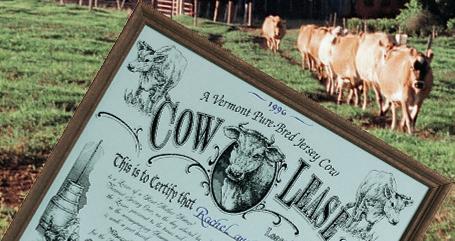


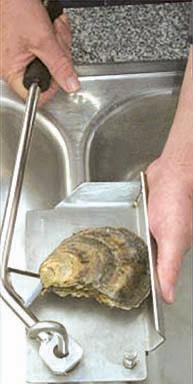




www.milliespierogi.com www.milliespierogi.com








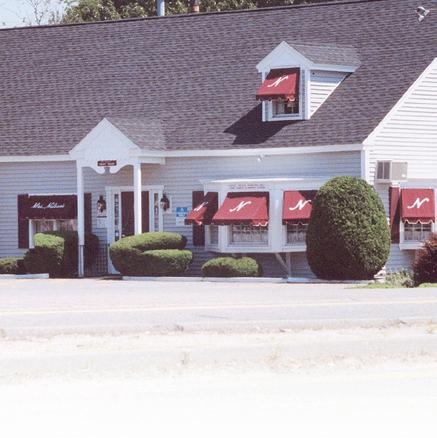

















(Continued from p. 48)
½ pound smoked bluefish, trout, or salmon



²⁄ 3 cup crème fraîche
Zest of 1 small lemon
Zest of ½ orange

1 medium shallot, minced
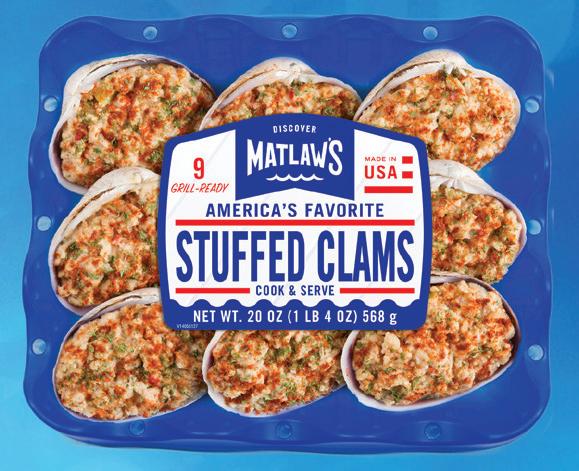
1½ cups all-purpose flour
¾ cup cornmeal
3½ tablespoons granulated sugar
2 teaspoons kosher salt
½ teaspoon baking soda
¼ teaspoon black pepper
1¾ cups buttermilk
3 tablespoons canola oil

1 large egg
Butter, for cooking johnnycakes
Minced chives, for garnish
First, make the pâté: In a medium bowl, use two forks to finely shred the
smoked fish. Add the crème fraîche, citrus zests, and shallot and stir until evenly combined. Cover and refrigerate until ready to use.
Now, make the johnnycakes: In a large bowl, whisk together the dry ingredients. In a small bowl, whisk together the buttermilk, oil, and egg. Add the wet ingredients to the dry and stir just until evenly combined.
Melt some butter in a large skillet (preferably nonstick) over medium heat and use a large soup spoon to drop circles of batter about 2 inches wide. Cook until the pancakes begin to bubble on top and are browned on one side, then flip and cook another minute. Transfer the pancakes to a platter and keep warm while you cook the remaining pancakes.
To serve, top each pancake with a dollop of the pâté. Sprinkle with chives and serve. Yields 6 to 8 servings.
Like German schnitzel, Japanese katsu
are breaded cutlets. However, these are coated with panko bread crumbs, which lend an incomparable crunch. Don’t let the long-ish list of ingredients intimidate you: This dish is very easy, and fast enough to make on a weeknight. Chef Jared Forman of Deadhorse Hill in Worcester, Massachusetts, served the cutlets with a simple, flavor-packed curried squash sauce whose richness was punctuated with vinegar from American Vinegar Works, an awardwinning shop run by Rodrigo Vargas just across town. To make the pretty scallion garnish pictured on p. 49, slice the green parts very thinly, then plunge into ice water until they curl.
¾ pound kabocha or honeynut squash, not peeled, halved lengthwise and seeded
1 tablespoon plus 2 tablespoons vegetable oil
2 teaspoons plus 2 teaspoons kosher salt
2–3 tablespoons cider vinegar
1 tablespoon curry powder ¾–1½ cups water
Cooked rice or mashed potatoes, for serving Sliced scallions, for garnish


2 pounds boneless pork loin, cut crosswise into 6 equal portions
2 teaspoons kosher salt
¹⁄ 3 cup all-purpose flour
1 large egg
2 tablespoons water
2 cups panko bread crumbs
2 cups vegetable oil, plus more as needed
Preheat oven to 400°F and line a rimmed baking sheet with parchment paper or foil. Rub the cut side of the squash with 1 tablespoon oil and sprinkle with 2 teaspoons salt. Set squash, cut side down, on the prepared baking sheet and bake until tender, about 40 minutes, then remove from oven, peel, and set aside.
Now, prepare the pork: Pound each cutlet out to a ¼-inch thickness.

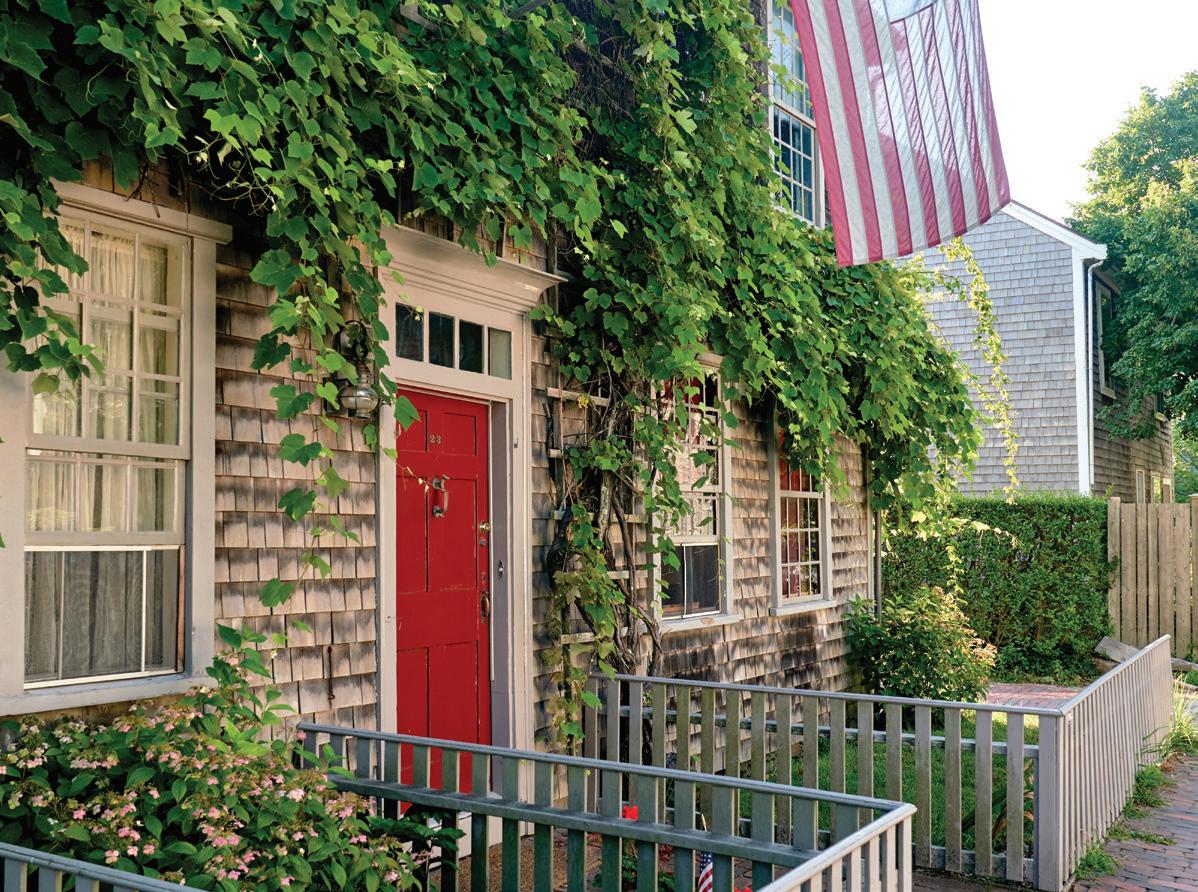



Use 2 teaspoons salt to evenly salt the cutlets on both sides.
Put the flour in one shallow bowl. Put the egg and water in a second shallow bowl and whisk together. Finally, put the bread crumbs in a third bowl. Bread each cutlet by coating both sides with flour, then the egg wash, then the bread crumbs. Firmly press the bread crumbs into the cutlets to coat as well as possible. Arrange the breaded cutlets on a baking sheet.
Set a wire rack over a rimmed baking sheet and put in the oven, which will still be warm from roasting the squash.
Pour the oil into a large skillet over medium-high heat and bring the temperature to about 350°F. (While you’re frying, adjust the heat as needed to roughly maintain this temperature.) Fry the cutlets one at a time, until nicely browned on both sides, 2 to 3 minutes per side. Keep the finished cutlets warm on the wire rack in the oven.
Next, make the sauce: In a blender, puree the roasted squash, 2 tablespoons oil, 2 tablespoons vinegar, curry powder, and 3/4 cup water. Blend until very smooth, adding more water as needed to achieve a pourable texture. Taste the sauce and add vinegar and salt as needed.
To serve, slice the cutlets into strips and lay over rice or mashed potatoes. Spoon the sauce over all, then top with sliced scallions. Yields 6 servings .

The currant-studded cinnamon buns known as Chelsea buns are an 18thcentury recipe whose origin is said to trace back to a London bakery called the Chelsea Bun House. I got to bake them at Strawbery Banke in Portsmouth, where interpreters Lynne Putney and Nancy Watson fired up the hearth in the Revolutionary War–era Wheelwright House and showed me how 18th-century bakers baked, stewed, and roasted over live fire. The recipe we used came from Historic Williamsburg’s online recipe database— a great source if you’re interested in early American cooking. Note that these buns look especially pretty because they’re layered with filling, folded, rolled out, then layered again, a technique you could also apply to regular cinnamon buns.
8 tablespoons (1 stick) unsalted butter, softened
6 cups all-purpose flour, plus more for dusting
3 large eggs
1¼ cups milk
2 packages (11/2 tablespoons) instant yeast
1 tablespoon kosher salt
1 tablespoon granulated sugar
4 tablespoons plus 4 tablespoons salted butter, softened
¾ cup dried currants (for added flavor, plump them in brandy before using), divided
²⁄ 3 cup firmly packed light brown sugar, divided
2 teaspoons ground cinnamon, divided
1 cup granulated sugar
½ cup milk
In a large bowl, use your fingers to work the butter into the flour until the mixture looks like wet sand. In a medium bowl, beat the eggs until frothy. Add the milk, yeast, salt, and sugar. Whisk until evenly combined.
Pour the egg mixture into the flour mixture and stir with a spoon until it all comes together. On a lightly floured surface, knead the dough until
it is smooth and no longer sticky, 4 to 5 minutes. If it continues to stick, sprinkle it with a little flour and knead some more. Cover the bowl with a cloth and set it aside to rise until doubled in volume, about 1 hour.
Flour your work surface. Gently punch the dough down, then roll it out into a rectangle approximately 18 by 12 inches, oriented horizontally. Use a butter knife to mark three equal sections in the dough: left, center, and right.
Spread 4 tablespoons softened butter over the center and right sections of the dough. Sprinkle half of the currants over the buttered area, then half the brown sugar and half the cinnamon. Carefully lift the left section of the dough and fold it over the center section, gently pressing it down. Now take this section and fold it over the right section, then press down gently. You now have a rectangle one third the size you started with but three times as thick.
Lightly flour your work surface and orient your dough horizontally again. Roll the dough out as you did before until it is as large as the original rectangle. Now spread the butter, currants, sugar, and cinnamon over the whole surface, leaving only a thin border on top. Starting at the bottom edge, roll the dough up into a log. When you get to the top, pinch the border edge to seal.
Take a sharp knife and proceed to slice the log crosswise into individual buns about 11/2 inches thick. Lay them on a baking sheet about an inch apart, set them in a warm spot, and let them rise until nicely puffed, 30 to 45 minutes. As they rise, the buns should touch each other.
Meanwhile, preheat your oven to 375°F. When the buns are done proofing, bake them until golden brown and cooked through, 25 to 30 minutes. While the buns cool, make the glaze: In a small saucepan over medium heat, whisk together the milk and sugar until smooth, then remove from heat.
When the buns are only slightly warm, spoon the glaze over all. Cool and enjoy. Yields 12 buns.
“Herreshoff S” moored in Woods Hole.
It’s late afternoon and our “S Class” sloop sits peacefully in the harbor in Woods Hole, Cape Cod. Designed in 1919 by Nat Herreshoff, this yacht is 27½ feet long and is one of only 103 built between 1919 and 1941. Six of these classic boats are now moored in Woods Hole. Today…about half of these famous wooden boats are still sailing and many are still actively racing. 2019 celebrates the hundredth anniversary of these unique boats. This beautiful limited edition print of an original oil painting, individually numbered and signed by the artist, Forrest Pirovano, captures the majestic appearance of a world famous sailing yacht and gives the subject a sense of time and place.
This exquisite print is bordered by a museum-quality white-on-white double mat, measuring 11x14 inches. Framed in either a black or white 1½ inch deep wood frame, this limited edition print measures 12¼ X 15¼ inches and is priced at only $149. Matted but unframed the price for this print is $109. Prices include shipping and packaging.
Forrest Pirovano is a Cape Cod artist. His paintings capture the picturesque landscape and seascapes of the Cape which have a universal appeal. His paintings often include the many antique wooden sailboats and picturesque lighthouses that are home to Cape Cod.

FORREST PIROVANO, artist
P.O. Box 1011
• Mashpee, MA 02649
Visit our studio in Mashpee Commons, Cape Cod
All major credit cards are welcome. Please send card name, card number, expiration date, code number & billing ZIP code. Checks are also accepted.…Or you can call Forrest at 781-858-3691 …Or you can pay through our website
www.forrestcapecodpaintings.com
For the ultimate culinary vacation, Spruce Peak’s “A Taste of New England,” August 25-26, 2023, brings elevated chefs and local producers from across New England for a weekend of amazing food, world-class wines, culinary
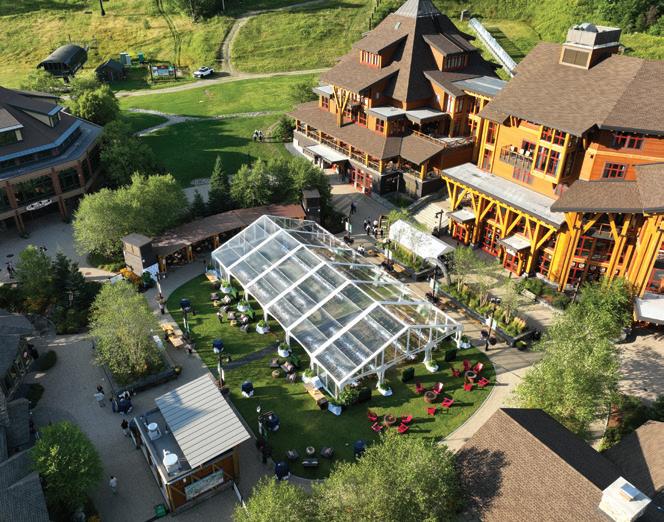
A must-see New England destination that tells the shared history of Plymouth Colony and the Indigenous Peoples of the region in the early 1600s. Visit the 17th-Century English Village, Historic Patuxet Homesite, Plimoth Grist Mill, and Mayflower II.
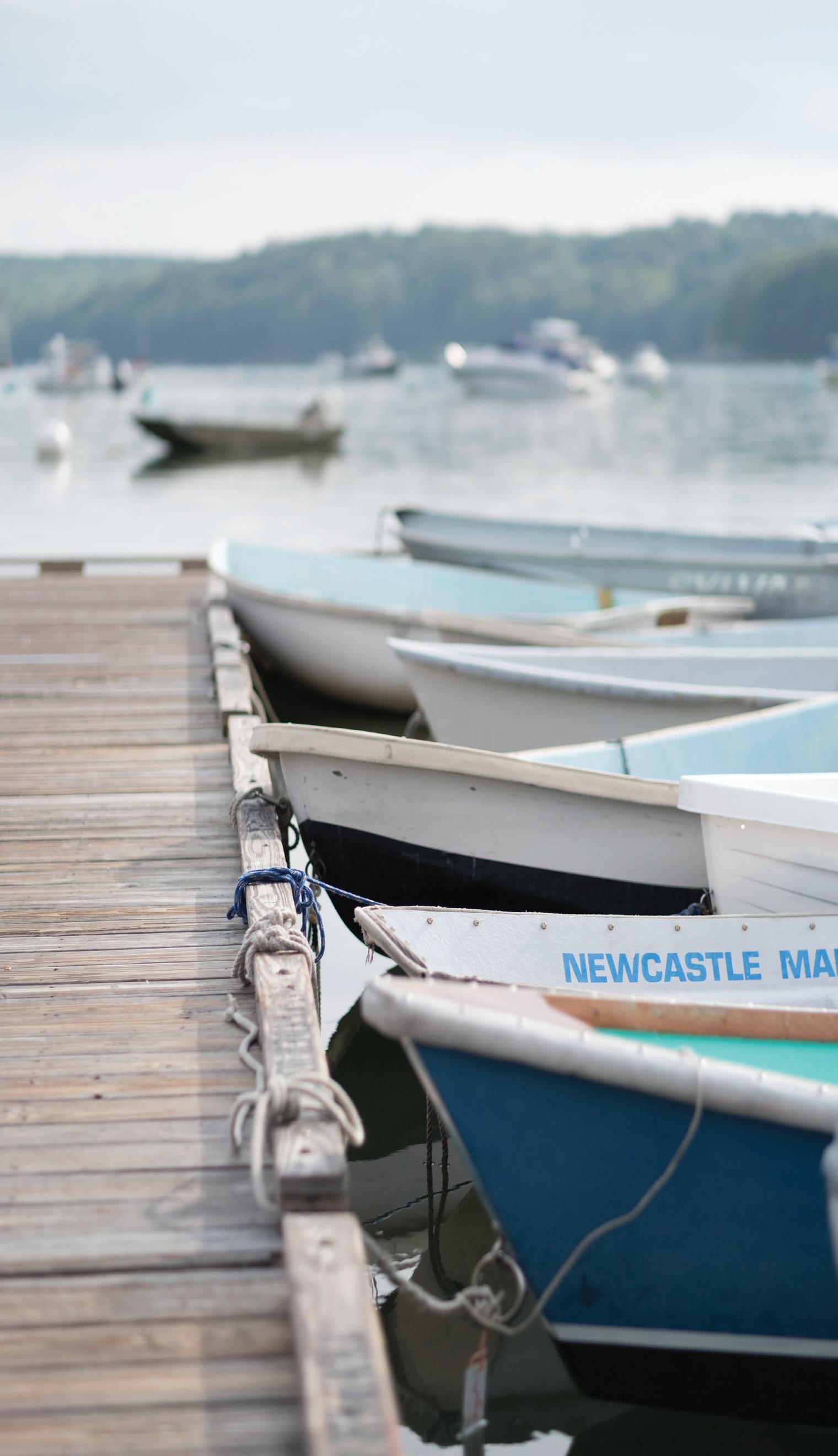
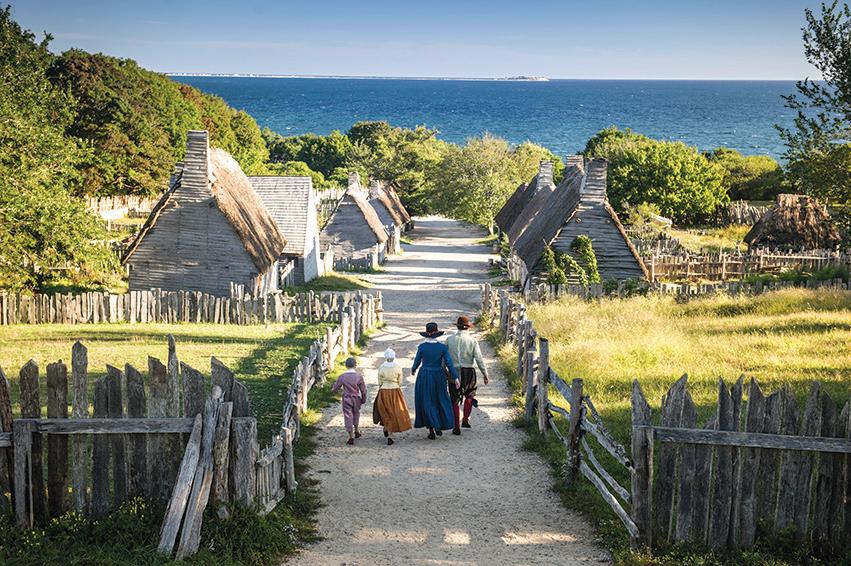
508-746-1622
Plimoth.org
Gifts at 136 offers a large selection of fine crafts and art from Maine, including furniture, paintings, sculpture, jewelry, pottery, glassware, lighting, and more. Gifts at 136 has won multiple awards for its well-curated collection of accessible art. Open all year.
207-563-1011
GiftsAt136.com
Rediscover Hampton Beach, rated #1 in United States for water quality. FREE activities: fireworks, concerts, sand competition, country music, children’s activities, talent show, circus show, fire show, yoga on the beach.
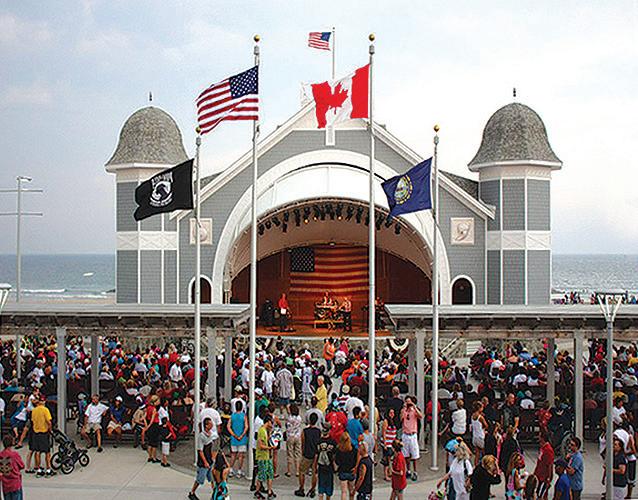
Each year, the editors of Yankee Magazine scour our region’s six states to find the best attractions, dining, lodging, and shopping for inclusion in our “Best of New England” awards. Enjoy this collection of past winners.
A scenic lakeside family resort on Post Pond, near Dartmouth College, offering one- to three-bedroom B&B or efficiency cabins. Easy access to lots of outdoor activities, area attractions, sightseeing and antiquing—or just relax at our sandy beach. Our Lodge Restaurant serves delicious, fresh local fare. Petfriendly!
800-423-2141
LochLymeLodge.com
Experience world-class art and special exhibitions close to home at the Wadsworth Atheneum Museum of Art. Home of the Amistad Center for Art & Culture. Opening May 18: Isaac Julien/Frederick Douglass. 600 Main Street, Hartford, CT.

860-278-2670
TheWadsworth.org
Steps from Bowdoin College in the heart of downtown, OneSixtyFive offers 16 elegant rooms, a pet-friendly cottage, and private events with locally sourced catering. Pub165 and our breakfast dining room are open seven days a week—public welcome.
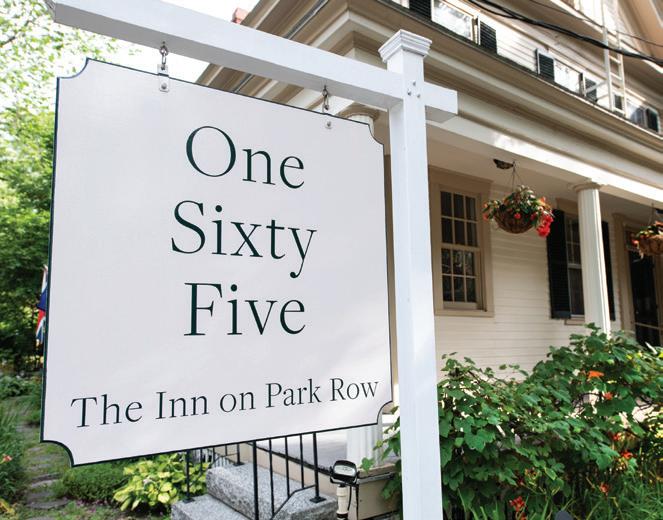
207-729-4914
OneSixtyFiveMaine.com
Climb this historic 7.6-mile road to the summit of the Northeast’s highest peak—drive yourself, or take a guided tour. This must-do drive is America’s oldest man-made attraction. During the winter, take a tour on the Mt. Washington SnowCoach.

603-466-3988
Mt-Washington.com
Enjoy a quarter mile of sandy beach and docks on the shores of Lake Winnipesaukee. Lakeside cottages, apartments, and rooms available. Great location for fishing, hiking, kayaking, boating, and more. Family owned and operated since 1890.


603-293-4321
AmesFarmInn.com
The Boston Globe describes Fat Sheep Farm as “a magical place” offering amazing views from modern cabins. Soak in the sunset by the firepit, taste the farm’s bounty, try your hand at milking sheep, or attend a cheesemaking or sourdough workshop.

802-436-4696
FatSheepFarmVermont.com
Reconnect with past Editors’ Choice winners and see for yourself why they received Yankee Magazine’s highest accolade.
(Continued from p. 60)

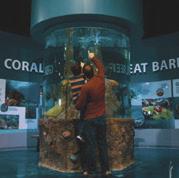
rooms feature expansive windows, exposed brick walls, gas fireplaces, Oriental rugs, mini fridges, and original artwork. There’s a fitness center and rooftop pool, an inviting lobby bar with cushy armchairs, and a coffee shop and bakery. On the lower level, dine— and sample custom-crafted liquid refreshment—at the newest branch of Maine-based Batson River Brewing & Distilling. lincolnhotelmaine.com
QUEEN ANNE’S REVENGE, Bar Harbor. Five former Bar Harbor “cottages”— once the domain of Gilded Age summer sojourners—have been brought together as Queen Anne’s Revenge. Tucked along a side street away from the downtown bustle yet convenient to shops and restaurants, the inn boasts a variety of rooms and suites whose features and dimensions reflect the cottages’ distinctive architecture—no two are alike. Amenities include continental breakfast and the Black Spot Tavern, whose name once belonged to Blackbeard’s pirate ship, which legend claims lurked in Frenchman Bay. queenannesrevengemaine.com



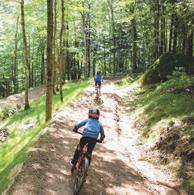
CHAPTER HOUSE, Yarmouth Port. Cape Cod’s newest boutique hotel stands on the Cape’s quietest and most picturesque thoroughfare: Route 6A, the old King’s Highway. The Victorian mansard roof on Yarmouth Port’s Chapter House belies the mansion’s 1716 origins, and the clean, uncluttered decor of the accommodations there and in the adjacent carriage house add a modern touch. Set amid broad lawns and landscaped gardens, the main house opens onto a terrace where drinks are served around a firepit. chapterhousecapecod.com
FARAWAY, Nantucket. It’s not that far away—at least not from downtown Nantucket, where it’s located just three blocks from the harbor—but Faraway, occupying a complex of historic homes, keeps its distance from the usual boutique hotel experience. No two of its accommodations are alike and range from single-occupancy with shared bathrooms, to a “quad” featuring two upper-and-lower bunks, to the threebedroom, private-entry Federal Suite with chef’s kitchen and private patio. The Sister Ship restaurant offers local seafood with a Mediterranean accent, indoors or out. farawayhotels.com

THE FRANKLIN HOTEL, Edgartown. Everyone’s need for a pied-à-terre in
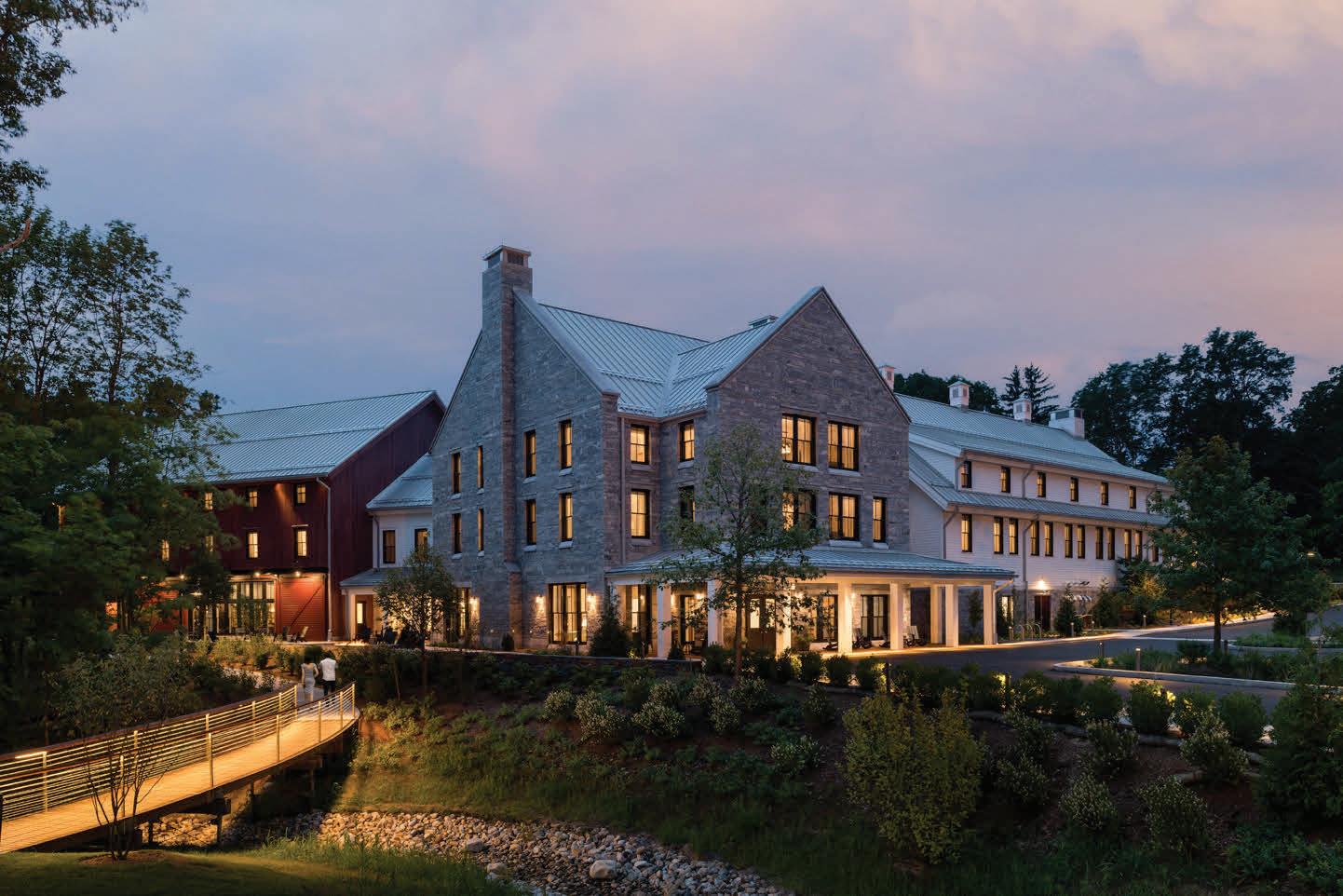
Embrace the beauty of the Northern Berkshires at e Williams Inn, offering luxurious, upscale lodging and dining in the heart of Williamstown.
Edgartown, on Martha’s Vineyard, is answered by the Franklin Hotel, an 18-room boutique establishment that combines the atmosphere of an upscale beach house with steps-away closeness to the old whaling capital’s lively downtown. Some rooms feature an electric fireplace; all have access to a 24-hour pantry with a Keurig coffeemaker and a patio tucked away from street bustle. For families, there’s a penthouse loft, with a king bed and cozy bunks accessible by a spiral staircase. franklinhotelmv.com










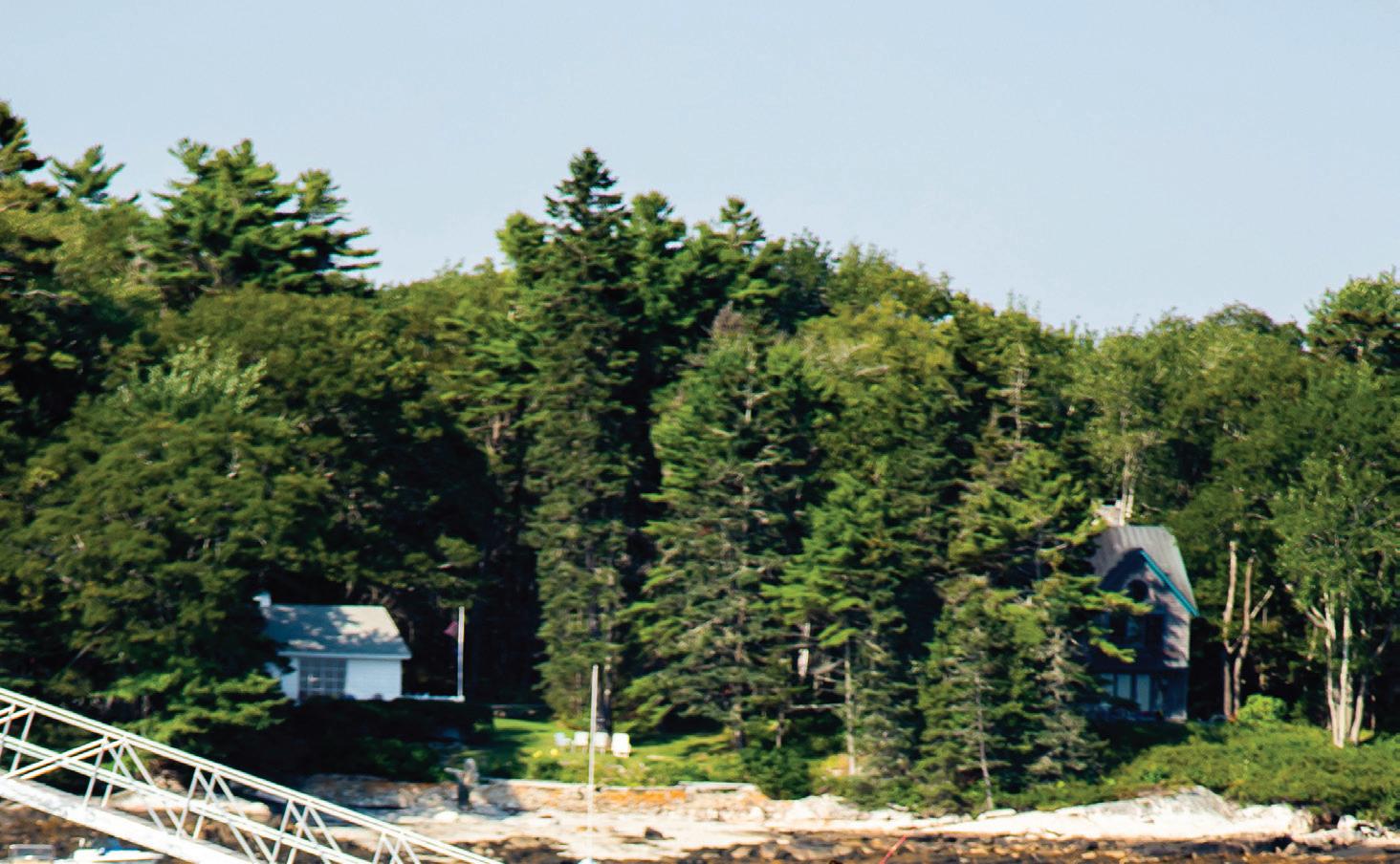

THE LANGHAM, Boston. Boston’s Financial District has never been much of a player in the city’s hotel scene, but that’s all changed with the opening of The Langham, a luxury property opened last year in the former Boston headquarters of the Federal Reserve. Convenient to downtown and the waterfront as well as the Hub’s business center, The Langham offers bright, spacious guest rooms with park and skyline views, as well as “Club”level accommodations that include full breakfasts, midday snacks, and cocktails. Italian-inspired restaurant Grana occupies the bank’s Grand Hall, and the plush hotel bar is called—what else?— The Fed. langhamhotels.com
THE NEWBURY, Boston. For a brand-new hotel, The Newbury has quite a history. Built in 1927 as The Ritz-Carlton, and reborn as The Taj in 2007, the grand dame at the threshold of Boston’s Back Bay begins its third incarnation with a bright, contemporary look, fully remodeled yet with traditional touches such as suites with wood-burning fireplaces—and incomparable views of the Public Garden—still part of the experience. Menus at the glassy rooftop restaurant Contessa have an Italian flair, while the Street Bar remains, as in the century past, a place where you
might overhear what makes Boston tick. thenewburyboston.com









HOME2 SUITES BY HILTON, North Conway. At this surprisingly affordable lodging option at the gateway to the White Mountains, accommodations include studio and one-bedroom suites; even the studios have separate seating areas. Rooms are characterized by a cheerful, midcentury modern color palette—a welcome alternative to the grays and earth tones that hotels seem to favor nowadays. There’s an indoor pool and fitness center, and a hot breakfast is included. hilton.com
THE HOTEL CONCORD, Concord. It would take a seat in the New Hampshire legislature to be closer to the action in Concord, the Granite State’s capital city. Nestled into the fourth and sixth floors of downtown’s Capital Commons Building, the Hotel Concord is an independent boutique lodging whose 38 rooms are flooded with light from floor-to-ceiling windows offering panoramic city views (the spacious Capital Suite faces the State House’s golden dome). Dine at the on-site O Steak and Seafood restaurant, or order room service—an especially attractive option for guests in Terrace Rooms, which have outdoor seating in season. hotelconcordnh.com
SHERATON NASHUA, Nashua. The castle-inspired Sheraton Nashua has been around a while, but underwent a complete renovation in spring 2022. Located less than a half hour from Manchester-Boston Regional Airport and just 45 minutes from Boston, it is a lower-cost alternative to hotels in the Hub but features all the big-city hotel amenities—an all-day restaurant, bar, and fitness center—plus indoor and outdoor pools and spacious rooms and suites that are harder to find in urban lodgings. All this, plus diamond-paned windows. marriott.com
CAMBRIA HOTEL, South Windsor. Choice Hotels’ fast-expanding, value-oriented Cambria brand is now represented by the Cambria Hotel Manchester South Windsor, located just north of Hartford and its I-91 and I-84 crossroads and adjacent to the shops and restaurants of Evergreen Walk. Cambria rooms feature separate sitting areas, microwaves and mini fridges, Bluetooth mirrors, and ergonomic furnishings. There’s an indoor pool, a fitness center, and a restaurant and bar featuring an array of regional craft beers on tap. choicehotels.com
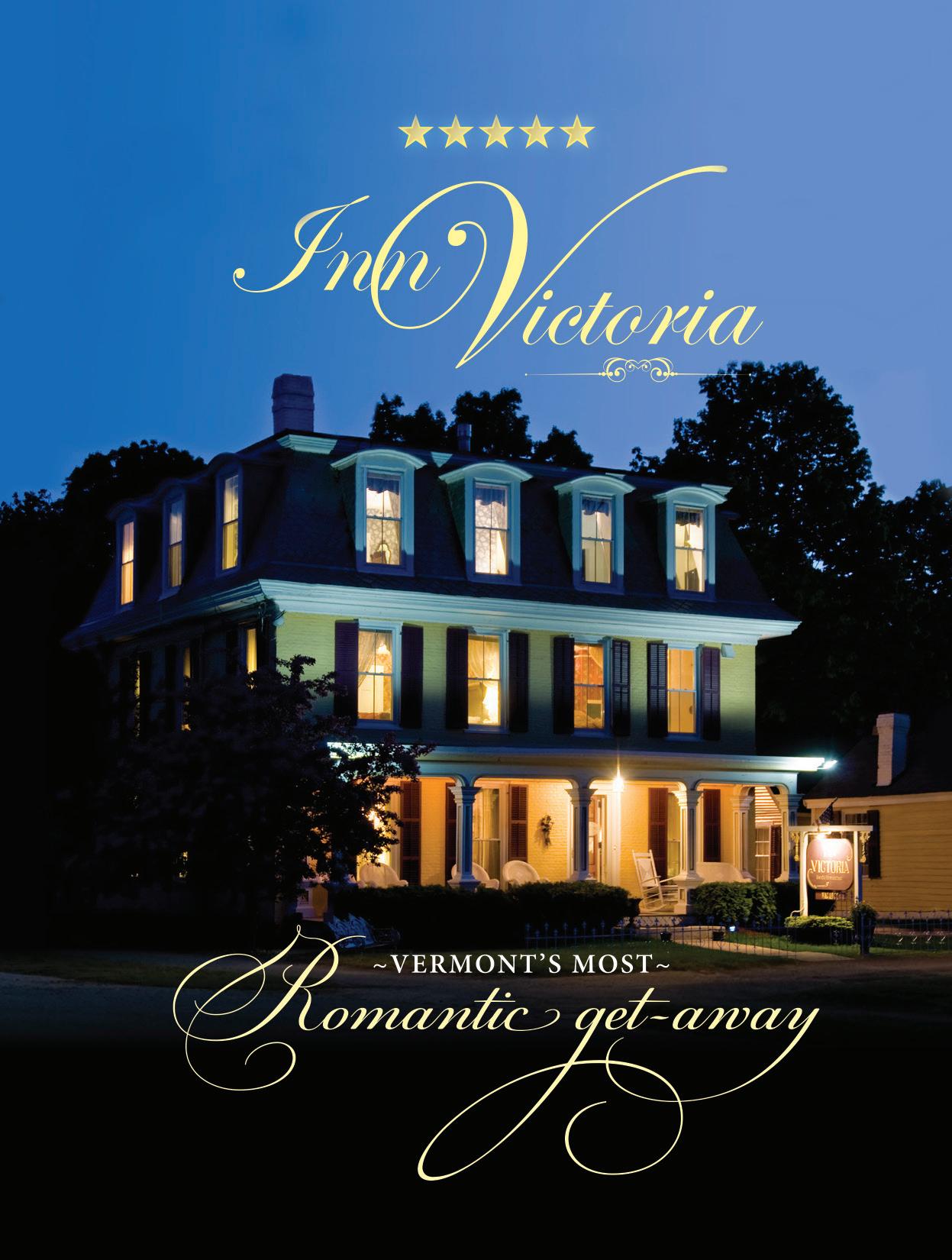

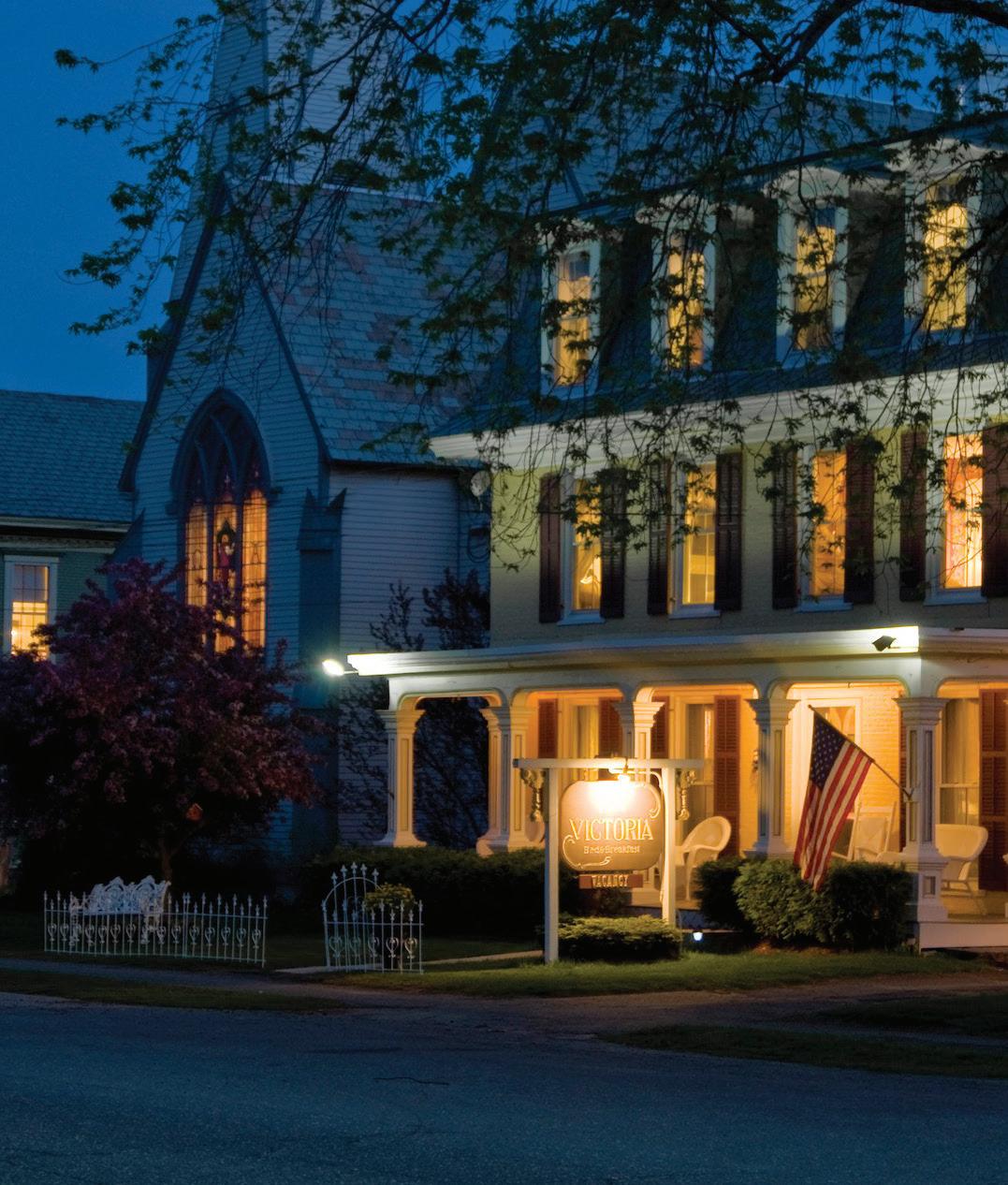
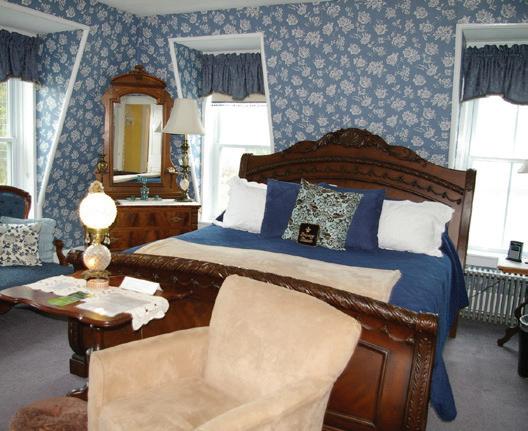

HOTEL MARCEL, New Haven. The Hotel Marcel takes its name from midcentury modern architect and designer Marcel Breuer, and stays true to the spirit of his day with the adaptive reuse of Breuer’s New Haven’s landmark 1970 Pirelli Building. Architectural historians call the era’s signature style “brutalist,” but the hotel’s clean-lined, spacious guest rooms and public spaces are anything but. And true to the spirit of our own day, the Marcel reflects a commitment to environmental awareness and energy efficiency: the entire building is solar-powered. That commitment extends to the hotel restaurant, BLDG, where sustainable sourcing of ingredients is paramount. hotelmarcel.com

THE STAMFORD HOTEL, Stamford. One of Connecticut’s newest hotels is the Stamford Hotel, with a downtown location convenient to I-95 and Stamford’s Amtrak and commuter rail station. With its special emphasis on wellness and relaxation, the hotel offers two “Wellbeing Floors,” featuring Delos air filters and Mirror devices for streaming workout and yoga sessions. A 24/7 fitness center features Peloton bikes, and an indoor pool is adjacent. The on-site Carmel Bar offers







light bites and full meals throughout the day. thestamfordhotel.com





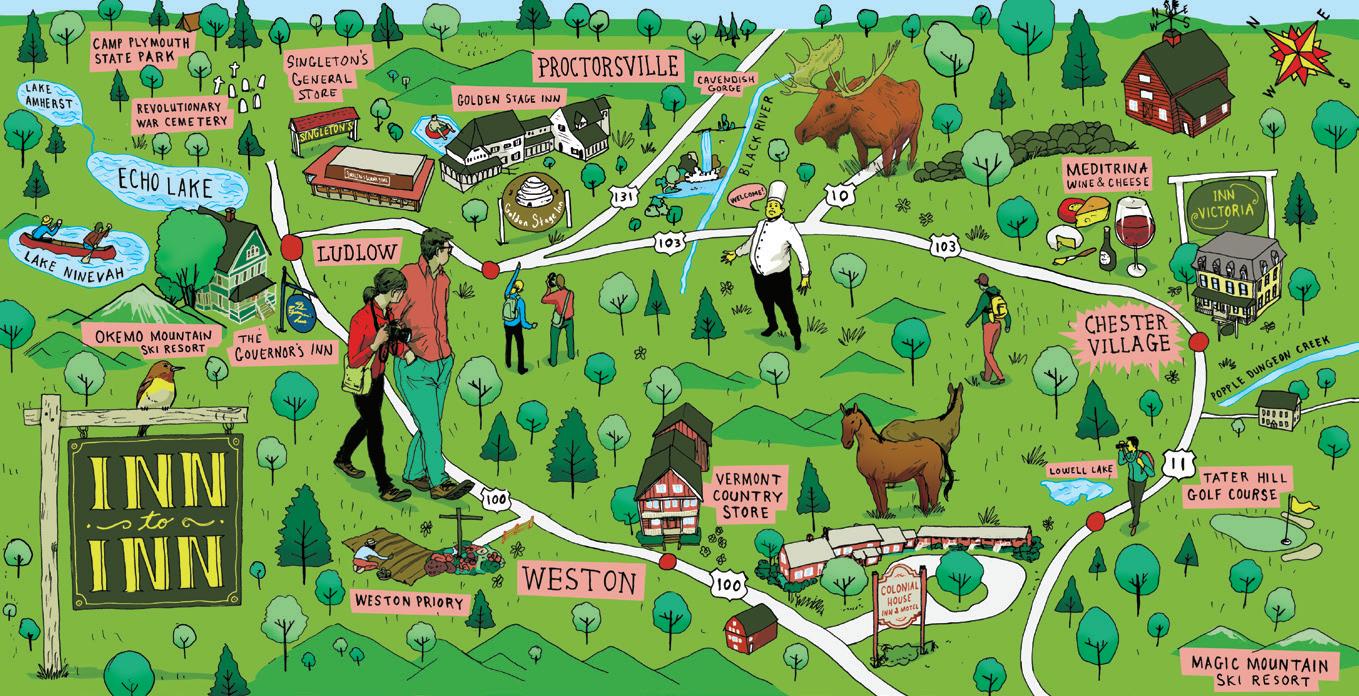
THE BRATTLEBORO, Brattleboro. Serenity is the watchword at The Brattleboro, splendidly nestled within its woodsy 32-acre property just minutes from downtown Brattleboro’s shops and restaurants. With only four suites— three kings and a queen—personal attention is assured. A three-season heated outdoor pool, year-round hot tub and sauna, and complimentary bicycles are among the amenities, as are yoga mats in each room (private yoga and meditation sessions can be arranged). There’s a wine and cheese hour each afternoon, and the 20° Bar serves martinis at exactly that temperature … Fahrenheit, of course. thebrattleboro.com
THE HERMITAGE INN, West Dover. Back again and more sumptuous than ever, the Hermitage Inn resumes its place as the premier overnight in the Mount Snow region. Some rooms in the inn’s main building, a beautifully preserved early-19th-century farmhouse, feature gas fireplaces, as do the four rooms in the Carriage House, where private front porches face the inn’s trout pond. A full breakfast is provided with all accommodations, and James Beard Award–winning chef Michael Schlow is in charge of tavern and main dining room menus that make fine use of local ingredients. thehermitageinnvermont.com
QUINCY HOTEL, Enosburg Falls. What’s old is new again in Enosburg Falls, where the 1876 Quincy Hotel welcomes guests after a two-year renovation. Built as a railroad hotel, it stands alongside what is now the scenic Missisquoi Valley Rail Trail extending from Richford to St. Albans, and is steps away from the Enosburg Opera House, an 1892 gem hosting live music and theater. Accommodations include four onebedroom and three two-bedroom suites, all with private bath, restored vintage furniture, and oversize windows. And, as in 1876, guests can watch the world—if not the trains—go by in rocking chairs on the porch and balcony. quincyhotelvermont.com
TÄLTA LODGE BLUEBIRD, Stowe. Tälta Lodge bills itself as a “boutique base camp,” and its Stowe location certainly does put guests in the middle of outdoor action and adventure. Stowe Mountain Resort’s alpine and Nordic trails are right in the neighborhood—and so are mountain bike rentals and trails, hiking links to the Long Trail, golf, and the 11-mile Stowe Recreation Path. Rooms, ranging from deluxe kings with patio to
four-person bunk accommodations, are all equipped with gear storage in mind. There’s an indoor pool, a sauna, and— for après-whatever—an outdoor firepit. bluebirdhotels.com

ALOFT, Providence. Aloft is Marriott’s entry into downtown Providence’s hotel scene. Located in the Design District along the Providence River, and just a short walk from Brown University and the Rhode Island School of Design, Aloft offers airy, light-filled accommodations that excel in taking in urban vistas (the spacious river-view king rooms are a favorite). The hotel is pet-friendly and boasts a lobby bar with occasional live music, as well as the rooftop BluViolet, a popular watering hole for guests and locals alike. marriott.com
CHAMPLIN’S MARINA AND RESORT, Block Island. The 30-foot harbor depth and 140 slips at Champlin’s Marina and Resort, on Block Island’s Great Salt Pond, should accommodate just about any yacht cruising in from Monaco. After docking, check into one of Champlin’s 42 freshly renovated, nautically themed guest rooms, spread throughout five buildings on nine waterfront acres. There’s an outdoor pool, a full-service restaurant, and the Pier 76 double-deck bar, situated right over the water. champlinsresort.com
DYE HOUSE, Providence. Providence’s new Dye House hotel used to be, well, a dye house. Located in the Olneyville neighborhood on Providence’s west side, this one-time component of American Woolen Mills is a luxurious study in adaptive reuse of an industrial space. There are just four guest accommodations, including The Loft, a suite that includes, along with sleeping quarters, indoor and outdoor gourmet kitchens and seating for 14 diners. The other three are designed as more intimate lodgings (though one has a kitchenette), and all include sleek, locally made furnishings. dyehouseri.com
SHEPHERD’S RUN, South Kingstown. It’s a winery, and a boutique lodging. Shepherd’s Run was once a summer residence; today, much of its 36 acres are planted in vines yielding a taste of the Ocean State’s terroir. None of the 10 guest rooms in the Norman Romanesque manor house are identical in layout; all are bright and airy, and feature a mix of modern and vintage furnishings. Tops is a two-bedroom suite overlooking the vineyard. A light breakfast is served, and wine tastings—and, of course, purchases—are offered. shepherds.run



 FREEPORT, PORTLAND AND SCARBOROUGH | MAINE CHILTONS.COM
FREEPORT, PORTLAND AND SCARBOROUGH | MAINE CHILTONS.COM




Quarry Hill o ers it all: a gracious, maintenance-free home with easy one- oor living and priority access to the fullest spectrum of care.
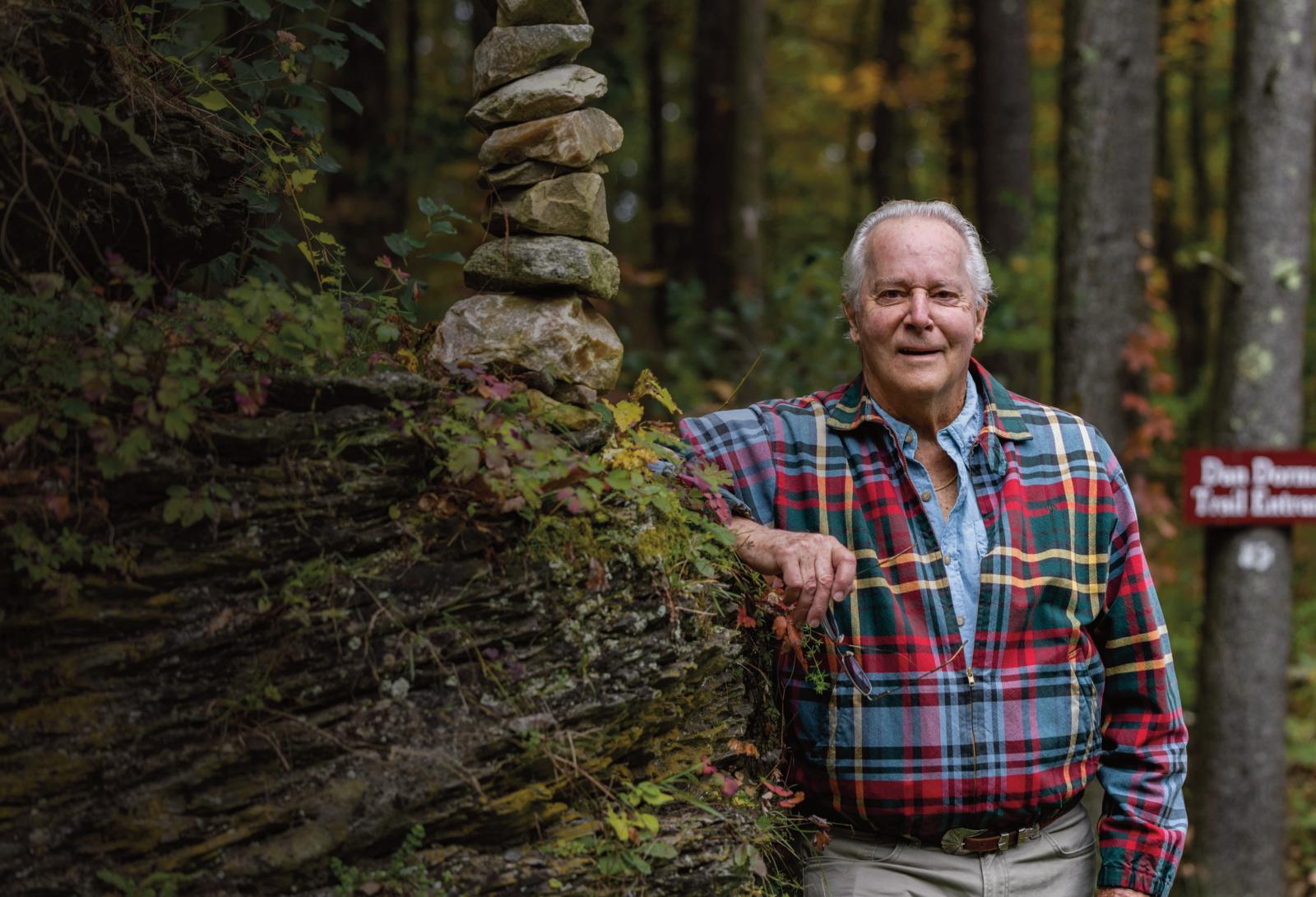
Enjoy all the beauty and cultural sophistication of Camden, Maine and discover your best future.

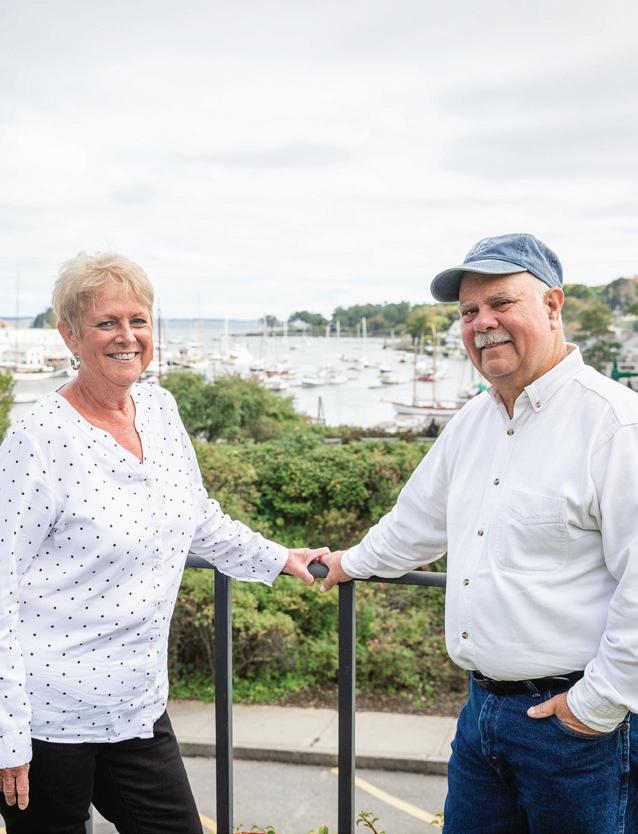


207-301-6116
quarryhill.org
























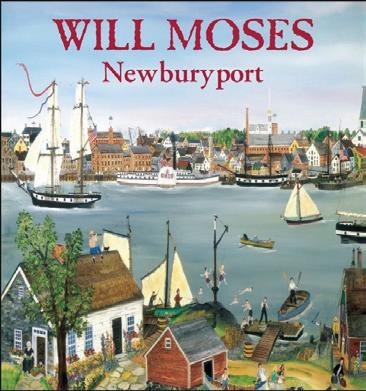

half of the 19th century. But Olmsted had become prolific enough to attract an audience beyond municipal governments. As a principal of the landscape firm Olmsted, Vaux & Co., he was recruited by private clients to design naturalistic green spaces for their own use. While several of these projects involved oligarchical estates, others had a more humanist spirit.

Which is why I head to the Institute of Living, a Hartford-based hospital that pioneered a compassionate and science-based approach to mental health treatment after centuries of cruel, stigmatizing modalities. Formerly known as The Retreat, the institute sits on 35 acres of wooded green space with wandering trails crafted by Olmsted himself. Dr. John Simpkins Butler, the institute’s superintendent, envisioned a “therapeutic Arcadia” where patients could stroll the grounds and experience the calming benefits of immersion in nature. It was an idea that would seed the ground for practices like forest bathing, decades later, and Olmsted was more than happy to transform the once-barren hospital grounds into a blooming garden that patients—and visitors—can explore.
Moments after walking through the parking-area gate, past bald cypresses and a rare giant pecan tree, I happen upon a bust of Olmsted surrounded by shrubs and wildflowers. In spirit or in form, he’s always close by in New England parks, it seems. And yet, even with two enchanting Olmsted spaces crossed off my list by noon, I’ve only skimmed the surface of his New England catalog. Five minutes from the Institute of Living, a hearty lunch of enchiladas norteñas at Monte Albán Restaurant fuels my drive north to Massachusetts, past the Connecticut River, past the casino billboards near Springfield to the hills of the Pioneer Valley.
In South Hadley, I park on a residential street near the Village Commons and step onto the 2,000-acre campus of Mount Holyoke College. Of all the academic campuses that Olm-
sted designed, this might be his most sumptuous. While the project was completed by Olmsted’s son in 1922, the original schematic for Mount Holyoke was a classic case of Olmsted allowing the natural scenery surrounding the college to inform the campus aesthetic. He added flourishes like forest trails, pondside quads, and a carriage path to the valley lookout atop Prospect Hill. For the rest of the afternoon, I wander—as Olmsted paths were designed for—past grassy hillsides speckled with undergrads catching up on their weekly
reading. I cross into the nearby woods, past briny wetlands alive with chirping insects, eventually reaching up at a sunlit pasture where cows once grazed. I can only imagine the reservoirs of calm that Olmsted’s campus must instill in students here.

By dusk, when I check into the Old Mill Inn in Hatfield, I feel deep contentment. The actual mill waterfall that spills outside my hotel room window lulls me to sleep. Good thing, too. I’ll need my rest. Tomorrow will be a darker day, when I visit a tragic giant of a park.
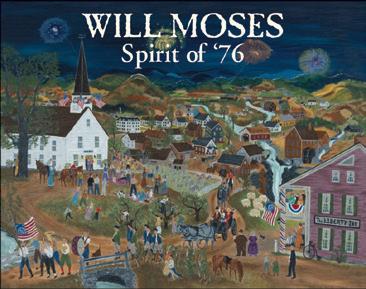
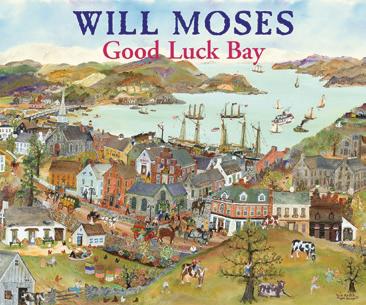
One of the largest parks that Frederick Law Olmsted designed is hidden in plain sight in Springfield, Massachusetts. Forest Park, a whopping 736 acres of woodlands south of the city’s downtown, was created in the late 19th century during Springfield’s manufacturing glory days. (Soap, vulcanized rubber, and Rolls Royce automobiles were among the goods that once vested the city with wealth.) On my second day looking for Olmsted’s legacy, I will look for the lesser-known gems of Forest
Olmsted’s treasures remain, but
they’re
hands of a
generation of dreamers who may further realize his ideals.




A Ross-Simons exclusive. Twisted strands present an ethereal mix of 150.00 ct. t.w. rose quartz beads and 70.00 ct. t.w. peridots. For a lovely glow, mother-of-pearl beads and cultured freshwater pearls are sprinkled throughout in so shades of white, pink and peach. Our sweet torsade necklace is impossible to resist!



19" necklace with a 31⁄4" extender.
$99
Compare at $140



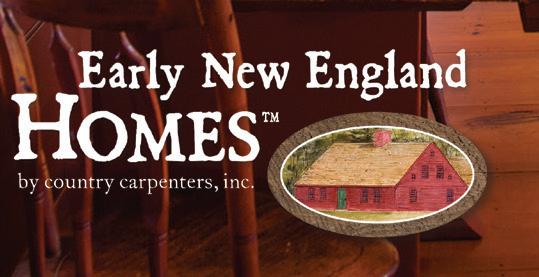

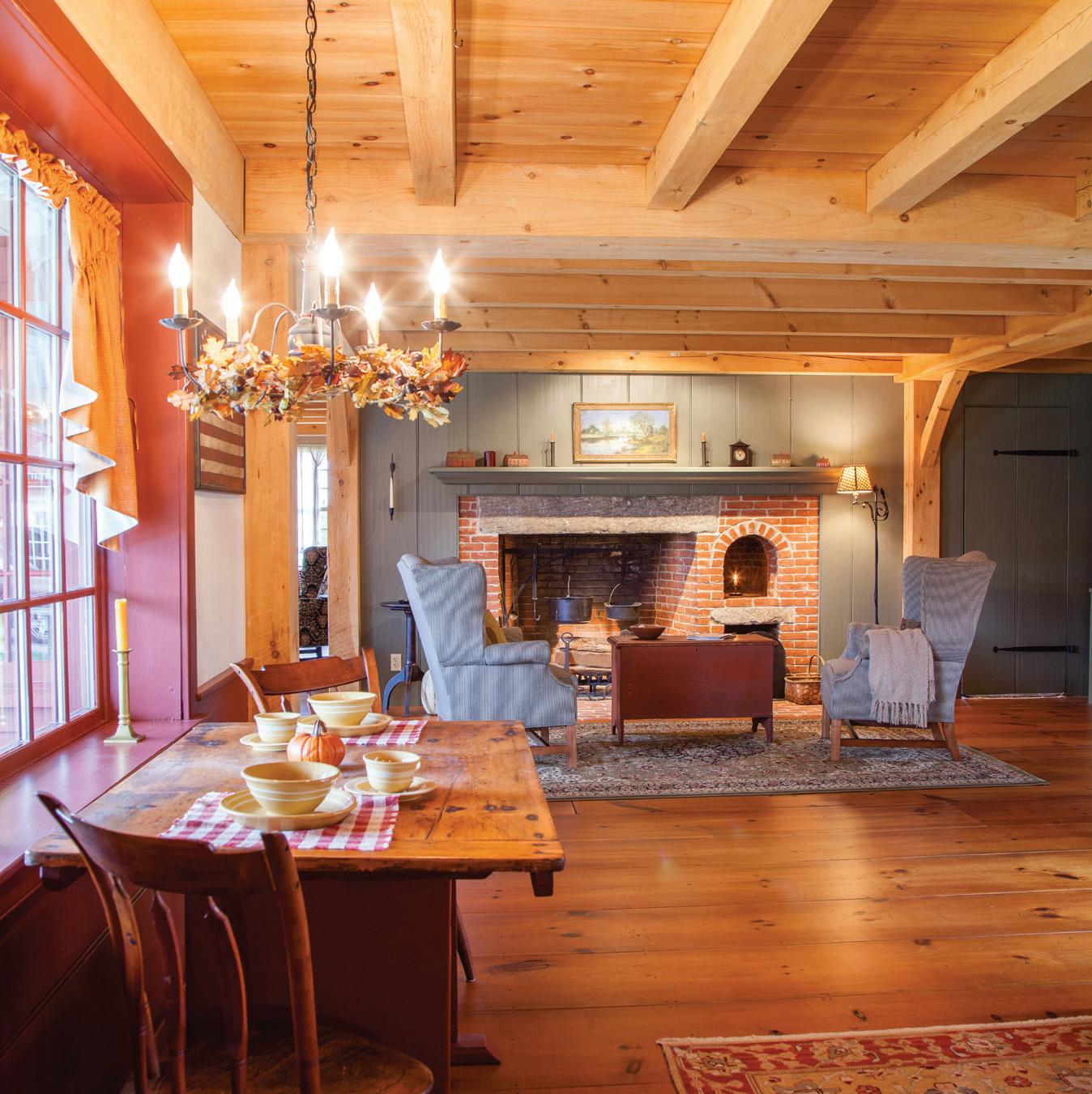
Park and, I hope, find out why this sprawling green space rarely appears on lists of Olmsted’s top works.
I drive into the park on a quiet road flanked by enormous evergreen conifers that make me feel as if I’ve somehow crossed into a redwood forest. I leave my car at a central parking lot and set off on a network of paths that take me past a small zoo, a set of dinosaur footprints preserved in rock, the ruins of a stone fountain now overtaken by weeds, and gorgeous red East Asian–style bridges crossing a rippling creek that sidewinds through the park. According to my map, the west edge of Forest Park appears to be a Connecticut River overlook called King Philip’s Stockade (named for the Wampanoag sachem originally called Metacomet, who led a war of resistance against the encroaching Puritan colonies). But reaching Forest Park’s western terminus requires crossing a busy road—a bad sign. When I arrive at the wooded “stockade” area, I’m surprised and saddened to find that Forest Park has
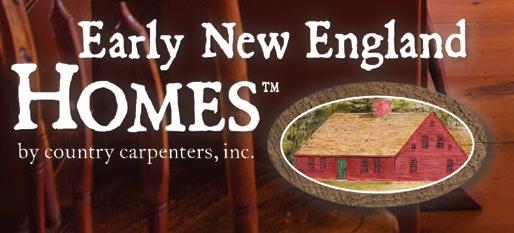
been cut off from the Connecticut River by a chain-link fence and the concrete barrier of I-91.
What happened here reflects the event that changed American parks during the 20th century: the rise of the automobile and car culture. The curvature of urban parks proved all too enticing for highway developers. Roads and highways began to slice their way through public green spaces, displacing footpaths and, in cases like Forest Park, creating dangerous barriers around parks. Not only did cars damage the park experience for many pedestrians, but they also hurt cities. The construction of I-91 along the Connecticut River is often reevaluated as a short-sighted mistake. The roaring highway cut off Forest Park and downtown Springfield from the waterfront, stymieing development along the river and delivering few of the economic boons that Springfield had been banking on during the manufacturing decline of the 1970s and ’80s.
While Olmsted’s parks offered an egalitarian vision of shared space where everyone could relax and be seen coming together, the highways symbolized a more individualistic and capital-driven approach to landscape use. Highways were becoming tremendously important to big business, and this was ultimately prioritized above access to shared green spaces. Even in Olmsted’s early years as a landscape architect, there was always a tension between his ideals and the darker, powerful forces that reinforced social hierarchies. Part of the land that Olmsted would shape into Central Park was once owned and occupied by the people of Seneca Village, one of the nation’s largest communities of free African-Americans. But as plans for Central Park firmed up, the city used eminent domain to seize the land and evict the residents of Seneca Village. Olmsted’s inaugural park— a giant leap forward for public green spaces in American life—was built atop the ruins of a community pulverized by structural racism.
the poem reads:
THEPOEMREADS:
Dear Reader,
The drawing you see above is called The Promise. It is completely composed of dots of ink. After writing the poem, I worked with a quill pen and placed thousands of these dots, one at a time, to create this gift in honor of my youngest brother and his wife.
Dear Reader,
Now, I have decided to offer The Promise to those who share and value its sentiment. Each litho is numbered and signed by hand and precisely captures the detail of the drawing. As a wedding, anniversary or Valentine’s gift or simply as a standard for your own home, I believe you will find it most appropriate.
As I backtrack to my vehicle through Forest Park’s mostly empty paths, I think of what could have been,
Measuring 14" by 16", it is available either fully-framed in a subtle copper tone with hand-cut double mats of pewter and rust at $145*, or in the mats alone at $105*. Please add $21.95 for insured shipping. Returns/exchanges within 30 days. My best wishes are with you.
The drawing you see above is called “The Promise.” It is completely composed of dots of ink. After writing the poem, I worked with a quill pen and placed thousands of these dots, one at a time, to create this gift in honor of my youngest brother and his wife.
Now, I have decided to offer “The Promise” to those who share and value its sentiment. Each litho is numbered and signed by hand and precisely captures the detail of the drawing. As a wedding, anniversary or Valentine’s gift or simply as a standard for your own home, I believe you will find it most appropriate.

Sextonart Inc. • P.O. Box 581 • Rutherford, CA 94573 (415) 989-1630
Measuring 14" by 16", it is available either fully framed in a subtle copper tone with hand-cut mats of pewter and rust at $110, or in the mats alone at $95. Please add $14.50 for insured shipping and packaging. Your satisfaction is completely guaranteed.

My best wishes are with you.
All major credit cards are welcomed. Please call between 10 a m -5 p m Pacific Standard Time, 7 days a week. Checks are also accepted. Please include a phone number.
*California residents please include 8.0% tax
MASTERCARD and VISA orders welcome. Please send card name, card number, address and expiration date, or phone (415) 989-1630 between noon-8 P M.EST. Checks are also accepted. Please allow 3 weeks for delivery.
Please visit our website at www.robertsexton.com
“Across the years I will walk with you— in deep, green forests; on shores of sand: and when our time on earth is through, in heaven, too, you will have my hand.”
“Across the years I will walk with you— in deep, green forests; on shores of sand: and when our time on earth is through, in heaven, too, you will have my hand.”
my funk somehow made worse by the fact that I drove I-91 to get here. I could linger in Forest Park in the haze of a cloudy summer afternoon, but it’s time for a restorative tonic. I head for the Massachusetts Turnpike and drive east to Boston, where Olmsted eventually settled down and spent his later years tinkering away at something special: a grand green space that would become a passion project and inspire others to adopt and expand Olmsted’s principles of shared parks.
It’s time to hike the Emerald Necklace.









Boston is esteemed for its leafy oases, like the Arnold Arboretum and the Public Garden, but often visitors don’t realize that these green spaces form a chain that’s draped around the Shawmut Peninsula like, well, a necklace. From Franklin Park to Boston Common, the Emerald Necklace is a seven-mile walk through 16 Boston neighborhoods. It took root in 1878 when the Muddy River, a reedy waterway near Fenway Park, became plugged up with sewage and garbage that cast an odiferous pall over nearby communities. Rather than bury the river, as many cities were doing with incon-

venient rivers and streams, the city of Boston hired Olmsted to devise a more holistic plan. Tapping his naturalist instincts, Olmsted embraced the power of the Muddy River and widened the channel, improving its flow and allowing it to drain into the Charles. In the process, he planted trees, built paths, and created new parks. It was similar to the linear parks system Olmsted had designed in Buffalo a decade earlier. But longer.
Over a century later the Emerald Necklace still chirps with life, and it’s invitingly walkable from any access point. I’m committed to the entire foot journey, setting off from the abandoned bear cages near Franklin Park Zoo and following along Arnold Arboretum’s Willow Path before reaching the edge of Jamaica Pond. Here, I detour up to Fairsted, a National Historic Site in the Brookline Hills where you can walk right into Olmsted’s preserved home. It was from here that he supervised work on the Emerald Necklace (it was completed in 1895), and the Fairsted archives contain more than 1 million blueprints and other documents detailing Olmsted’s landscape projects. But I’m headed to Fairsted for a more terrestrial source: Alan Banks, a recently retired park ranger and Olmsted histo-
rian who has generously driven up from Rhode Island to join me on my traverse.
I find Alan in the Fairsted foyer in a Hawaiian shirt and basketball shoes, ready for our day. We descend from Jamaica Pond’s northern picnic lawns into the thicker woods of Olmsted Park, crossing wooden slat bridges over bubbling creeks before reaching the banks of the Muddy River. Here, the footpath enters a cathedral hall of deciduous trees that winds past Boston’s Longwood Medical Area. Alan glances toward one of the hospitals as it emerges through the verdant canopy. “When I was growing up, my mom had diabetes and spent a lot of time at Beth Israel Deaconess,” Alan says. “I was 12 years old and I would sneak over here. It was kind of my escape.” It was his first exposure to an Olmsted park, and an affirmation of Olmsted’s belief that public parks could offer visitors a reprieve from the tensions of daily life.



But as we stroll alongside the river, Alan notes how much has changed here since his ranger days, when he would lead guided tours along the Emerald Necklace. The city is busy dredging the Muddy River for sediment and silt runoff from an adjacent roadway that runs alongside this section of parkland, to ensure that the
MAP BY JOHN BURGOYNE

Whether you’re experiencing symptoms of anxiety or depression, feeling burned out at work, or navigating relationship challenges, therapy can be an effective tool for building resilience and improving your mental health. But finding therapy that works for your schedule, budget, and goals can be challenging. Here are some pointers to make therapy less daunting, and help you get the care you’re looking for:

1. Understand that therapy can be for anyone. Therapy isn’t only for people who have been diagnosed with a severe mental health issue. Mental health is for everyone. Therapy can be beneficial even if you just need someone to talk to.
2. Be kind to yourself — seeking therapy is a sign of strength, not of weakness. Free yourself from the stigma that can be associated with seeking mental health care. Starting therapy is a sign that you’re taking ownership of your narrative, and prioritizing your mental health. It takes a lot of bravery, and it’s something to be proud of.
3. Stay open to different specialties. There are a lot of different licenses in the mental health profession — from psychologists to social workers — but the most important thing is finding a therapist that you feel safe with. Make that a focus of your search.

4. Think about whether you’d prefer to do therapy in-person or virtually. Virtual therapy can be done from home, offers a much wider selection of providers, and is often more affordable. BetterHelp, for example, has a network of over 25,000 licensed therapists and costs between $60-$90 a week. On the other hand, in-person therapy can be more appropriate for people with mental

health challenges that may require in-person care, like substance abuse issues or severe eating disorders.
5. Try messaging with your therapist first if you don’t feel ready for a full session. Starting therapy with someone you’ve never met before can be scary. If that feels like too much, start by messaging with your therapist, which is an option on BetterHelp and some other online providers. Messaging can be a very effective tool for processing feelings on your own time and getting to know your therapist a little bit better.
6. Consider the cost. If you have insurance, call the number on the back of your card to see whether there are affordable providers in-network. For non-insurance options, consider an online provider like BetterHelp, which charges significantly less per hour for regular sessions. Finally, consider group sessions, where you share the cost of services with others in a discussion-based format.
7. Don’t get discouraged if the first therapist you speak with isn’t the right fit. Therapy is super personal, and sometimes it takes a few tries to find someone you connect with enough to continue working with them in the long term. Finding a good match can take time, and it can make a huge difference. Some services, like BetterHelp, make it easy to switch between therapists and can work with you to help you find the right match.
Starting therapy is a major step — and one that can take a lot of courage and time. The work you put in up front is an investment in your long-term wellness. In my decade as a therapist, I’ve seen the transformative effect that therapy can have on people’s lives. If you’re considering it, take the leap and give it a try. Scan
river’s natural flow remains uncompromised. We emerge from the woods, crossing a bridge made of local Roxbury puddingstone into the Back Bay Fens. Alan mentions that not too long ago, the city had covered up a small piece of the river with a parking lot. In 2013, the parking lot was razed to “daylight” the buried river, and new pedestrian pathways were added, restoring Olmsted’s original vision but also improving upon it.

“The original Fens didn’t have solid ground in their interior spaces,” Alan says as we approach the bustling basketball courts at Roberto Clemente Field, another later addition. “You have Olmsted’s vision of this passive recreational area, something that you look across. It wasn’t for doing what he called ‘gregarious things,’ such as [sports].” But, Alan adds, community sports can provide many of the same physiological health benefits as time spent wandering outdoors. In this sense, Olmsted’s treasures remain, but now they’re in the hands of a new generation of dreamers who may further realize his ideals.
Consider Charlesgate, the point where the Muddy River suddenly pivots beneath an overpass and disappears under Storrow Drive before emptying into the Charles River. Working with the state’s department of transportation and a coalition of neighborhood organizers, the Emerald Necklace Conservancy (which restores and protects the Necklace’s green spaces) will soon oversee a project to relocate Storrow’s eastbound lane and exhume this final stretch of the Muddy River. New trails along the daylit river will connect the Emerald Necklace to the Esplanade park along the Charles River. And unlike the public parks that were built in the wake of evictions and home demolitions, the only “victims” of displacement here will be the vehicles rerouted along Storrow Drive.
Alan and I bid each other farewell near here, and as I walk down the tree-lined Commonwealth Avenue Mall toward Boston Common, the soles of my feet feeling tenderized, my trip somehow doesn’t feel like it’s quite over. Because here in Boston and
in the places where I’ve spent the past 48 hours, Olmsted’s dream of naturalistic spaces as a common good is being rediscovered and resuscitated by community-led endeavors like the Charlesgate project. As I’ll soon learn, Springfield has raised millions of dollars to renovate the entrances to its riverside park and bike path, despite the continued presence of the highway cutting through downtown. New York City has announced the daylighting of Tibbetts Brook, a forgotten subterranean waterway in the Bronx that will flow past new wandering footpaths, just like the Olmsted paths that snake through Prospect and Central parks.
Sitting on the steps of Boston Com-
mon’s Soldiers and Sailors Monument amid a pink dusk, gazing over this green space surrounded by brownstones and high-rises, I’m oscillating between gratitude and anticipation. Somehow, Olmsted’s parks are still here. But who knows what they’ll look like in the years ahead? Who knows how far those wandering paths may take you? That insatiable urge to ramble has somehow prevailed against the onslaught of cars and roads, expanding the scope of Olmsted’s parks. It’s taken me here. And I’m not ready to go home yet. My apartment is five subway stops away. But there are more parks and paths to see. There’s still daylight left.
I think I’ll walk.
We have 1,500 awesome jewelry items on our website. Ready to buy online 24/7. Ready to ship Monday-Friday. It’s easy, easy, easy. Shipping is fast, safe and free anywhere USA and of course we ship to homes here in Maine too.










You can shop online and call us a day in advance. We will take your order, do the credit card thing, we do the paperwork, clean, pack and wrap and have your new treasure ready for you for next business day. When you arrive at our 129 Free Street pick-up spot you can call us and we will be right out with your gift. You sign like a big shot and in minutes you’re on your way.
These are some of our favorites this week. Ready to buy, ship anywhere or pick-up.

EnergAire continuously puri es up to 4,000 cubic feet (a large room) of air and makes it breathable and invigorating. Restores natural ion balance to unhealthy environments caused by industrial pollution, automobile exhaust, central airconditioning, and heating, smoke, dust, pollen, animal fur. . . removes microscopic pollution particles not removed by any other method of air puri cation.

EnergAire was rated Number One for speed of removal of cigarette smoke by the leading U.S. consumer protection magazine. It has no noisy fan, no costly lter, and requires no maintenance. Uses less than 2 watts. 9" high. 3" diameter. Weighs less than 1 pound. $69.95








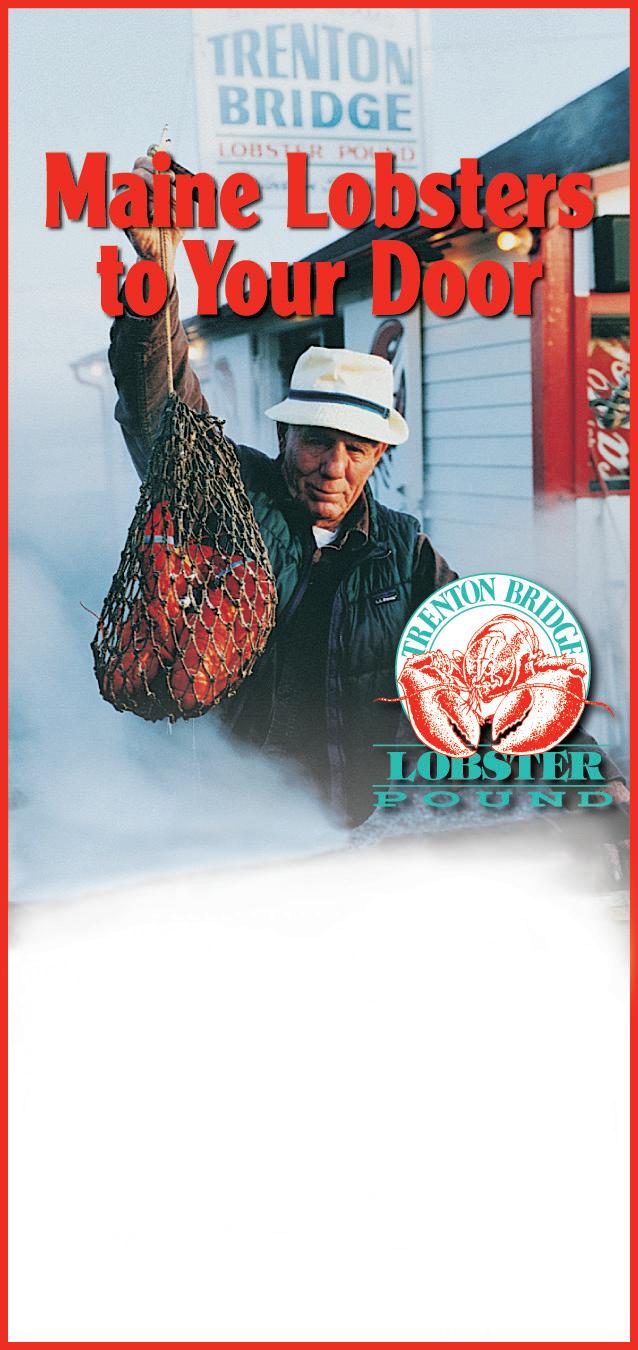




RODAR is the super-powerful professional ultrasonic pest repeller with up to 60 or more times the power of other devices — and power is what makes RODAR so e ective. RODAR ultrasound equals a jet engine — noise unbearable to pests but at frequencies humans and pets cannot hear. RODAR units are completely safe. RODAR drives pests out and keeps them from getting in. Handsome simulated walnut cabinet 5-5/8" high. Weight 1-1/2 pounds. Uses less than 5 watts. $99.95











made in USA







Since 1988










Issue:_________________________ on Cape Cod CHANDELIERS • SCONCES Available in: SOLID COPPER or SOLID BRASS 17 Jan Sebastian Dr., Unit #1, Sandwich, MA 02563 508-833-0515 www.sandwichlantern.com





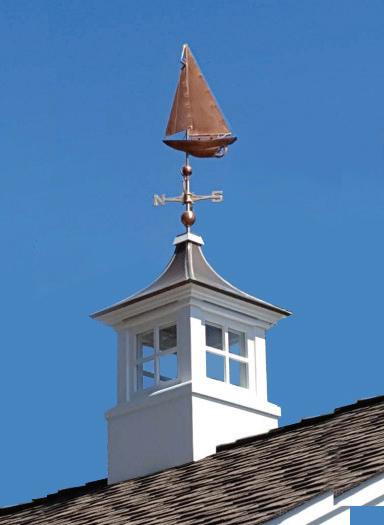
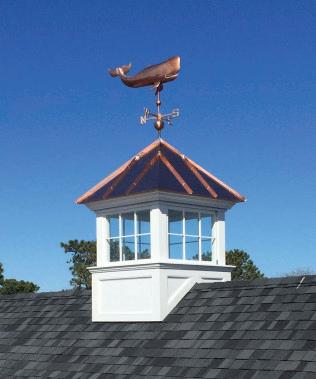
















on Cape Cod HANDMADE On Location









Issue:














responsible for errors once proof has been signed— or if not returned by the above date. that color proof/pdf is to show color break only. Colors do not accurately actual printed advertisement as it will appear in the publication. mark them clearly.________________________________________________________ SANDWICH LANTERN

Yankee Magazine has learned that some of our subscribers have received deceptive renewal notifications from several unauthorized companies.





Only Yankee Magazine is authorized to issue renewal notifications for our subscriptions. Our renewals will always be addressed from Boone, IA. Yankee Magazine DOES NOT contract with third parties to solicit or receive subscription payments. If you receive a renewal and are unsure of its authenticity, please call our subscriber services department: 800-288-4284


















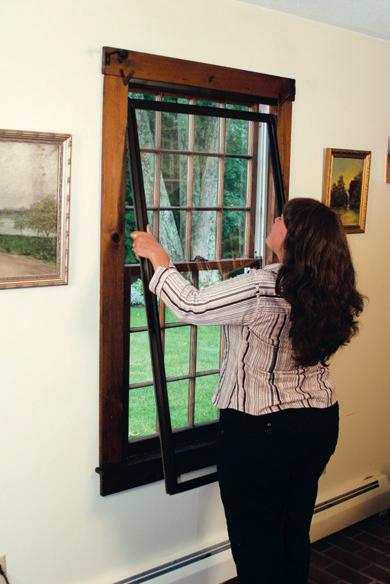


















(Continued from p. 120)






we don’t do much sugaring these days, what with the boys only ever home for fleeting periods between whatever adventure they’ve lined up next, I still like to see the trucks heavy with sap tanks, the steam billowing from sugarhouse vents, the occasional line of buckets hung on roadside maples. Not many people hang buckets anymore—plastic tubing is more efficient, and can be connected to vacuum in order to wring out every last drop of sap—and even fewer use the old-style galvanized buckets, which are rumored to contain leaded solder and have thus been deemed a health hazard by someone who knows more about these things than me. All I know is that the newfangled aluminum buckets and plastic bags look to me like props from a low-budget sci-fi movie based in rural Vermont in the year 2106, by which time someone who knows more about these things than me
will have likely determined they contain some dangerous compound or another.

















I like March because when I awake in the night, I can smell the change of season through the open window above our bed. We sleep with that window in varying degrees of openness all year round, from a slender crack on the coldest January nights, to flung wide in the heat of summer. In March, it’s generally in the six-to-eight-inch range, enough that when the wind is blowing, I can feel it brush across my face.
I like March because March precedes April, and because April—capricious and changeable and altogether unpredictable as it can be—is a month when everything seems possible and some things actually are. Seems possible: Build a sauna! Plant 200 blueberries! Fence the knoll pasture! Finish siding the back wall of the house even though I’ve made the same promise for the past seven years running and haven’t done a thing about it yet! Actually possible: Plant the peas. Stack a bit less than half the remaining firewood.
Clean the basement. Staple another layer of tar paper over the muchdeteriorated, seven-year-old tar paper on the back wall. Next year, I’ll get those last few bundles of clapboards installed for sure.

April comes, and the weather turns (or it doesn’t—that’s the thing about April, you never really know), and Penny and I plant those peas, though fewer than last year, when we’d already planted fewer than the year before that. Indeed, we’ll plant fewer of everything, except for maybe those little Sungold tomatoes I can’t get enough of no matter how abundant the crop. Every summer, for the past four years, the garden has shrunk just a bit, a diminishing that’s inversely proportional to the amount of time the boys are home. I think about when they were young—truly young, not just adult-young, as they are now—and they each tended their own garden bed, albeit in the loosest, most generous definition of tended Still, they planted carrots in haphazard rows, and peas they insisted on harvesting before they’d fully ripened, and sweet corn that was often eaten uncooked, the raw, gnawed cobs dropped to the very ground from which they emerged. The boys painted wooden signs proclaiming ownership over the space they’d been allocated, and stuck them into the soil in a way that made it seem as if even those signs had grown from seed.
And I guess that’s why I like March most of all: For me, it’s a reminder of the constancy of change, that nothing stays the way it is for long. Snow melts, sun rises, ground thaws, sap runs, leaves unfurl. Boys grow, then grow some more, then move on. You’d think that by now, more than five decades in, I’d have figured out that everything is in transition always. You’d think that by now, I’d remember that it’s merely my own inability (or unwillingness) to pay close enough attention that allows me to believe otherwise.






You’d think that by now, it wouldn’t be such a surprise to walk outdoors one warm, late-April morning and see those emergent peas. But it is.

















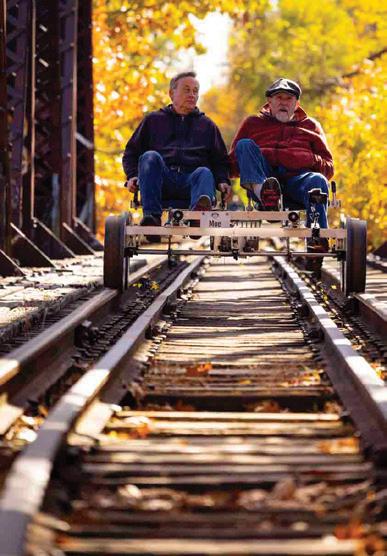






n March, the sun creeps higher every day, but slowly, almost imperceptibly, as if trying to keep its aspirations a secret. I like March. I like it for the aspiring sun, for the added light at the edges of each day, another subversive accumulation, the slow pushing back of the heavy darkness we’ve been carrying all these months. You never realize how heavy until you feel it lifting.
I like March for the feeling of anticipation it carries on its warming breezes, the scent of urgency in the air, reminding me to finish those tasks that are best accomplished atop the cover of snow: skidding the final cord of firewood I’ve procrastinated cutting for the winter to come, delivering bucket-loads of compost to the soft ground near the pond while the ground is still frozen and the tractor won’t leave ruts, skiing each of my favorite loops at least once more, and then, if I’m lucky, once more again.
I like it for town meeting, which in our town means that perhaps there will be two dozen of us gathered on the first
Tuesday in March to decide business that’s of little import beyond the boundaries of this small place we call home. Who will be zoning administrator since Eric resigned? (Spoiler alert: It’s me.) Have we put aside enough money for a new road grader, and do we really need one anyhow? Should we hire someone to paint the town hall this summer or put it off another year? For the past two years, we’ve pushed town meeting to May, so we can gather outdoors to allow whatever contagion might be lurking to dissipate harmlessly into the spring air, and while I understand the reasoning behind it, I’ve missed that first-Tuesday tradition, which comes at exactly the point in winter when my spirits most benefit from being reminded of the possibility that people can govern cooperatively from across the spectrum of beliefs and affiliations. It’s a radical idea, I know, but it’s true.
I like March because of maple sugaring, and even though
(Continued on p. 118)














Nestled amid the natural beauty of 3,500 acres in the heart of Rhode Island, lies the most amenity rich, four-season private sporting club and resort on the East Coast. Located in Richmond, Rhode Island, The Preserve Sporting Club & Residences offers activities for guests of all ages.






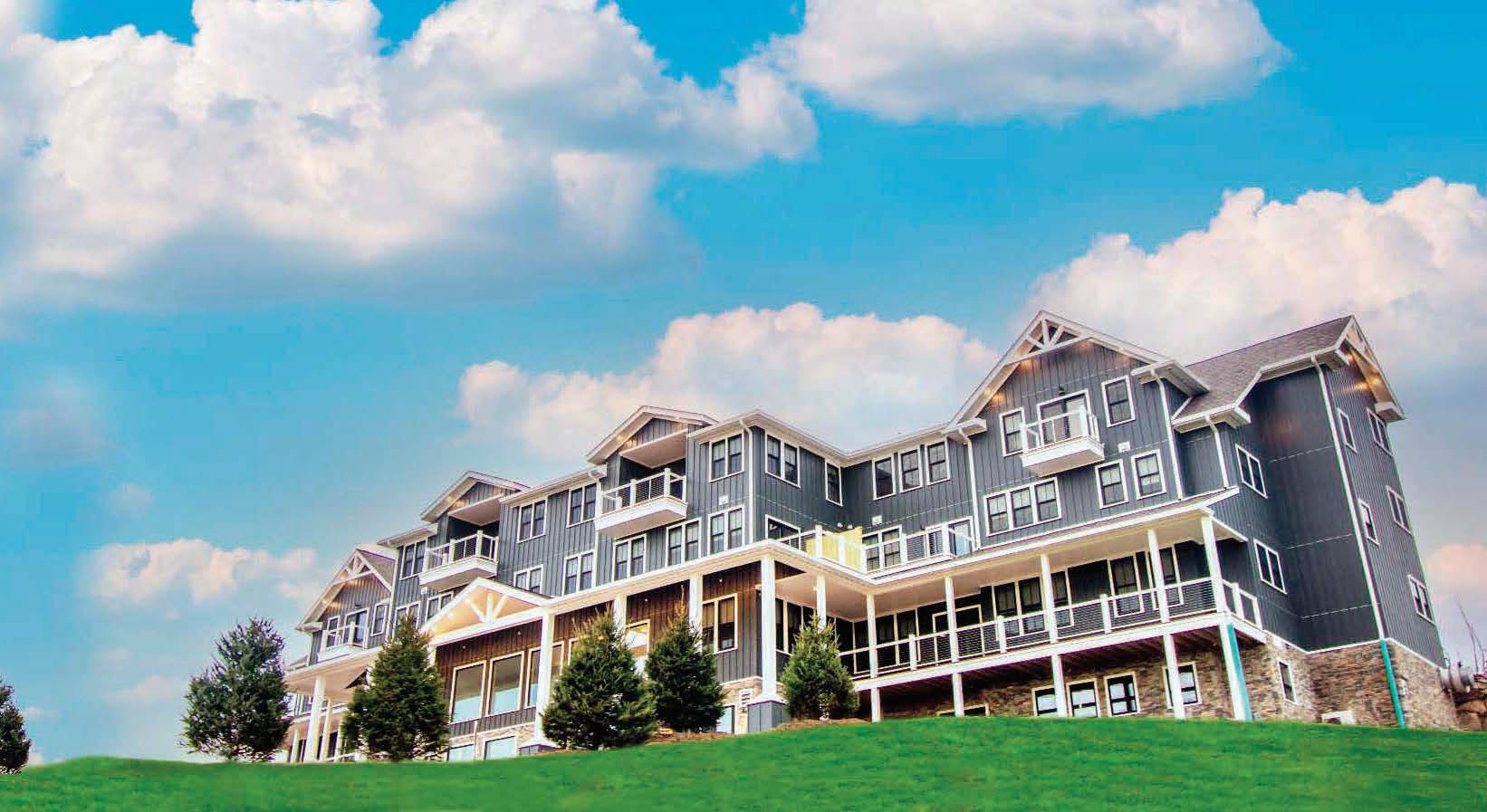

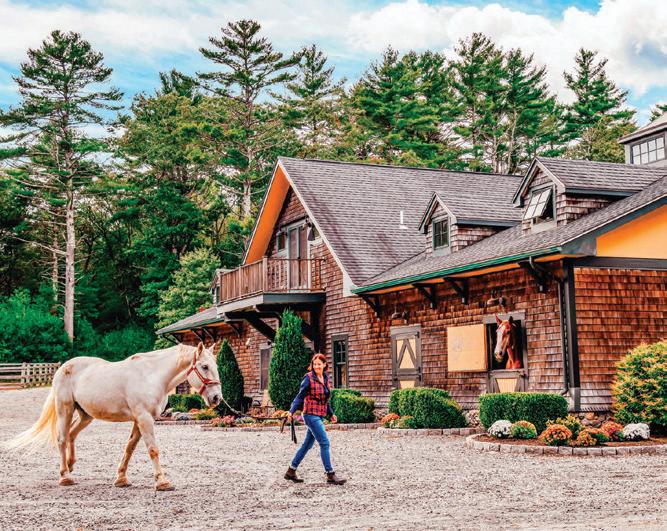

At The Preserve, you can enjoy more than 20 luxurious amenities such as the OH! Spa, The Preserve Equestrian Training Stables, The Maker’s Mark Hobbit HouseTM, The Safari Tent Scotch and Cigar Experience, the world’s longest indoor range, hiking, tennis, golf, ziplining, fishing and more. The Preserve seamlessly infuses outdoor adventure, wellness and New England hospitality into every experience. Whether you seek the thrilling or the serene, The Preserve Sporting Club & Residences offers a combination of unspoiled nature and refined luxury for everyone.
